
Research Topics & Ideas: CompSci & IT
50+ Computer Science Research Topic Ideas To Fast-Track Your Project

Finding and choosing a strong research topic is the critical first step when it comes to crafting a high-quality dissertation, thesis or research project. If you’ve landed on this post, chances are you’re looking for a computer science-related research topic , but aren’t sure where to start. Here, we’ll explore a variety of CompSci & IT-related research ideas and topic thought-starters, including algorithms, AI, networking, database systems, UX, information security and software engineering.
NB – This is just the start…
The topic ideation and evaluation process has multiple steps . In this post, we’ll kickstart the process by sharing some research topic ideas within the CompSci domain. This is the starting point, but to develop a well-defined research topic, you’ll need to identify a clear and convincing research gap , along with a well-justified plan of action to fill that gap.
If you’re new to the oftentimes perplexing world of research, or if this is your first time undertaking a formal academic research project, be sure to check out our free dissertation mini-course. In it, we cover the process of writing a dissertation or thesis from start to end. Be sure to also sign up for our free webinar that explores how to find a high-quality research topic.
Overview: CompSci Research Topics
- Algorithms & data structures
- Artificial intelligence ( AI )
- Computer networking
- Database systems
- Human-computer interaction
- Information security (IS)
- Software engineering
- Examples of CompSci dissertation & theses
Topics/Ideas: Algorithms & Data Structures
- An analysis of neural network algorithms’ accuracy for processing consumer purchase patterns
- A systematic review of the impact of graph algorithms on data analysis and discovery in social media network analysis
- An evaluation of machine learning algorithms used for recommender systems in streaming services
- A review of approximation algorithm approaches for solving NP-hard problems
- An analysis of parallel algorithms for high-performance computing of genomic data
- The influence of data structures on optimal algorithm design and performance in Fintech
- A Survey of algorithms applied in internet of things (IoT) systems in supply-chain management
- A comparison of streaming algorithm performance for the detection of elephant flows
- A systematic review and evaluation of machine learning algorithms used in facial pattern recognition
- Exploring the performance of a decision tree-based approach for optimizing stock purchase decisions
- Assessing the importance of complete and representative training datasets in Agricultural machine learning based decision making.
- A Comparison of Deep learning algorithms performance for structured and unstructured datasets with “rare cases”
- A systematic review of noise reduction best practices for machine learning algorithms in geoinformatics.
- Exploring the feasibility of applying information theory to feature extraction in retail datasets.
- Assessing the use case of neural network algorithms for image analysis in biodiversity assessment
Topics & Ideas: Artificial Intelligence (AI)
- Applying deep learning algorithms for speech recognition in speech-impaired children
- A review of the impact of artificial intelligence on decision-making processes in stock valuation
- An evaluation of reinforcement learning algorithms used in the production of video games
- An exploration of key developments in natural language processing and how they impacted the evolution of Chabots.
- An analysis of the ethical and social implications of artificial intelligence-based automated marking
- The influence of large-scale GIS datasets on artificial intelligence and machine learning developments
- An examination of the use of artificial intelligence in orthopaedic surgery
- The impact of explainable artificial intelligence (XAI) on transparency and trust in supply chain management
- An evaluation of the role of artificial intelligence in financial forecasting and risk management in cryptocurrency
- A meta-analysis of deep learning algorithm performance in predicting and cyber attacks in schools

Topics & Ideas: Networking
- An analysis of the impact of 5G technology on internet penetration in rural Tanzania
- Assessing the role of software-defined networking (SDN) in modern cloud-based computing
- A critical analysis of network security and privacy concerns associated with Industry 4.0 investment in healthcare.
- Exploring the influence of cloud computing on security risks in fintech.
- An examination of the use of network function virtualization (NFV) in telecom networks in Southern America
- Assessing the impact of edge computing on network architecture and design in IoT-based manufacturing
- An evaluation of the challenges and opportunities in 6G wireless network adoption
- The role of network congestion control algorithms in improving network performance on streaming platforms
- An analysis of network coding-based approaches for data security
- Assessing the impact of network topology on network performance and reliability in IoT-based workspaces

Topics & Ideas: Database Systems
- An analysis of big data management systems and technologies used in B2B marketing
- The impact of NoSQL databases on data management and analysis in smart cities
- An evaluation of the security and privacy concerns of cloud-based databases in financial organisations
- Exploring the role of data warehousing and business intelligence in global consultancies
- An analysis of the use of graph databases for data modelling and analysis in recommendation systems
- The influence of the Internet of Things (IoT) on database design and management in the retail grocery industry
- An examination of the challenges and opportunities of distributed databases in supply chain management
- Assessing the impact of data compression algorithms on database performance and scalability in cloud computing
- An evaluation of the use of in-memory databases for real-time data processing in patient monitoring
- Comparing the effects of database tuning and optimization approaches in improving database performance and efficiency in omnichannel retailing
Topics & Ideas: Human-Computer Interaction
- An analysis of the impact of mobile technology on human-computer interaction prevalence in adolescent men
- An exploration of how artificial intelligence is changing human-computer interaction patterns in children
- An evaluation of the usability and accessibility of web-based systems for CRM in the fast fashion retail sector
- Assessing the influence of virtual and augmented reality on consumer purchasing patterns
- An examination of the use of gesture-based interfaces in architecture
- Exploring the impact of ease of use in wearable technology on geriatric user
- Evaluating the ramifications of gamification in the Metaverse
- A systematic review of user experience (UX) design advances associated with Augmented Reality
- A comparison of natural language processing algorithms automation of customer response Comparing end-user perceptions of natural language processing algorithms for automated customer response
- Analysing the impact of voice-based interfaces on purchase practices in the fast food industry

Topics & Ideas: Information Security
- A bibliometric review of current trends in cryptography for secure communication
- An analysis of secure multi-party computation protocols and their applications in cloud-based computing
- An investigation of the security of blockchain technology in patient health record tracking
- A comparative study of symmetric and asymmetric encryption algorithms for instant text messaging
- A systematic review of secure data storage solutions used for cloud computing in the fintech industry
- An analysis of intrusion detection and prevention systems used in the healthcare sector
- Assessing security best practices for IoT devices in political offices
- An investigation into the role social media played in shifting regulations related to privacy and the protection of personal data
- A comparative study of digital signature schemes adoption in property transfers
- An assessment of the security of secure wireless communication systems used in tertiary institutions
Topics & Ideas: Software Engineering
- A study of agile software development methodologies and their impact on project success in pharmacology
- Investigating the impacts of software refactoring techniques and tools in blockchain-based developments
- A study of the impact of DevOps practices on software development and delivery in the healthcare sector
- An analysis of software architecture patterns and their impact on the maintainability and scalability of cloud-based offerings
- A study of the impact of artificial intelligence and machine learning on software engineering practices in the education sector
- An investigation of software testing techniques and methodologies for subscription-based offerings
- A review of software security practices and techniques for protecting against phishing attacks from social media
- An analysis of the impact of cloud computing on the rate of software development and deployment in the manufacturing sector
- Exploring the impact of software development outsourcing on project success in multinational contexts
- An investigation into the effect of poor software documentation on app success in the retail sector
CompSci & IT Dissertations/Theses
While the ideas we’ve presented above are a decent starting point for finding a CompSci-related research topic, they are fairly generic and non-specific. So, it helps to look at actual dissertations and theses to see how this all comes together.
Below, we’ve included a selection of research projects from various CompSci-related degree programs to help refine your thinking. These are actual dissertations and theses, written as part of Master’s and PhD-level programs, so they can provide some useful insight as to what a research topic looks like in practice.
- An array-based optimization framework for query processing and data analytics (Chen, 2021)
- Dynamic Object Partitioning and replication for cooperative cache (Asad, 2021)
- Embedding constructural documentation in unit tests (Nassif, 2019)
- PLASA | Programming Language for Synchronous Agents (Kilaru, 2019)
- Healthcare Data Authentication using Deep Neural Network (Sekar, 2020)
- Virtual Reality System for Planetary Surface Visualization and Analysis (Quach, 2019)
- Artificial neural networks to predict share prices on the Johannesburg stock exchange (Pyon, 2021)
- Predicting household poverty with machine learning methods: the case of Malawi (Chinyama, 2022)
- Investigating user experience and bias mitigation of the multi-modal retrieval of historical data (Singh, 2021)
- Detection of HTTPS malware traffic without decryption (Nyathi, 2022)
- Redefining privacy: case study of smart health applications (Al-Zyoud, 2019)
- A state-based approach to context modeling and computing (Yue, 2019)
- A Novel Cooperative Intrusion Detection System for Mobile Ad Hoc Networks (Solomon, 2019)
- HRSB-Tree for Spatio-Temporal Aggregates over Moving Regions (Paduri, 2019)
Looking at these titles, you can probably pick up that the research topics here are quite specific and narrowly-focused , compared to the generic ones presented earlier. This is an important thing to keep in mind as you develop your own research topic. That is to say, to create a top-notch research topic, you must be precise and target a specific context with specific variables of interest . In other words, you need to identify a clear, well-justified research gap.
Fast-Track Your Research Topic
If you’re still feeling a bit unsure about how to find a research topic for your Computer Science dissertation or research project, check out our Topic Kickstarter service.
You Might Also Like:

Investigating the impacts of software refactoring techniques and tools in blockchain-based developments.
Steps on getting this project topic
I want to work with this topic, am requesting materials to guide.
Information Technology -MSc program
It’s really interesting but how can I have access to the materials to guide me through my work?
That’s my problem also.
Investigating the impacts of software refactoring techniques and tools in blockchain-based developments is in my favour. May i get the proper material about that ?
BLOCKCHAIN TECHNOLOGY
I NEED TOPIC
Submit a Comment Cancel reply
Your email address will not be published. Required fields are marked *
Save my name, email, and website in this browser for the next time I comment.
- Print Friendly
Impossible? Let’s see.
Whether we're shaping the future of sustainability, or optimizing algorithms, or even exploring epidemiological studies, Google Research strives to continuously progress science, advance society, and improve the lives of billions of people.

Advancing the state of the art
Our teams advance the state of the art through research, systems engineering, and collaboration across Google. We publish hundreds of research papers each year across a wide range of domains, sharing our latest developments in order to collaboratively progress computing and science.
Learn more about our philosophy.
Watch the film
Link to Youtube Video
Read the latest

May 24 · BLOG

MAY 16 · BLOG

MAY 15 · BLOG

MAY 14 · BLOG

MAY 02 · BLOG

MAY 01 · BLOG
Our research drives real-world change
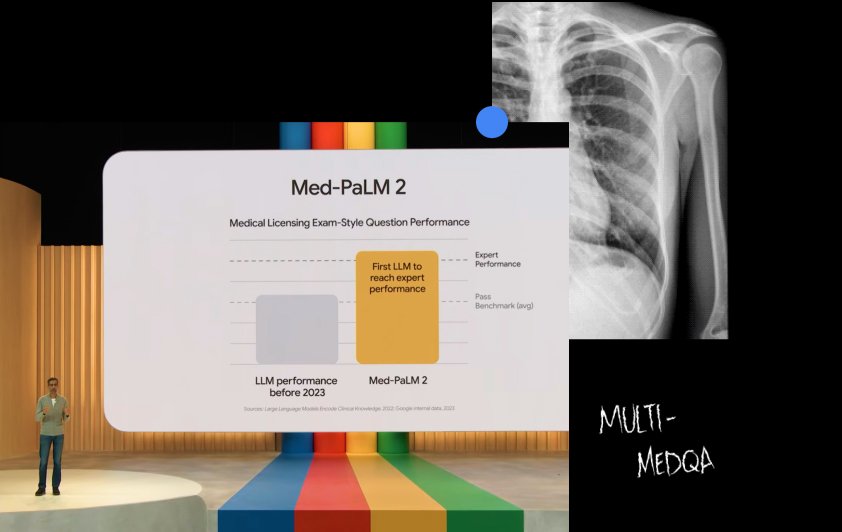
Improving our LLM designed for the medical domain
- Large language models encode clinical knowledge Publication
- Towards Expert-Level Medical Question Answering with Large Language Models Publication
- Our latest health AI research updates Article
- Med-PaLM 2, our expert-level medical LLM Video
Project Contrails

A cost-effective and scalable way AI is helping to mitigate aviation’s climate impact
- A human-labeled Landsat-8 contrails dataset Dataset
- Can Google AI make flying more sustainable? Video
- Estimates of broadband upwelling irradiance fromm GOES-16 ABI Publication
- How AI is helping airlines mitigate the climate impact of contrails Blog
See our impact across other projects

Open Buildings

Project Relate

Flood Forecasting
We work across domains
Our vast breadth of work covers AI/ML foundations, responsible human-centric technology, science & societal impact, computing paradigms, and algorithms & optimization. Our research teams impact technology used by people all over the world.
One research paper started it all
The research we do today becomes the Google of the future. Google itself began with a research paper, published in 1998, and was the foundation of Google Search. Our ongoing research over the past 25 years has transformed not only the company, but how people are able to interact with the world and its information.
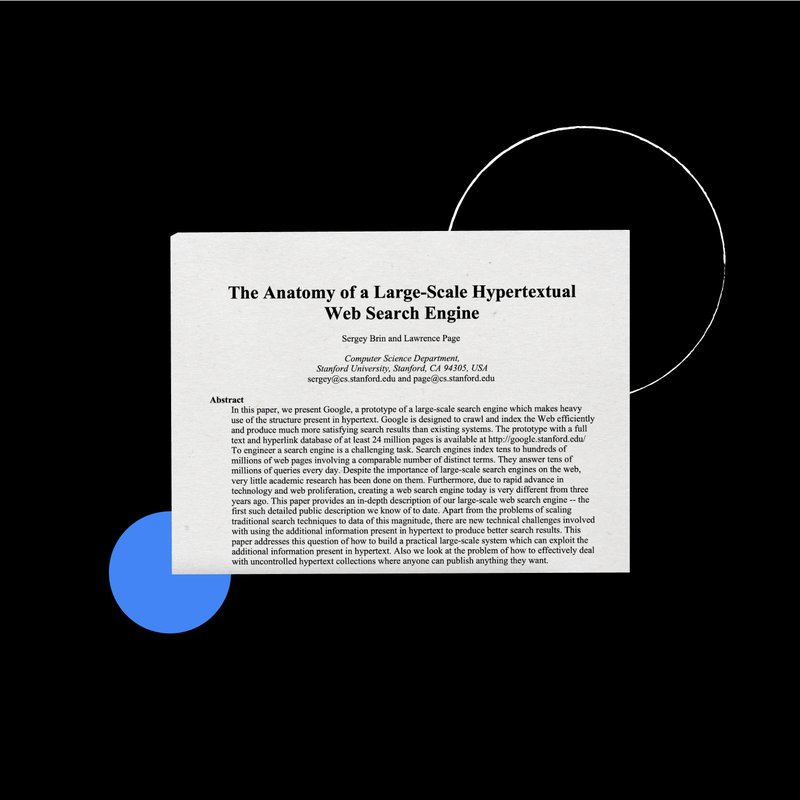
Responsible research is at the heart of what we do
The impact we create from our research has the potential to reach billions of people. That's why everything we do is guided by methodology that is grounded in responsible practices and thorough consideration.

Help us shape the future
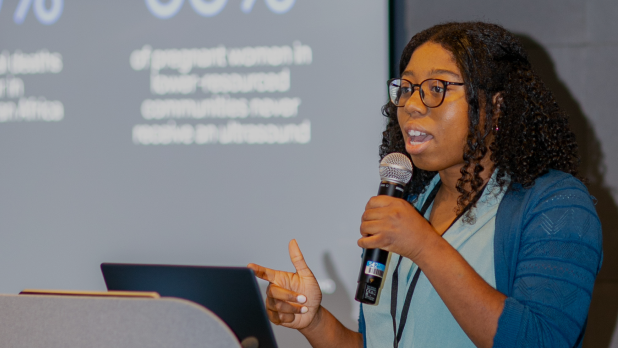
We've been working alongside the academic research community since day one. Explore the ways that we collaborate and provide resources and support through a variety of student and faculty programs.
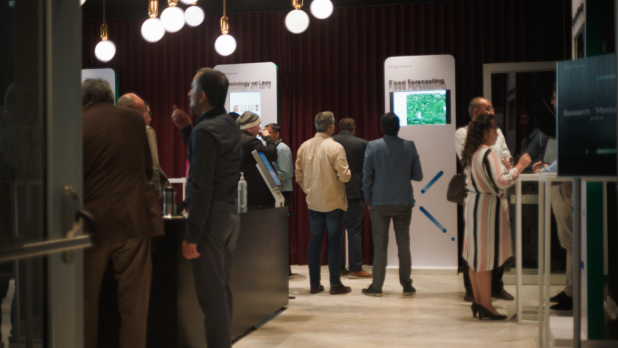
From Accra to Zürich, to our home base in Mountain View, we’re looking for talented scientists, engineers, interns, and more to join our teams not only at Google Research but all research projects across Google.
Explore our other teams and product areas
Google Cloud
Google DeepMind
LABS.GOOGLE
- United Kingdom
- Yorktown Heights
- Foundation Models
- Machine Learning
- Materials Discovery
- Natural Language Processing
- Quantum Safe
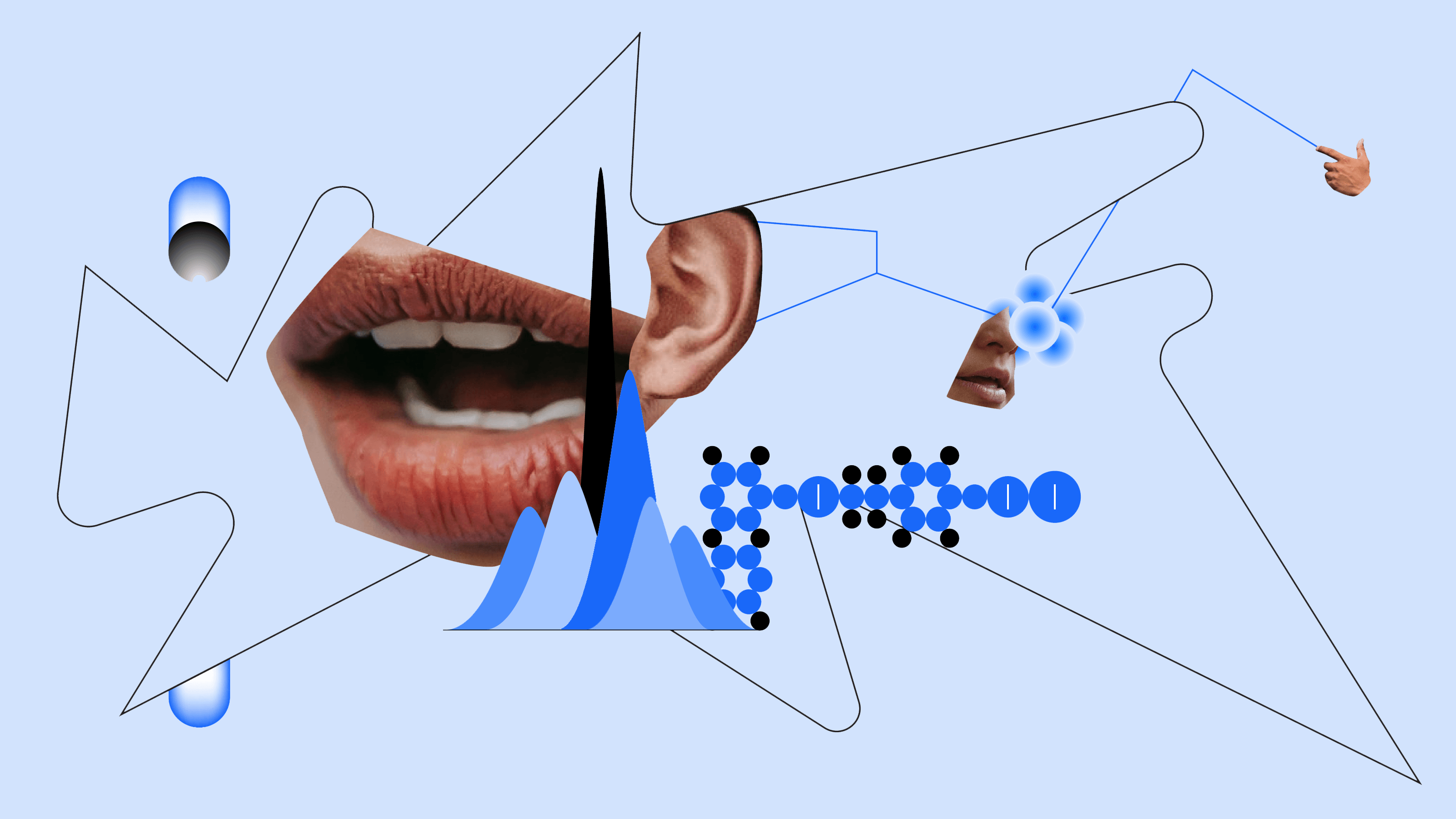
Conversational Text to Speech

Deep Search
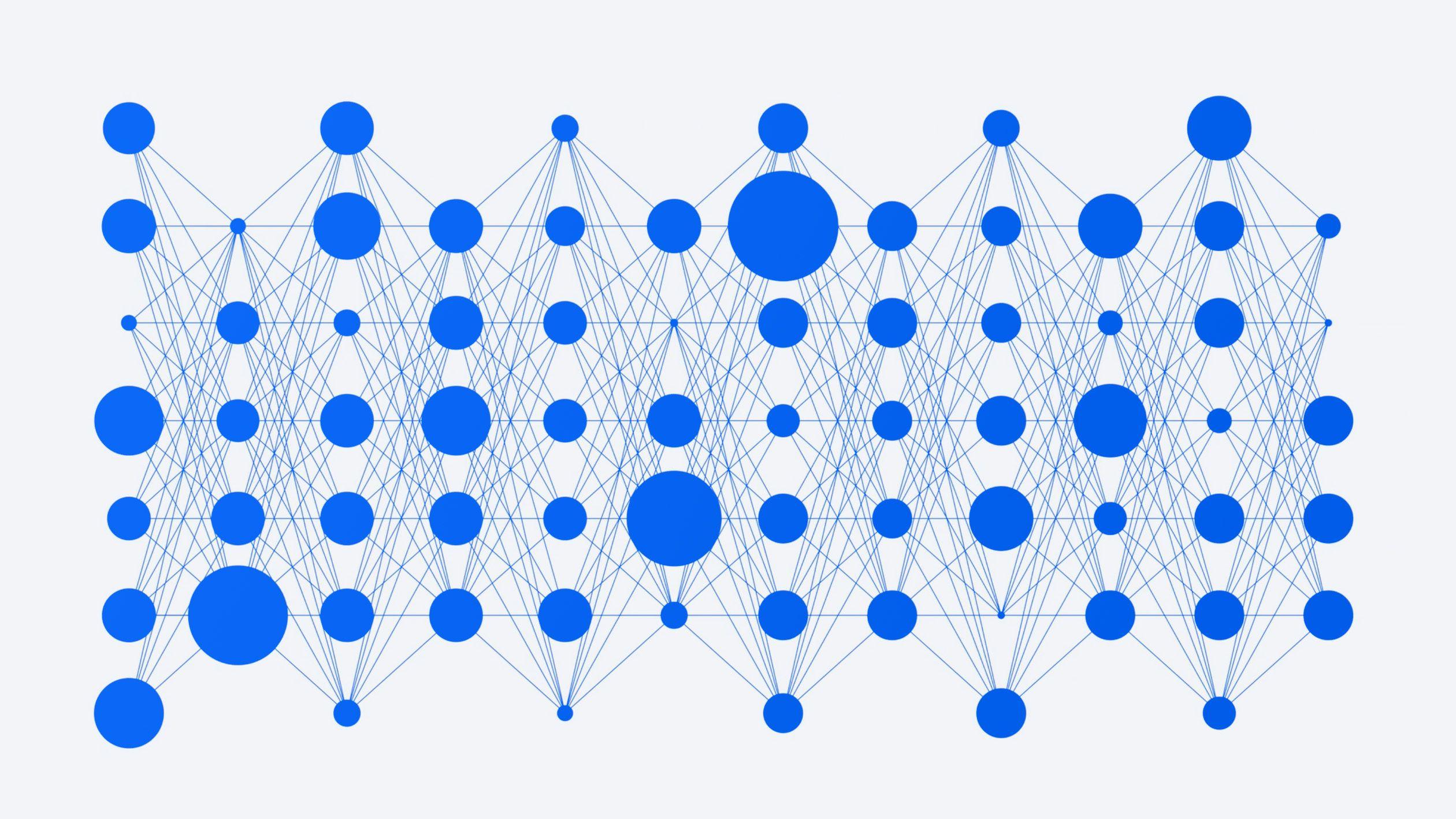
AI for IT Infrastructure
AI to improve infrastructure efficiency and user productivity, and to extract valuable insights from business data.
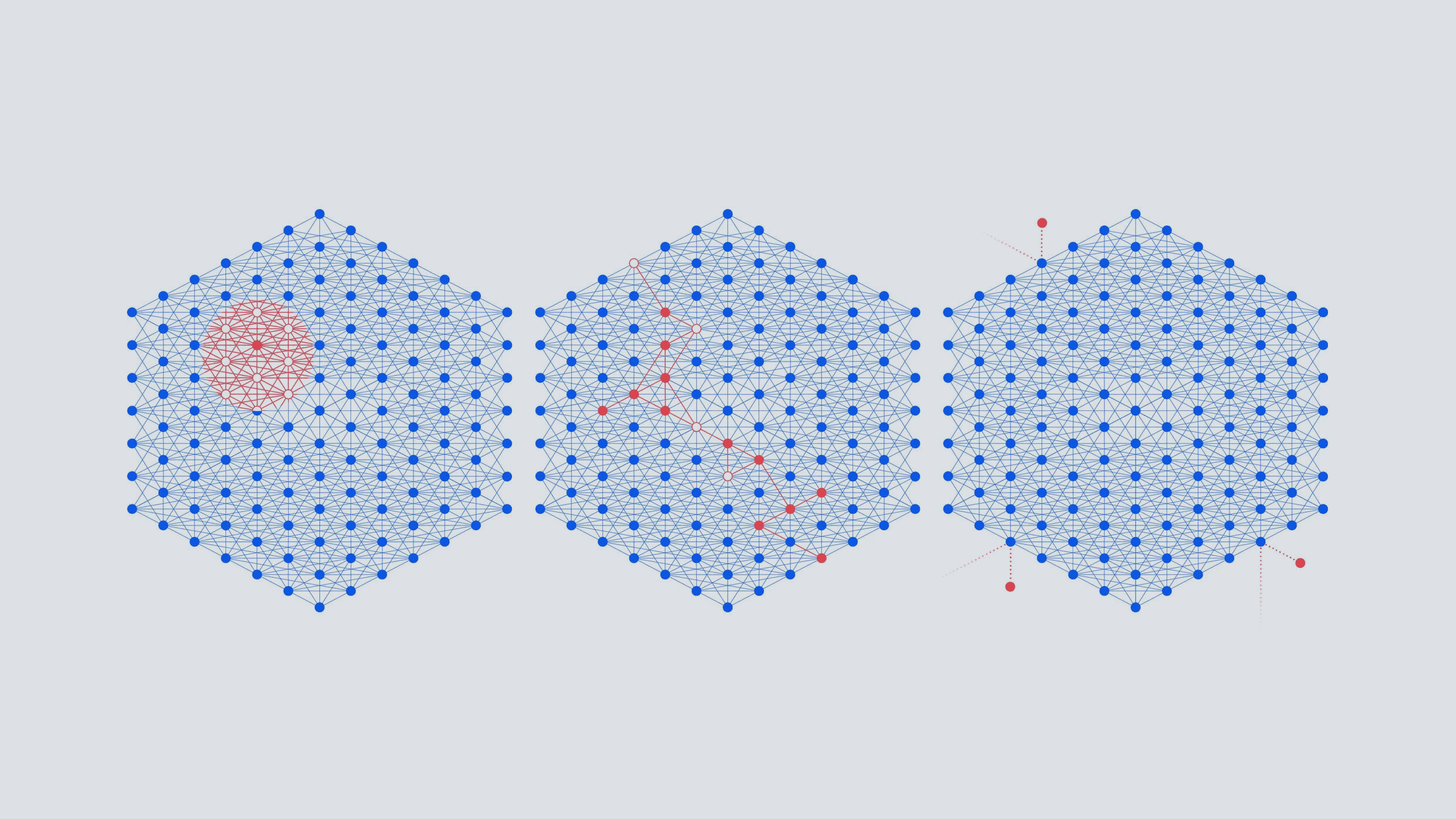
Adversarial Robustness Toolbox
Securing AI models with the Adversarial Robustness Toolbox
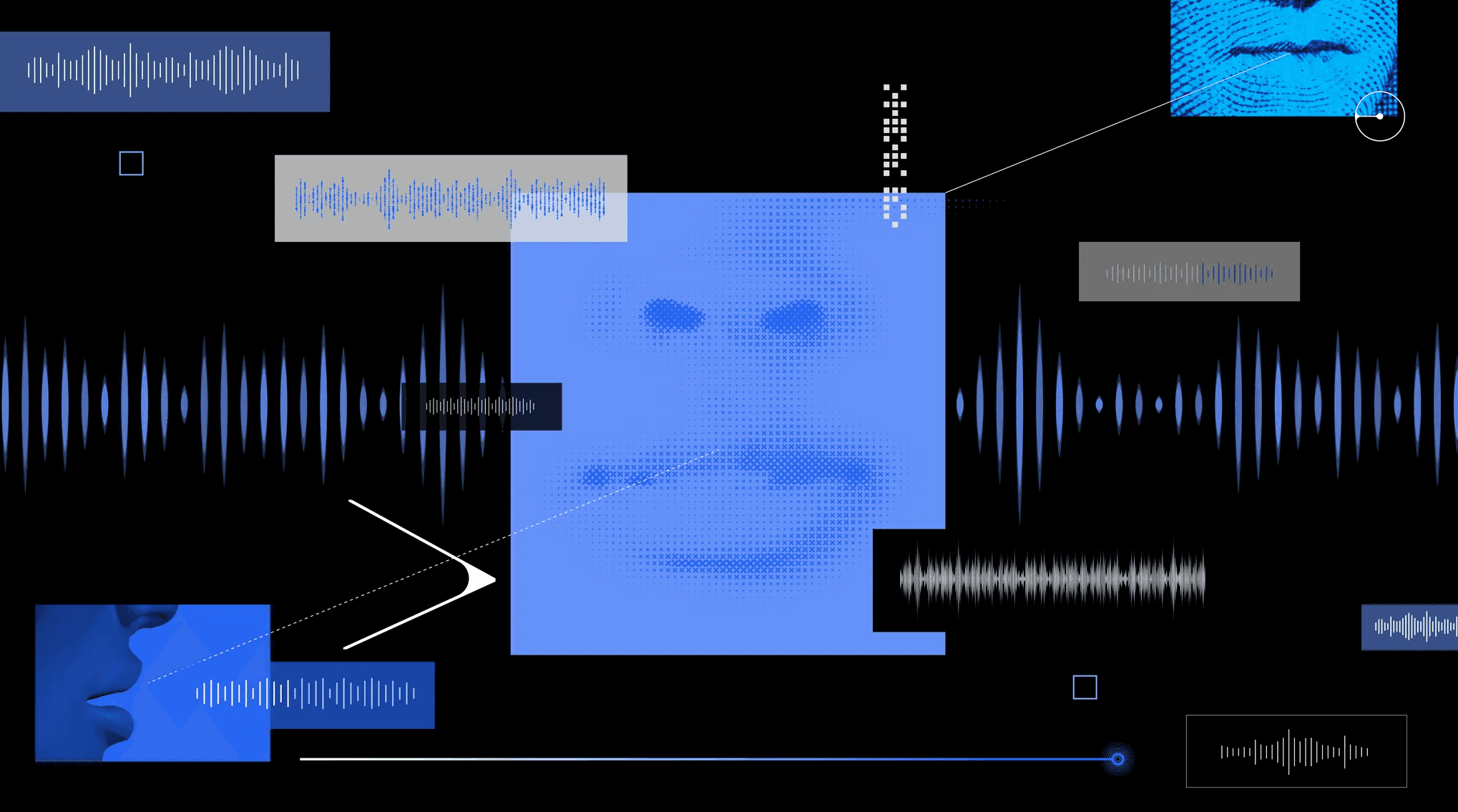
Training language models to better follow user intentions and make them more truthful

Generative AI for Sports and Entertainment
Using large language models to support some of the world’s most prestigious sports and entertainment events

Neuro-Vector-Symbolic Architecture

A synthetic data generation service that enables secure and responsible analysis of privacy-sensitive data

Digital Labor for Enterprise Automation
Building a unified Digital Labor platform with conversation, orchestration, and training capabilities.
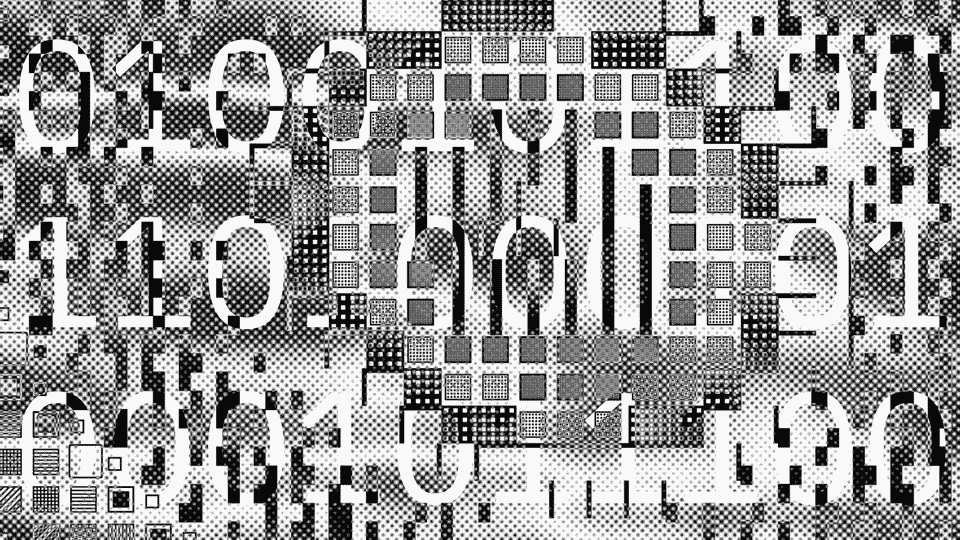
Snap machine learning
A library that provides high-speed training of popular machine learning models on modern CPU/GPU computing systems.

Neuromorphic Devices & Systems
Developing technologies for computing tomorrow’s AI.

In-memory computing
Are you seeking one-on-one college counseling and/or essay support? Limited spots are now available. Click here to learn more.
54 Most Interesting Technology Research Topics for 2023
May 30, 2023
Scrambling to find technology research topics for the assignment that’s due sooner than you thought? Take a scroll down these 54 interesting technology essay topics in 10 different categories, including controversial technology topics, and some example research questions for each.
Social technology research topics
Whether you have active profiles on every social media platform, you’ve taken a social media break, or you generally try to limit your engagement as much as possible, you probably understand how pervasive social technologies have become in today’s culture. Social technology will especially appeal to those looking for widely discussed, mainstream technology essay topics.
- How do viewers respond to virtual influencers vs human influencers? Is one more effective or ethical over the other?
- Across social media platforms, when and where is mob mentality most prevalent? How do the nuances of mob mentality shift depending on the platform or topic?
- Portable devices like cell phones, laptops, and tablets have certainly made daily life easier in some ways. But how have they made daily life more difficult?
- How does access to social media affect developing brains? And what about mature brains?
- Can dating apps alter how users perceive and interact with people in real life?
- Studies have proven “doomscrolling” to negatively impact mental health—could there ever be any positive impacts?
Cryptocurrency and blockchain technology research topics
Following cryptocurrency and blockchain technology has been a rollercoaster the last few years. And since Bitcoin’s conception in 2009, cryptocurrency has consistently showed up on many lists of controversial technology topics.
- Is it ethical for celebrities or influential people to promote cryptocurrencies or cryptographic assets like NFTs ?
- What are the environmental impacts of mining cryptocurrencies? Could those impacts ever change?
- How does cryptocurrency impact financial security and financial health?
- Could the privacy cryptocurrency offers ever be worth the added security risks?
- How might cryptocurrency regulations and impacts continue to evolve?
- Created to enable cryptocurrency, blockchain has since proven useful in several other industries. What new uses could blockchain have?
Artificial intelligence technology research topics
We started 2023 with M3GAN’s box office success, and now we’re fascinated (or horrified) with ChatGPT , voice cloning , and deepfakes . While people have discussed artificial intelligence for ages, recent advances have really pushed this topic to the front of our minds. Those searching for controversial technology topics should pay close attention to this one.
- OpenAI –the company behind ChatGPT–has shown commitment to safe, moderated AI tools that they hope will provide positive benefits to society. Sam Altman, their CEO, recently testified before a US Senate He described what AI makes possible and called for more regulation in the industry. But even with companies like OpenAI displaying efforts to produce safe AI and advocating for regulations, can AI ever have a purely positive impact? Are certain pitfalls unavoidable?
- In a similar vein, can AI ever actually be ethically or safely produced? Will there always be certain risks?
- How might AI tools impact society across future generations?
- Countless movies and television shows explore the idea of AI going wrong, going back all the way to 1927’s Metropolis . What has a greater impact on public perception—representations in media or industry developments? And can public perception impact industry developments and their effectiveness?
Beauty and anti-aging technology
Throughout human history, people in many cultures have gone to extreme lengths to capture and maintain a youthful beauty. But technology has taken the pursuit of beauty and youth to another level. For those seeking technology essay topics that are both timely and timeless, this one’s a gold mine.
- With augmented reality technology, companies like Perfect allow app users to virtually try on makeup, hair color, hair accessories, and hand or wrist accessories. Could virtual try-ons lead to a somewhat less wasteful beauty industry? What downsides should we consider?
- Users of the Perfect app can also receive virtual diagnoses for skin care issues and virtually “beautify” themselves with smoothed skin, erased blemishes, whitened teeth, brightened under-eye circles, and reshaped facial structures. How could advancements in beauty and anti-aging technology affect self-perception and mental health?
- What are the best alternatives to animal testing within the beauty and anti-aging industry?
- Is anti-aging purely a cosmetic pursuit? Could anti-aging technology provide other benefits?
- Could people actually find a “cure” to aging? And could a cure to aging lead to longer lifespans?
- How might longer human lifespans affect the Earth?
Geoengineering technology research topics
An umbrella term, geoengineering refers to large-scale technologies that can alter the earth and its climate. Typically, these types of technologies aim to combat climate change. Those searching for controversial technology topics should consider looking into this one.
- What benefits can solar geoengineering provide? Can they outweigh the severe risks?
- Compare solar geoengineering methods like mirrors in space, stratospheric aerosol injection, marine cloud brightening, and other proposed methods. How have these methods evolved? How might they continue to evolve?
- Which direct air capture methods are most sustainable?
- How can technology contribute to reforestation efforts?
- What are the best uses for biochar? And how can biochar help or harm the earth?
- Out of all the carbon geoengineering methods that exist or have been proposed, which should we focus on the most?
Creative and performing arts technology topics
While tensions often arise between artists and technology, they’ve also maintained a symbiotic relationship in many ways. It’s complicated. But of course, that’s what makes it interesting. Here’s another option for those searching for timely and timeless technology essay topics.
- How has the relationship between art and technology evolved over time?
- How has technology impacted the ways people create art? And how has technology impacted the ways people engage with art?
- Technology has made creating and viewing art widely accessible. Does this increased accessibility change the value of art? And do we value physical art more than digital art?
- Does technology complement storytelling in the performing arts? Or does technology hinder storytelling in the performing arts?
- Which current issues in the creative or performing arts could potentially be solved with technology?
Cellular agriculture technology research topics
And another route for those drawn to controversial technology topics: cellular agriculture. You’ve probably heard about popular plant-based meat options from brands like Impossible and Beyond Meat . While products made with cellular agriculture also don’t require the raising and slaughtering of livestock, they are not plant-based. Cellular agriculture allows for the production of animal-sourced foods and materials made from cultured animal cells.
- Many consumers have a proven bias against plant-based meats. Will that same bias extend to cultured meat, despite cultured meat coming from actual animal cells?
- Which issues can arise from patenting genes?
- Does the animal agriculture industry provide any benefits that cellular agriculture may have trouble replicating?
- How might products made with cellular agriculture become more affordable?
- Could cellular agriculture conflict with the notion of a “ circular bioeconomy ?” And should we strive for a circular bioeconomy? Can we create a sustainable relationship between technology, capitalism, and the environment, with or without cellular agriculture?
Transportation technology research topics
For decades, we’ve expected flying cars to carry us into a techno-utopia, where everything’s shiny, digital, and easy. We’ve heard promises of super fast trains that can zap us across the country or even across the world. We’ve imagined spring breaks on the moon, jet packs, and teleportation. Who wouldn’t love the option to go anywhere, anytime, super quickly? Transportation technology is another great option for those seeking widely discussed, mainstream technology essay topics.
- Once upon a time, Lady Gaga was set to perform in space as a promotion for Virgin Galactic . While Virgin Galactic never actually launched the iconic musician/actor, soon, they hope to launch their first commercial flight full of civilians–who paid $450,000 a pop–on a 90-minute trip into the stars. And if you think that’s pricey, SpaceX launched three businessmen into space for $55 million in April, 2022 (though with meals included, this is actually a total steal). So should we be launching people into space just for fun? What are the impacts of space tourism?
- Could technology improve the way hazardous materials get transported?
- How can the 5.9 GHz Safety Band affect drivers?
- Which might be safer: self-driving cars or self-flying airplanes?
- Compare hyperloop and maglev Which is better and why?
- Can technology improve safety for cyclists?
Gaming technology topics
A recent study involving over 2000 children found links between video game play and enhanced cognitive abilities. While many different studies have found the impacts of video games to be positive or neutral, we still don’t fully understand the impact of every type of video game on every type of brain. Regardless, most people have opinions on video gaming. So this one’s for those seeking widely discussed, mainstream, and controversial technology topics.
- Are different types or genres of video games more cognitively beneficial than others? Or are certain gaming consoles more cognitively beneficial than others?
- How do the impacts of video games differ from other types of games, such as board games or puzzles?
- What ethical challenges and safety risks come with virtual reality gaming?
- How does a player perceive reality during a virtual reality game compared to during other types of video games?
- Can neurodivergent brains benefit from video games in different ways than neurotypical brains?
Medical technology
Advancements in healthcare have the power to change and save lives. In the last ten years, countless new medical technologies have been developed, and in the next ten years, countless more will likely emerge. Always relevant and often controversial, this final technology research topic could interest anyone.
- Which ethical issues might arise from editing genes using CRISPR-Cas9 technology? And should this technology continue to be illegal in the United States?
- How has telemedicine impacted patients and the healthcare they receive?
- Can neurotechnology devices potentially affect a user’s agency, identity, privacy, and/or cognitive liberty?
- How could the use of medical 3-D printing continue to evolve?
- Are patients more likely to skip digital therapeutics than in-person therapeutic methods? And can the increased screen-time required by digital therapeutics impact mental health
What do you do next?
Now that you’ve picked from this list of technology essay topics, you can do a deep dive and immerse yourself in new ideas, new information, and new perspectives. And of course, now that these topics have motivated you to change the world, look into the best computer science schools , the top feeders to tech and Silicon Valley , the best summer programs for STEM students , and the best biomedical engineering schools .
- College Success
- High School Success
Mariya holds a BFA in Creative Writing from the Pratt Institute and is currently pursuing an MFA in writing at the University of California Davis. Mariya serves as a teaching assistant in the English department at UC Davis. She previously served as an associate editor at Carve Magazine for two years, where she managed 60 fiction writers. She is the winner of the 2015 Stony Brook Fiction Prize, and her short stories have been published in Mid-American Review , Cutbank , Sonora Review , New Orleans Review , and The Collagist , among other magazines.
- 2-Year Colleges
- Application Strategies
- Best Colleges by Major
- Best Colleges by State
- Big Picture
- Career & Personality Assessment
- College Essay
- College Search/Knowledge
- Costs & Financial Aid
- Data Visualizations
- Dental School Admissions
- Extracurricular Activities
- Graduate School Admissions
- High Schools
- Law School Admissions
- Medical School Admissions
- Navigating the Admissions Process
- Online Learning
- Private High School Spotlight
- Summer Program Spotlight
- Summer Programs
- Teacher Tools
- Test Prep Provider Spotlight
“Innovative and invaluable…use this book as your college lifeline.”
— Lynn O'Shaughnessy
Nationally Recognized College Expert
College Planning in Your Inbox
Join our information-packed monthly newsletter.
- Research Paper Guides
- Research Paper Topics
- 450+ Technology Research Topics & Ideas for Your Paper
- Speech Topics
- Basics of Essay Writing
- Essay Topics
- Other Essays
- Main Academic Essays
- Basics of Research Paper Writing
- Miscellaneous
- Chicago/ Turabian
- Data & Statistics
- Methodology
- Admission Writing Tips
- Admission Advice
- Other Guides
- Student Life
- Studying Tips
- Understanding Plagiarism
- Academic Writing Tips
- Basics of Dissertation & Thesis Writing
- Essay Guides
- Formatting Guides
- Basics of Research Process
- Admission Guides
- Dissertation & Thesis Guides
450+ Technology Research Topics & Ideas for Your Paper

Table of contents
Use our free Readability checker
Technology is like a massive puzzle where each piece connects to form the big picture of our modern lives. Be it a classroom, office, or a hospital, technology has drastically changed the way we communicate and do business. But to truly understand its role, we need to explore different technology research topics.
And that's where this blog will be handy! Powered by solid experience, our professional term paper writers gathered multiple technology research paper topics in literally any direction. Whether you're a student looking for an intriguing subject for your project or just a tech enthusiast trying to broaden your understanding, we've got your back. Dive into this collection of tech topics and see how technological progress is shaping our world.
What Are Technology Topics?
Technology is the application of scientific knowledge for practical purposes. It's the smartphone in your hand, the electric car on your street, and the spacecraft exploring Mars. It might also be the code that protects your online privacy and the microscope that uncovers mysteries of the human cell.
Technology permeates our lives, revolutionizing the way we communicate, learn, work, and play. But, beyond the gadgets and gizmos, there's a world of diverse technology research topics, ideas, concepts, and challenges.
Technology topics zoom in on these ideas, peeling back the layers of the tech universe. As a researcher, you might study how AI is changing healthcare, explore the ethical implications of robotics, or investigate the latest innovations in renewable energy. Your project should probe into the 'how,' the 'why,' and the 'what next' of the technology that is reshaping our world. So, whether you're dissecting the impact of EdTech on traditional learning or predicting the future of space exploration, research topics in technology are limitless.
Branches of Technology Research Paper Topics
Undoubtedly, the reach of technology is extensive. It's woven its way into almost every corner of our lives. Before we move to technological research topics, let’s first see just where technology has left its mark. So, here are some areas where technology is really shaking things up:
- Government services: E-governance, digital IDs, and digital voting are just a few examples of technology's application in government services.
- Finance: Fintech innovations include cryptocurrencies, mobile banking, robo-advising, and contactless payments.
- Education: Technology is used in a wide variety of educational contexts, from e-learning platforms and digital textbooks to educational games and virtual classrooms.
- Communication: Social media, video conferencing, instant messaging, and email are all examples of tech's role in communication.
- Healthcare: From electronic medical records and telemedicine to advanced imaging technology and robotic surgery, technology is surely transforming healthcare.
- Agriculture: Technological advancements are revolutionizing agriculture through precision farming, automated machinery, drones, and genetic engineering.
- Retail: It also influences retail through e-commerce, mobile payments, virtual fitting rooms, and personalized shopping experiences.
- Environment: Tech is used in climate modeling, conservation efforts, renewable energy, and pollution control.
These are far from all sectors where technology can be applied. But this list shows how diverse topics in technology can be.
How to Choose a Technology Research Topic?
Before you select any idea, it’s important to understand what a good technology research topic is. In a nutshell, a decent topic should be interesting, relevant, and feasible to research within your available resources and time. Make sure it’s specific enough, but not to narrow so you can find enough credible resources.
Your technology topic sets the course of your research. It influences the type and amount of information you'll search for, the methods you'll use to find it, and the way you'll interpret it. Ultimately, the right topic can make your research process not only more manageable but also more meaningful. But how to get started, you may ask. Don’t worry! Below we are going to share valuable tips from our thesis writers on how to choose a worthy topic about technology.
- Make research Study the latest trends and explore relevant technology news. Your task is to come up with something unique that’s not been done before. Try to look for inspiration in existing literature, scientific articles, or in past projects.
- Recognize your interests Start with what you are genuinely curious about in the field of technology. Passion can be a great motivator during the research process.
- Consider the scope You want a topic that is neither too broad nor too narrow. It should provide enough material to explore without being overwhelming.
- Check availability of resources Ensure there are sufficient trustworthy resources available for your chosen topic.
- Evaluate the relevance Your technology research idea should be pertinent to your field of study and resonate with current trends. This can make your research more valuable and engaging for your audience.
Top List of Technology Research Topics
Are you looking for the best research topics about technology? Stop by! Here, we’ve carefully collected the topic ideas to ignite your curiosity and support your research. Each topic offers various data sources, allowing you to construct well-supported arguments. So, let's discover these fascinating subjects together!
- AI's influence on healthcare.
- Challenges of cybersecurity in a connected world.
- Role of drones in modern agriculture.
- Could renewable energy replace fossil fuels?
- Impact of virtual reality on education.
- Blockchain's potential beyond cryptocurrencies.
- Ethical considerations in biotechnology.
- Can smart cities enhance quality of life?
- Autonomous vehicles – opportunities and threats.
- Robotics in manufacturing.
- Is big data changing decision-making processes?
- E-waste : Challenges and solutions.
- Role of IoT in smart homes.
- Implications of 5G technology.
- EdTech: A revolution in learning?
Good Technology Research Topics
Ready for another batch of inspiration? Get ready to discover great technology topics for a research paper across various disciplines. These ideas are designed to stimulate your creativity and provide substantial information for your research. So, let's explore these exciting themes together!
- Impact of nanotechnology on medicine.
- Harnessing quantum computing potential.
- Augmented reality in tourism.
- Can bioinformatics revolutionize disease prediction?
- Sustainability in tech product design.
- Darknet : A hidden side of the internet.
- How does technology influence human behavior?
- Assistive technology in special education.
- Are smart textiles transforming the fashion industry?
- Role of GIS in urban planning.
- Space tourism: A reality or fantasy?
- Potential of digital twins in engineering.
- How is telemedicine shaping healthcare delivery?
- Green IT : Addressing environmental issues.
- Impact of machine learning on finance.
Interesting Technology Research Paper Topics
For those craving intriguing angles and fresh ideas, we present these interesting topics in technology. This collection is filled with thought-provoking subjects that cover the lesser-known areas of technology. Each topic is concise, clear, and ready to spark a fascinating research journey!
- Cyber-physical systems in industry 4.0.
- Social implications of deepfake technology.
- Can gamification enhance learning outcomes?
- Neuromorphic computing: Emulating the human brain.
- Li-Fi : Light-based communication technology.
- Health risks of prolonged screen time.
- Quantum cryptography and secure communication.
- Role of technology in sustainable agriculture.
- Can we predict earthquakes with AI?
- Virtual influencers: A new trend in marketing.
- Tech solutions for wildlife conservation.
- Role of 3D printing in organ transplantation.
- Impact of automation on the job market.
- Cloud gaming: A new era in the gaming industry.
- Genomic editing: Possibilities and ethical concerns.
New Technology Research Topics
Understanding the fast-paced world of technology requires us to keep up with the latest developments. Hence, we bring you burning technology research paper topics. These ideas reflect the most recent trends and advances in technology, offering fresh perspectives for your research. Let's take a look at these compelling subjects!
- Potential of hyper automation in business processes.
- How is AI changing digital marketing?
- Brain-computer interfaces: The future of communication?
- Quantum supremacy : Fact or fiction?
- 5D data storage: Revolutionizing data preservation.
- Rise of voice technology in consumer applications.
- Using AI for mental health treatment.
- Implications of edge computing for IoT devices.
- Personalized learning with AI in education.
- Role of technology in reducing food waste.
- Digital twin technology in urban development.
- Impact of AI on patent law.
- Cybersecurity in the era of quantum computing.
- Role of VR in disaster management training.
- AI in talent recruitment: Pros and cons.
Unique Technology Research Topics
For those wanting to stand out with truly original research, we offer 100% authentic topics about technology. We understand that professors highly value unique perspectives. Below we've meticulously selected these technology paper topics to offer you something different. These are not your everyday technology subjects but rather unexpected gems ready to be explored.
- Digital ethics in AI application.
- Role of technology in countering climate change.
- Is there a digital divide in developing countries?
- Role of drones in disaster management.
- Quantum internet: Possibilities and challenges.
- Digital forensic techniques in cybersecurity.
- Impact of technology on traditional art forms.
- Biohacking: Can we really upgrade ourselves?
- Technology and privacy: An inevitable trade-off?
- Developing empathy through virtual reality.
- AI and creativity: Can machines be artists?
- Technology's impact on urban gardening.
- Role of technology in accessible tourism.
- Quantum biology: A frontier of science.
- Unmanned underwater vehicles: Opportunities and threats.
Informative Research Topics in Technology
If you are seeking comprehensive information on technologies, this selection will definitely provide you with insights. As you may know, every study should be backed up by credible sources. Technology topics for research papers below are very easy to investigate, so you will surely find a bunch of academic resources.
- Exploring adaptive learning systems in online education.
- Role of technology in modern archaeology.
- Impact of immersive technology on journalism.
- The rise of telehealth services.
- Green data centers: A sustainable solution?
- Cybersecurity in mobile banking.
- 3D bioprinting : A revolution in healthcare?
- How technology affects sleep quality.
- AI in music production: A new era?
- Technology's role in preserving endangered languages.
- Smart grids for sustainable energy use.
- The future of privacy in a digital world.
- Can technology enhance sports performance?
- Role of AR in interior design.
- How technology is transforming public libraries.
Controversial Research Topics on Technology
Technological field touches upon areas where technology, ethics, and society intersect and often disagree. This has sparked debates and, sometimes, conspiracy theories, primarily because of the profound implications technologies have for our future. Take a look at these ideas, if you are up to a more controversial research topic about technology:
- Facial recognition technology: Invasion of privacy?
- Tech addiction: Myth or reality?
- The ethics of AI in warfare.
- Should social media platforms censor content?
- Are cryptocurrencies a boon or a bane?
- Is technology causing more harm than good to our health?
- The bias in machine learning algorithms.
- Genetic engineering: Playing God or advancing science?
- Will AI replace human jobs?
- Net neutrality: Freedom of internet or control?
- The risk of AI superintelligence.
- Tech companies' monopoly: Beneficial or detrimental?
- Are we heading towards a surveillance society?
- AI in law enforcement: Safeguard or threat?
- Do we rely too much on technology?
Easy Technology Research Paper Topics
Who ever thought the tech field was only for the tech-savvy? Well, it's time to dispel that myth. Here in our collection of simple technology research topics, we've curated subjects that break down complex tech concepts into manageable chunks. We believe that every student should get a chance to run a tech related project without any hurdles.
- Impact of social media on interpersonal communication.
- Smartphones: A boon or a bane?
- How technology improves accessibility for people with disabilities.
- E-learning versus traditional learning.
- Impact of technology on travel and tourism.
- Pros and cons of online shopping.
- How has technology changed entertainment?
- Technology's role in boosting productivity at work.
- Online safety: How to protect ourselves?
- Importance of digital literacy in today's world.
- How has technology influenced the music industry?
- E-books vs printed books: A tech revolution?
- Does technology promote loneliness?
- Role of technology in shaping modern communication.
- The impact of gaming on cognitive abilities.
Technology Research Topics Ideas for Students
As an experienced paper writing service online that helps students all the time, we understand that every learner has unique academic needs. With this in mind, the next section of our blog is designed to cater specifically to different academic levels. Whether you're a high school student just starting to explore technology or a doctoral candidate delving deep into a specialized topic, we've got different technology topics arranged by complexity.
Technology Research Topics for High School Students
High school students are expected to navigate complex topics, fostering critical thinking and promoting in-depth exploration. The proposed research paper topics on technology will help students understand how tech advancements shape various sectors of society and influence human life.
- How have smartphones changed our communication?
- Does virtual reality in museums enhance visitor experience?
- Understanding privacy issues in social media.
- How has technology changed the way we listen to music?
- Role of technology in promoting fitness and healthy lifestyle.
- Advantages and disadvantages of online learning.
- Does excessive screen time affect sleep quality?
- Do video games affect academic performance?
- How do GPS systems work?
- How has technology improved animation in films?
- Pros and cons of using smart home devices.
- Are self-driving cars safe?
- Technology's role in modernizing local libraries.
- Can technology help us lead more sustainable lifestyles?
- Can technology help improve road safety for teenagers?
Technology Research Topics for College Students
Think technology research topics for college are all about rocket science? Think again! Our compilation of college-level tech research topics brings you a bunch of intriguing, conversation-stirring, and head-scratching questions. They're designed to let you sink into the world of technology while also pushing your academic boundaries. Time to dive in, explore, question, and take your own unique stance on hot-button issues.
- Biometrics in identity verification: A privacy risk?
- Impact of 5G on mobile gaming.
- Are wearable fitness devices a true reflection of health?
- Can machine learning help predict climate change effects?
- Are digital currencies disrupting traditional finance?
- Use of drones in search and rescue operations.
- Impact of e-learning on academic performance.
- Does artificial intelligence have a place in home security?
- What are the ethical issues surrounding robotic surgery?
- Are e-wallets a safer option for online transactions?
- How has technology transformed news dissemination?
- AI in language translation: How accurate can it be?
- Personalized advertising: Boon or bane for online users?
- Are smart classes making learning more interactive?
- Influence of technology on homemade crafts and DIY culture.
Technology Research Topics for University Students
Are you browsing for university technology research ideas? We've got you covered. Whether you're about to dig deep into high-tech debates, or just taking your first steps, our list of technology research questions is your treasure chest.
- Blockchain applications in ensuring academic integrity.
- Impact of quantum computing on data security.
- Are brain-computer interfaces a future communication tool?
- Does digital currency pose a threat to the global economy?
- Use of AI in predicting and managing natural disasters.
- Can biometrics replace traditional identification systems?
- Role of nanotechnology in waste management.
- Machine learning's influence on climate change modeling.
- Edge computing: Revolutionizing data processing?
- Is virtual reality in psychological therapy a viable option?
- Potential of synthetic biology in medical research.
- Quantum cryptography: An uncrackable code?
- Is space tourism achievable with current technology?
- Ethical implications of gene editing technologies.
- Artificial intelligence in governance.
Technology Research Paper Topics in Different Areas
In the next section, we've arranged a collection of technology research questions related to different areas like computer science, biotechnology, and medicine. Find an area you are interested in and look through subject-focused ideas and topics for a research paper on technology.
Technology Research Topics on Computer Science
Computer science is a field that has rapidly developed over the past decades. It deals with questions of technology's influence on society, as well as applications of cutting-edge technologies in various industries and sectors. Here are some computer science research topics on technology to get started:
- Prospects of machine learning in malware detection.
- Influence of cloud computing on business operations.
- Quantum computing: potential impacts on cryptography.
- Role of big data in personalized marketing.
- Can AI models effectively simulate human decision-making?
- Future of mobile applications: Towards augmented reality?
- Pros and cons of open source software development.
- Role of computer science in advancing virtual reality.
- Natural language processing: Transforming human-computer interaction?
- Developing secure e-commerce platforms: Challenges and solutions.
- Green computing : solutions for reducing energy consumption.
- Data mining in healthcare: An untapped opportunity?
- Understanding cyber threats in the internet of things.
- Algorithmic bias: Implications for automated decision-making.
- Role of neural networks in image recognition.
Information Technology Research Topics
Information technology is a dynamic field that involves the use of computers and software to manage and process information. It's crucial in today's digital era, influencing a range of industries from healthcare to entertainment. Here are some captivating information technology related topics:
- Impact of cloud technology on data management.
- Role of information technology in disaster management.
- Can artificial intelligence help improve data accuracy?
- Cybersecurity measures for protecting personal information.
- Evolving role of IT in healthcare administration.
- Adaptive learning systems: A revolution in education?
- E-governance : Impact on public administration.
- Role of IT in modern supply chain management.
- Bioinformatics and its role in personalized medicine.
- Is data mining an invasion of privacy?
- Can virtual reality enhance training and development programs?
- Role of IT in facilitating remote work.
- Smart devices and data security: A potential risk?
- Harnessing IT for sustainable business practices.
- How can big data support decision-making processes?
Technology Research Topics on Artificial Intelligence
Artificial Intelligence, or AI as we fondly call it, is all about creating machines that mimic human intelligence. It's shaping everything from how we drive our cars to how we manage our calendars. Want to understand the mind of a machine? Choose a topic about technology for a research paper from the list below:
- AI's role in detecting fake news.
- Chatbots in customer service: Are humans still needed?
- Algorithmic trading: AI's impact on financial markets.
- AI in agriculture: a step towards sustainable farming?
- Facial recognition systems: an AI revolution or privacy threat?
- Can AI outperform humans in creative tasks?
- Sentiment analysis in social media: how effective is AI?
- Siri, Alexa, and the future of AI.
- AI in autonomous vehicles: safety concern or necessity?
- How AI algorithms are transforming video games.
- AI's potential in predicting and mitigating natural disasters.
- Role of AI in combating cyber threats.
- Influence of AI on job recruitment and HR processes.
- Can AI help in advancing climate change research?
- Can machines make accurate diagnoses?
Technology Research Topics in Cybersecurity Command
Cybersecurity Command focuses on strengthening digital protection. Its goal is to identify vulnerabilities, and outsmart cyber threats. Ready to crack the code of the cybersecurity command? Check out these technology topics for research designed to take you through the tunnels of cyberspace:
- Cybersecurity strategies for a post-quantum world.
- Role of AI in identifying cyber threats.
- Is cybersecurity command in healthcare a matter of life and death?
- Is there any connection between cryptocurrency and cybercrime?
- Cyber warfare : The invisible battleground.
- Mitigating insider threats in cybersecurity command.
- Future of biometric authentication in cybersecurity.
- IoT security: command challenges and solutions.
- Cybersecurity and cloud technology: A secure match?
- Influence of blockchain on cybersecurity command.
- Machine learning's role in malware detection.
- Cybersecurity protocols for mobile devices.
- Ethics in cybersecurity: Hacking back and other dilemmas.
- What are some steps to recovery after a breach?
- Social engineering: Human factor in cybersecurity.
Technology Research Topics on Biotechnology
Biotechnology is an interdisciplinary field that has been gaining a lot of traction in the past few decades. It involves the application of biological principles to understand and solve various problems. The following research topic ideas for technology explore biotechnology's impact on medicine, environment, agriculture, and other sectors:
- Can GMOs solve global hunger issues?
- Understanding biotech's role in developing personalized medicine.
- Using biotech to fight antibiotic resistance.
- Pros and cons of genetically modified animals.
- Biofuels – are they really a sustainable energy solution?
- Ethical challenges in gene editing.
- Role of biotech in combating climate change.
- Can biotechnology help conserve biodiversity?
- Biotech in beauty: Revolutionizing cosmetics.
- Bioluminescence – a natural wonder or a biotech tool?
- Applications of microbial biotechnology in waste management.
- Human organ farming: Possibility or pipe dream?
- Biotech and its role in sustainable agriculture.
- Biotech advancements in creating allergy-free foods.
- Exploring the future of biotech in disease detection.
>> Read more: Biology Topics to Research
Technology Research Paper Topics on Genetic Engineering
Genetic engineering is an area of science that involves the manipulation of genes to change or enhance biological characteristics. This field has raised tremendous ethical debates while offering promising solutions in medicine and agriculture. Here are some captivating topics for a technology research paper on genetic engineering:
- Future of gene editing: Breakthrough or ethical dilemma?
- Role of CRISPR technology in combating genetic diseases.
- Pros and cons of genetically modified crops.
- Impact of genetic engineering on biodiversity.
- Can gene therapy provide a cure for cancer?
- Genetic engineering and the quest for designer babies.
- Legal aspects of genetic engineering.
- Use of genetic engineering in organ transplantation.
- Genetic modifications: Impact on human lifespan.
- Genetically engineered pets: A step too far?
- The role of genetic engineering in biofuels production.
- Ethics of genetic data privacy.
- Genetic engineering and its impact on world hunger.
- Genetically modified insects: Solution for disease control?
- Genetic engineering: A tool for biological warfare?
Reproduction Technology Research Paper Topics
Reproduction technology is all about the science that aids human procreation. It's a field teeming with innovation, from IVF advancements to genetic screening. Yet, it also stirs up ethical debates and thought-provoking technology topics to write about:
- Advances in in Vitro Fertilization (IVF) technology .
- The rise of surrogacy: Technological advancements and implications.
- Ethical considerations in sperm and egg donation.
- Genetic screening of embryos: A step forward or an ethical minefield?
- Role of technology in understanding and improving fertility.
- Artificial Wombs: Progress and prospects.
- Ethical and legal aspects of posthumous reproduction.
- Impact of reproductive technology on the LGBTQ+ community.
- The promise and challenge of stem cells in reproduction.
- Technology's role in preventing genetic diseases in unborn babies.
- Social implications of childbearing technology.
- The concept of 'designer babies': Ethical issues and future possibilities.
- Reproductive cloning: Prospects and controversies.
- Technology and the future of contraception.
- Role of AI in predicting successful IVF treatment.
Medical Technology Topics for a Research Paper
The healthcare field is undergoing massive transformations thanks to cutting-edge medical technology. From revolutionary diagnostic tools to life-saving treatments, technology is reshaping medicine as we know it. To aid your exploration of this dynamic field, we've compiled medical technology research paper topics:
- Role of AI in early disease detection.
- Impact of telemedicine on rural healthcare.
- Nanotechnology in cancer treatment: Prospects and challenges.
- Can wearable technology improve patient outcomes?
- Ethical considerations in genome sequencing.
- Augmented reality in surgical procedures.
- The rise of personalized medicine: Role of technology.
- Mental health apps: Revolution or hype?
- Technology and the future of prosthetics.
- Role of Big Data in healthcare decision making.
- Virtual reality as a tool for pain management.
- Impact of machine learning on drug discovery.
- The promise of medical drones for emergency response.
- Technology's role in combating antimicrobial resistance.
- Electronic Health Records (EHRs): Blessing or curse?
>> More ideas: Med Research Topics
Health Technology Research Topics
Health technology is driving modern healthcare to new heights. From apps that monitor vital stats to robots assisting in surgeries, technology's touch is truly transformative. Take a look at these topics related to technology applied in healthcare:
- Role of mobile apps in managing diabetes.
- Impact of health technology on patient privacy.
- Wearable tech: Fad or future of personal health monitoring?
- How can AI help in battling mental health issues?
- Role of digital tools in promoting preventive healthcare.
- Smart homes for the elderly: Boon or bane?
- Technology and its impact on health insurance.
- The effectiveness of virtual therapy sessions.
- Can health chatbots replace human doctors?
- Technology's role in fighting the obesity epidemic.
- The use of blockchain in health data management.
- Impact of technology on sleep health.
- Social media and its effect on mental health.
- Prospects of 3D printing in creating medical equipment.
- Tele-rehabilitation: An effective solution for physical therapy?
>> View more: Public Health Topics to Research
Communication Technology Research Topics
With technology at the helm, our ways of communicating are changing at an unprecedented pace. From simple text messages to immersive virtual conferences, technology has rewritten the rules of engagement. So, without further ado, let's explore these communication research ideas for technology that capture the essence of this revolution.
- AI chatbots: Re-defining customer service.
- The impact of 5G on global communication.
- Augmented Reality: The future of digital marketing?
- Is 'digital divide' hindering global communication?
- Social media's role in shaping public opinion.
- Can holographic communication become a reality?
- Influence of emojis in digital communication.
- The cybersecurity challenges in modern communication.
- Future of journalism in the digital age.
- How technology is reshaping political communication.
- The influence of streaming platforms on viewing habits.
- Privacy concerns in the age of instant messaging.
- Can technology solve the issue of language barriers?
- The rise of podcasting: A digital renaissance.
- Role of virtual reality in remote communication.
Research Topics on Technology in Transportation
Technology is the driving force behind the dramatic changes in transportation, making journeys safer, more efficient, and eco-friendly. Whether it's autonomous vehicles or the concept of Hyperloop, there are many transportation technology topics for a research paper to choose from:
- Electric vehicles: A step towards sustainable travel.
- The role of AI in traffic management.
- Pros and cons of autonomous vehicles.
- Hyperloop: An ambitious vision of the future?
- Drones in goods delivery: Efficiency vs. privacy.
- Technology's role in reducing aviation accidents.
- Challenges in implementing smart highways.
- The implications of blockchain in logistics.
- Could vertical takeoff and landing (VTOL) vehicles solve traffic problems?
- Impact of GPS technology on transportation.
- How has technology influenced public transit systems?
- Role of 5G in future transportation.
- Ethical concerns over self-driving cars.
- Technology in maritime safety: Progress and hurdles.
- The evolution of bicycle technology: From spokes to e-bikes.
Technology Research Paper Topics on Education
The intersection of technology and education is an exciting frontier with limitless possibilities. From online learning to interactive classrooms, you can explore various technology paper topics about education:
- How does e-learning affect student engagement?
- VR classrooms: A glimpse into the future?
- Can AI tutors revolutionize personalized learning?
- Digital textbooks versus traditional textbooks: A comparison.
- Gamification in education: Innovation or distraction?
- The impact of technology on special education.
- How are Massive Open Online Courses (MOOCs) reshaping higher education?
- The role of technology in inclusive education.
- Cybersecurity in schools: Measures and challenges.
- The potential of Augmented Reality (AR) in classroom learning.
- How is technology influencing homeschooling trends?
- Balancing technology and traditional methods in early childhood education.
- Risks and benefits of student data tracking.
- Can coding be the new literacy in the 21st century?
- The influence of social media on academic performance.
>> Learn more: Education Research Paper Topics
Relationships and Technology Research Topics
In the digital age, technology also impacts our relationships. It has become an integral part of how we communicate, meet people, and sustain our connections. Discover some thought-provoking angles with these research paper topics about technology:
- How do dating apps affect modern relationships?
- The influence of social media on interpersonal communication.
- Is technology enhancing or hindering long-distance relationships?
- The psychology behind online dating: A study.
- How do virtual reality environments impact social interaction?
- Social media friendships: Genuine or superficial?
- How does technology-mediated communication affect family dynamics?
- The impact of technology on work-life balance.
- The role of technology in sustaining long-term relationships.
- How does the 'always connected' culture influence personal boundaries?
- Cyberbullying and its effect on teenage relationships.
- Can technology predict compatibility in relationships?
- The effects of 'ghosting' in digital communication.
- How technology assists in maintaining relationships among elderly populations.
- Social media: A boon or bane for marital relationships?
Agriculture Technology Research Paper Topics
Modern agriculture is far from just tilling the soil and harvesting crops. Technology has made remarkable strides into the fields, innovating and improving agricultural processes. Take a glance at these technology research paper topic ideas:
- Can drone technology transform crop monitoring?
- Precision agriculture: Benefits and challenges.
- Aquaponics and the future of sustainable farming.
- How is artificial intelligence aiding in crop prediction?
- Impact of blockchain technology in food traceability.
- The role of IoT in smart farming.
- Vertical farming : Is it a sustainable solution for urban food supply?
- Innovations in irrigation technology for water conservation.
- Automated farming: A boon or a threat to employment in agriculture?
- How satellite imagery is improving crop disease detection.
- Biotechnology in crop improvement: Pros and cons.
- Nanotechnology in agriculture: Scope and limitations.
- Role of robotics in livestock management.
- Agricultural waste management through technology.
- Is hydroponics the future of farming?
Technological Research Topics on Environment
Our planet is facing numerous environmental challenges, and technology may hold the key to solving many of these. With innovations ranging from renewable energy sources to waste management systems, the realm of technology offers a plethora of research angles. So, if you're curious about the intersection of technology and environment, this list of research topics is for you:
- Innovations in waste management: A technology review.
- The role of AI in predicting climate change impacts.
- Renewable energy: Advancements in solar technology.
- The impact of electric vehicles on carbon emissions.
- Can smart agriculture help solve world hunger?
- Role of technology in water purification and conservation.
- The impact of IoT devices on energy consumption.
- Technology solutions for oil spills.
- Satellite technology in environmental monitoring.
- Technological advances in forest conservation.
- Green buildings: Sustainable construction technology.
- Bioengineering: A solution to soil erosion?
- Impact of nanotechnology on environmental conservation.
- Ocean clean-up initiatives: Evaluating existing technology.
- How can technology help in reducing air pollution?
>> View more: Environmental Science Research Topics
Energy & Power Technology Topics for Research Paper
Energy and power are two pivotal areas where technology is bringing unprecedented changes. You can investigate renewable energy sources or efficient power transmission. If you're excited about exploring the intricacies of energy and power advancements, here are some engaging technology topics for research papers:
- Assessing the efficiency of wind energy technologies.
- Power storage: Current and future technology.
- Solar panel technology: Recent advancements and future predictions.
- Can nuclear fusion be the answer to our energy crisis?
- Smart grid technology: A revolution in power distribution.
- Evaluating the impact of hydropower on ecosystems.
- The role of AI in optimizing power consumption.
- Biofuels vs. fossil fuels: A comparative study.
- Electric vehicle charging infrastructure: Technological challenges and solutions.
- Technology advancements in geothermal power.
- How is IoT technology helping in energy conservation?
- Harnessing wave and tidal energy: Technological possibilities.
- Role of nanotechnology in improving solar cell efficiency.
- Power transmission losses: Can technology provide a solution?
- Assessing the future of coal technology in the era of renewable energy.
Research Topics about Technology in Finance
The finance sector has seen drastic changes with the rise of technology, which has revolutionized the way financial transactions are conducted and services are offered. Consider these research topics in technology applied in the finance sector:
- Rise of cryptocurrency: An evaluation of Bitcoin's impact.
- Algorithmic trading: How does it reshape financial markets?
- Role of AI and machine learning in financial forecasting.
- Technological challenges in implementing digital banking.
- How is blockchain technology transforming financial services?
- Cybersecurity risks in online banking: Identifying solutions.
- FinTech startups: Disrupting traditional finance systems.
- Role of technology in financial inclusion.
- Assessing the impact of mobile wallets on the banking sector.
- Automation in finance: Opportunities and threats.
- Role of big data analytics in financial decision making.
- AI-based robo-advisors vs. human financial advisors.
- The future of insurance technology (InsurTech).
- Can technology solve the issue of financial fraud?
- Impact of regulatory technology (RegTech) in maintaining compliance.
>> More ideas: Finance Research Topics
War Technology Research Paper Topics
The nature of warfare has transformed significantly with the evolution of technology, shifting the battlegrounds from land, sea, and air to the realms of cyber and space. This transition opens up a range of topics to explore. Here are some research topics in the realm of war technology:
- Drones in warfare: Ethical implications.
- Cyber warfare: Assessing threats and defense strategies.
- Autonomous weapons: A boon or a curse?
- Implications of artificial intelligence in modern warfare.
- Role of technology in intelligence gathering.
- Satellite technology and its role in modern warfare.
- The future of naval warfare: Autonomous ships and submarines.
- Hypersonic weapons: Changing the dynamics of war.
- Impact of nuclear technology in warfare.
- Technology and warfare: Exploring the relationship.
- Information warfare: The role of social media.
- Space warfare: Future possibilities and implications.
- Bio-warfare: Understanding technology's role in development and prevention.
- Impact of virtual reality on military training.
- War technology and international law: A critical examination.
Food Technology Topics for Research Papers
Food technology is a field that deals with the study of food production, preservation, and safety. It involves understanding how various techniques can be applied to increase shelf life and improve nutrition value of foods. Check out our collection of food technology research paper topic ideas:
- Lab-grown meats: Sustainable solution or a mere hype?
- How AI is enhancing food safety and quality?
- Precision agriculture: Revolutionizing farming practices.
- GMOs: Assessing benefits and potential risks.
- Role of robotics in food manufacturing and packaging.
- Smart kitchens: Streamlining cooking through technology.
- Nanofood: Tiny technology, big impact.
- Sustainable food systems: Role of technology.
- Food traceability: Ensuring transparency and accountability.
- Food delivery apps: Changing the face of dining out.
- The rise of plant-based alternatives and their production technologies.
- Virtual and augmented reality in culinary experiences.
- Technology in mitigating food waste.
- Innovations in food packaging: Impact on freshness and sustainability.
- IoT in smart farming: Improving yield and reducing waste.
Entertainment Technology Topics
Entertainment technology is reinventing the ways we experience amusement. This industry is always presenting new angles for research and discussion, be it the rise of virtual reality in movies or the influence of streaming platforms on the music industry. Here's a list of unique research topics related to entertainment technology:
- Impact of virtual reality on the movie industry.
- Streaming platforms vs traditional media: A comparative study.
- Technology in music: Evolution and future prospects.
- eSports: Rise of a new form of entertainment.
- Augmented reality in theme parks.
- The transformation of theater with digital technology.
- AI and film editing: Redefining the art.
- The role of technology in the rise of independent cinema.
- Podcasts: Revolutionizing radio with technology.
- Immersive technologies in art exhibitions.
- The influence of technology on fashion shows and design.
- Livestreaming concerts: A new norm in the music industry?
- Drones in entertainment: Applications and ethics.
- Social media as an entertainment platform.
- The transformation of journalism in the era of digital entertainment.
Technology Research Questions
As we navigate the ever-changing landscape of technology, numerous intriguing questions arise. Below, we present new research questions about technology that can fuel your intellectual pursuit.
- What potential does quantum computing hold for resolving complex problems?
- How will advancements in AI impact job security across different sectors?
- In what ways can blockchain technology reform the existing financial systems?
- How is nanotechnology revolutionizing the field of medicine?
- What are the ethical implications surrounding the use of facial recognition technology?
- How will the introduction of 6G change our communication patterns?
- In what ways is green technology contributing to sustainable development?
- Can virtual reality transform the way we approach education?
- How are biometrics enhancing the security measures in today's digital world?
- How is space technology influencing our understanding of the universe?
- What role can technology play in solving the global water crisis?
- How can technology be leveraged to combat climate change effectively?
- How is technology transforming the landscape of modern agriculture?
- Can technological advancements lead to a fully renewable energy-dependent world?
- How does technology influence the dynamics of modern warfare?
Bottom Line on Research Topics in Technology
Technology is a rapidly evolving field, and there's always something new to explore. Whether you're writing for the computer sciences, information technology or food technology realm, there are endless ideas that you can research on. Pick one of these technology research paper topics and jumpstart your project.
Trust professionals to ‘ write a research paper for me !’ Our team of expert writers is ready to assist you in crafting an exceptional research paper on any topic. Just reach out, and we'll provide you with high-quality work tailored to your needs.

Joe Eckel is an expert on Dissertations writing. He makes sure that each student gets precious insights on composing A-grade academic writing.
You may also like

Thank you for visiting nature.com. You are using a browser version with limited support for CSS. To obtain the best experience, we recommend you use a more up to date browser (or turn off compatibility mode in Internet Explorer). In the meantime, to ensure continued support, we are displaying the site without styles and JavaScript.
- View all journals
- Explore content
- About the journal
- Publish with us
- Sign up for alerts
- 15 May 2024
‘Quantum internet’ demonstration in cities is most advanced yet
- Davide Castelvecchi
You can also search for this author in PubMed Google Scholar
You have full access to this article via your institution.
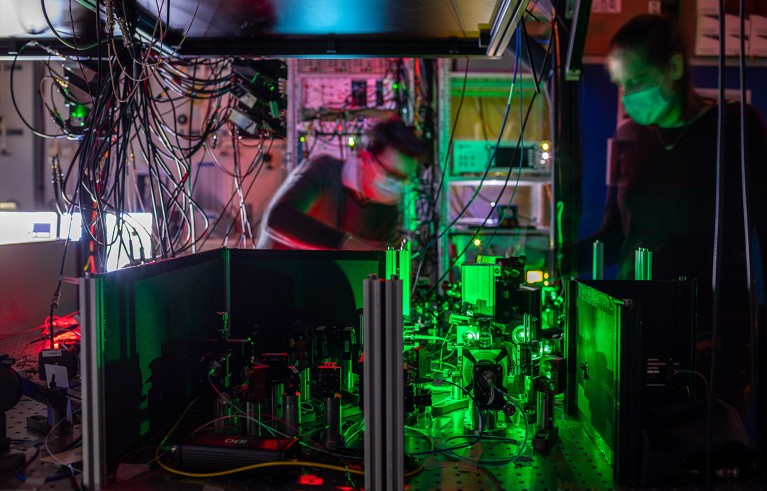
A quantum network node at Delft University of Technology in the Netherlands. Credit: Marieke de Lorijn for QuTech
Three separate research groups have demonstrated quantum entanglement — in which two or more objects are linked so that they contain the same information even if they are far apart — over several kilometres of existing optical fibres in real urban areas. The feat is a key step towards a future quantum internet , a network that could allow information to be exchanged while encoded in quantum states.
Together, the experiments are “the most advanced demonstrations so far” of the technology needed for a quantum internet, says physicist Tracy Northup at the University of Innsbruck in Austria. Each of the three research teams — based in the United States, China and the Netherlands — was able to connect parts of a network using photons in the optical-fibre-friendly infrared part of the spectrum, which is a “major milestone”, says fellow Innsbruck physicist Simon Baier.

How to build a quantum internet
A quantum internet could enable any two users to establish almost unbreakable cryptographic keys to protect sensitive information . But full use of entanglement could do much more, such as connecting separate quantum computers into one larger, more powerful machine. The technology could also enable certain types of scientific experiment, for example by creating networks of optical telescopes that have the resolution of a single dish hundreds of kilometres wide.
Two of the studies 1 , 2 were published in Nature on 15 May. The third was described last month in a preprint posted on arXiv 3 , which has not yet been peer reviewed.
Impractical environment
Many of the technical steps for building a quantum internet have been demonstrated in the laboratory over the past decade or so. And researchers have shown that they can produce entangled photons using lasers in direct line of sight of each other, either in separate ground locations or on the ground and in space.
But going from the lab to a city environment is “a different beast”, says Ronald Hanson, a physicist who led the Dutch experiment 3 at the Delft University of Technology. To build a large-scale network, researchers agree that it will probably be necessary to use existing optical-fibre technology. The trouble is, quantum information is fragile and cannot be copied; it is often carried by individual photons, rather than by laser pulses that can be detected and then amplified and emitted again. This limits the entangled photons to travelling a few tens of kilometres before losses make the whole thing impractical. “They also are affected by temperature changes throughout the day — and even by wind, if they’re above ground,” says Northup. “That’s why generating entanglement across an actual city is a big deal.”
The three demonstrations each used different kinds of ‘quantum memory’ device to store a qubit, a physical system such as a photon or atom that can be in one of two states — akin to the ‘1’ or ‘0’ of ordinary computer bits — or in a combination, or ‘quantum superposition’, of the two possibilities.
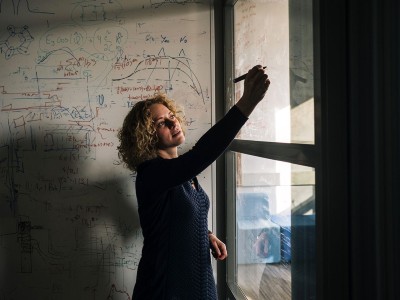
The quantum internet has arrived (and it hasn’t)
In one of the Nature studies, led by Pan Jian-Wei at the University of Science and Technology of China (USTC) in Hefei, qubits were encoded in the collective states of clouds of rubidium atoms 1 . The qubits’ quantum states can be set using a single photon, or can be read out by ‘tickling’ the atomic cloud to emit a photon. Pan’s team had such quantum memories set up in three separate labs in the Hefei area. Each lab was connected by optical fibres to a central ‘photonic server’ around 10 kilometres away. Any two of these nodes could be put in an entangled state if the photons from the two atom clouds arrived at the server at exactly the same time.
By contrast, Hanson and his team established a link between individual nitrogen atoms embedded in small diamond crystals with qubits encoded in the electron states of the nitrogen and in the nuclear states of nearby carbon atoms 3 . Their optical fibre went from the university in Delft through a tortuous 25-kilometre path across the suburbs of The Hague to reach a second laboratory in the city.
In the US experiment, Mikhail Lukin, a physicist at Harvard University in Cambridge, Massachusetts, and his collaborators also used diamond-based devices, but with silicon atoms instead of nitrogen, making use of the quantum states of both an electron and a silicon nucleus 2 . Single atoms are less efficient than atomic ensembles at emitting photons on demand, but they are more versatile, because they can perform rudimentary quantum computations. “Basically, we entangled two small quantum computers,” says Lukin. The two diamond-based devices were in the same building at Harvard, but to mimic the conditions of a metropolitan network, the researchers used an optical fibre that snaked around the local Boston area. “It crosses the Charles River six times,” Lukin says.
Challenges ahead
The entanglement procedure used by the Chinese and the Dutch teams required photons to arrive at a central server with exquisite timing precision, which was one of the main challenges in the experiments. Lukin’s team used a protocol that does not require such fine-tuning: instead of entangling the qubits by getting them to emit photons, the researchers sent one photon to entangle itself with the silicon atom at the first node. The same photon then went around the fibre-optic loop and came back to graze the second silicon atom, thereby entangling it with the first.
Pan has calculated that at the current pace of advance, by the end of the decade his team should be able to establish entanglement over 1,000 kilometres of optical fibres using ten or so intermediate nodes, with a procedure called entanglement swapping . (At first, such a link would be very slow, creating perhaps one entanglement per second, he adds.) Pan is the leading researcher for a project using the satellite Micius , which demonstrated the first quantum-enabled communications in space, and he says there are plans for a follow-up mission.
“The step has now really been made out of the lab and into the field,” says Hanson. “It doesn’t mean it’s commercially useful yet, but it’s a big step.”
Nature 629 , 734-735 (2024)
doi: https://doi.org/10.1038/d41586-024-01445-2
Knaut, C. M. et al. Nature 629 , 573–578 (2024).
Article PubMed Google Scholar
Liu, J. L. et al. Nature 629 , 579–585 (2024).
Stolk, A. J. et al. Preprint at arXiv https://doi.org/10.48550/arXiv.2404.03723 (2024).
Download references
Reprints and permissions
Related Articles

The AI–quantum computing mash-up: will it revolutionize science?
- Quantum physics
- Quantum information

Entanglement of nanophotonic quantum memory nodes in a telecom network
Article 15 MAY 24

Wavefunction matching for solving quantum many-body problems

Creation of memory–memory entanglement in a metropolitan quantum network

An atomic boson sampler
Article 08 MAY 24
Sir Run Run Shaw Hospital, School of Medicine, Zhejiang University, Warmly Welcomes Talents Abroad
“Qiushi” Distinguished Scholar, Zhejiang University, including Professor and Physician
No. 3, Qingchun East Road, Hangzhou, Zhejiang (CN)
Sir Run Run Shaw Hospital Affiliated with Zhejiang University School of Medicine
Associate Editor, Nature Briefing
Associate Editor, Nature Briefing Permanent, full time Location: London, UK Closing date: 10th June 2024 Nature, the world’s most authoritative s...
London (Central), London (Greater) (GB)
Springer Nature Ltd
Professor, Division Director, Translational and Clinical Pharmacology
Cincinnati Children’s seeks a director of the Division of Translational and Clinical Pharmacology.
Cincinnati, Ohio
Cincinnati Children's Hospital & Medical Center

Data Analyst for Gene Regulation as an Academic Functional Specialist
The Rheinische Friedrich-Wilhelms-Universität Bonn is an international research university with a broad spectrum of subjects. With 200 years of his...
53113, Bonn (DE)
Rheinische Friedrich-Wilhelms-Universität
Recruitment of Global Talent at the Institute of Zoology, Chinese Academy of Sciences (IOZ, CAS)
The Institute of Zoology (IOZ), Chinese Academy of Sciences (CAS), is seeking global talents around the world.
Beijing, China
Institute of Zoology, Chinese Academy of Sciences (IOZ, CAS)
Sign up for the Nature Briefing newsletter — what matters in science, free to your inbox daily.
Quick links
- Explore articles by subject
- Guide to authors
- Editorial policies
MS Program in Human-Computer Interaction
Research is one of the primary ways our program redefines the human experience of computing. The MS-HCI Program at Georgia Tech is at the forefront of technological innovation through the work of dedicated faculty and students, and partnerships with companies and organizations around the world. We study, invent, and integrate computational capabilities and their interactions to empower people and machines to enhance the human condition.
Our program emphasizes several key research focus areas, allowing students to explore and contribute to advancements in:
User Experience (UX) Research and Design: Informing and crafting interfaces that prioritize user needs, improve performance, and enhance overall satisfaction.
Accessibility and Inclusive Design: Ensuring digital products and systems are accessible to diverse user populations.
Interaction Design: Designing intuitive and engaging interactions between users and technology.
Educational Technology: advancing enhanced learning experiences through digital technology and mixed reality
Health and Wellness Design: Investigating health and wellness experiences across the lifespan to develop tools to enable equitable and informed care.
Human-Centered Artificial Intelligence (AI): Exploring ethical and effective integration of AI technologies into human-centric applications
Masters Research Projects (Capstone)
Our students practice and hone industry-relevant skills through their Masters Research Project – a two-semester journey blending creativity and expertise. Under GT faculty guidance, students craft evidence-based solutions and collaborate with industry, communities, and nonprofits. From user-centered perspectives to iterative prototyping, our students develop, validate, and communicate impactful findings.
Course Projects
Starting in the first semester, students work on solo and team projects in core and elective classes. These course projects are an opportunity for students to explore products, services, and emerging technologies while building portfolio-ready artifacts. Students learn common methods employed in user-centered and evidence-based design. They are trained to use appropriate methods, tools, metrics, and analyses for generating evidence to inform and reflect on design decisions. They become proficient in generating design artifacts from sketches and wireframes to prototypes and functioning systems. Many of our course projects have similar objectives:
Define a focused problem space
Conduct research for relevant data
Analyze findings for informed design decisions
Iteratively develop prototypes through evidence-based processes
Validate prototypes through evaluation
Document and communicate findings in an evidence-based process
Project Partnerships
Interested in joining forces with our MS-HCI students on projects? Engage with a pool of talented graduate students who bring fresh perspectives and cutting-edge skills to address your real-world challenges.
Why Collaborate with HCI Students?
Innovative Solutions: Leverage the creativity and expertise of HCI students to develop innovative solutions tailored to your industry or organization needs.
Fresh Perspectives: Gain insights from a diverse group of students who approach problems with a user-centered perspective, ensuring solutions resonate with end-users.
Future Talent: Identify and connect with potential future hires as you work closely with students who are passionate about HCI, UX, and emerging technologies.
Expectations for External Partners:
- Designated point of contact with organizational authority
- Project focus on education, not tied to current company projects
- Students own intellectual property; work showcased in portfolios
- Weekly/bi-weekly meetings for progress and collaboration.
Past project partners include MARTA, FanDuel, Delta, Sam’s Club, Carputty, The Home Depot, Microsoft, OCLC, UPS, Netflix, Stanley Black and Decker, Starbucks, eBay, EY, MathWorks, John Deere, Pumpkin, Insomniac Games, CTSA/Emory, Task Force for Global Health, ZenVR, Georgia Aquarium, and many other local and national contacts.
College of Computing
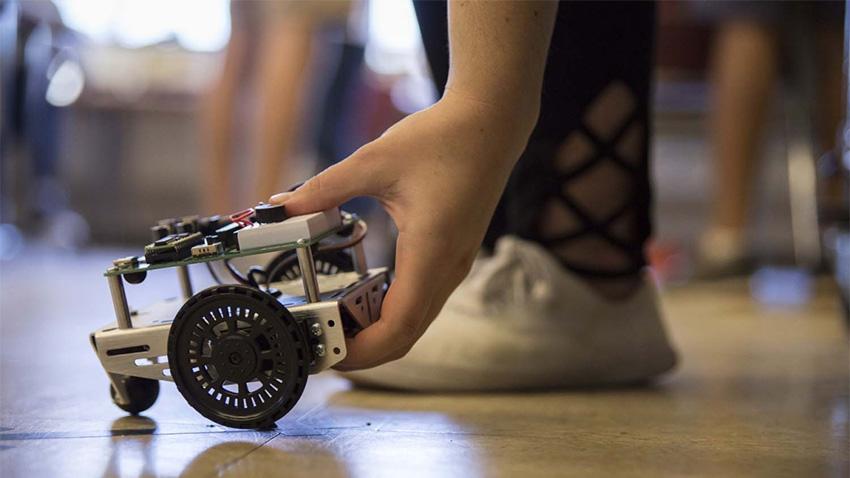
- Research Areas
At Georgia Tech, computing is taken seriously. Founded in 1990, the College of Computing represented just the second computing college at top U.S. universities, and its commitment to that continues to this day. Our five schools and some 140 faculty allow us to explore a wide range of research areas - from the foundations of computing, like networking and software engineering, to disciplines like that focus on the exchange between person and machine, like human-computer interaction and animation, and even to the emerging areas of computational engineering and sciences.
We invite you to use the links below to explore the widening research world of GT Computing.
- Computer Architecture
- Foundations of Artificial Intelligence
- Programming Languages & Software Engineering
- Artificial Intelligence & Machine Learning
- Cognitive and Learning Sciences
- Computer Graphics
- Data Visualization
- Human-Computer Interaction
- Social Computing
- High-Performance Computing
- Data Science and Visual Analytics
- Scientific Computing and Simulation
- Artificial Intelligence and Machine Learning
- Computational Bioscience and Biomedicine
- Applied and Mathematical Cryptography
- Cybersecurity and International Affairs
- Cyber-Physical Systems
- Cybersecurity Policy and Law
- Election Security
- Forensics and Attribution
- Hardware Security and Sidechannel Analysis
- Network and System Security
- Privacy and Data Protection
- Research Centers
- Interdisciplinary Research Institutes
- Undergrad Research
Georgia Tech Research Projects
Covid-19 research projects.
Connecting the Georgia Tech community to Covid-19-related research across campus and facilities
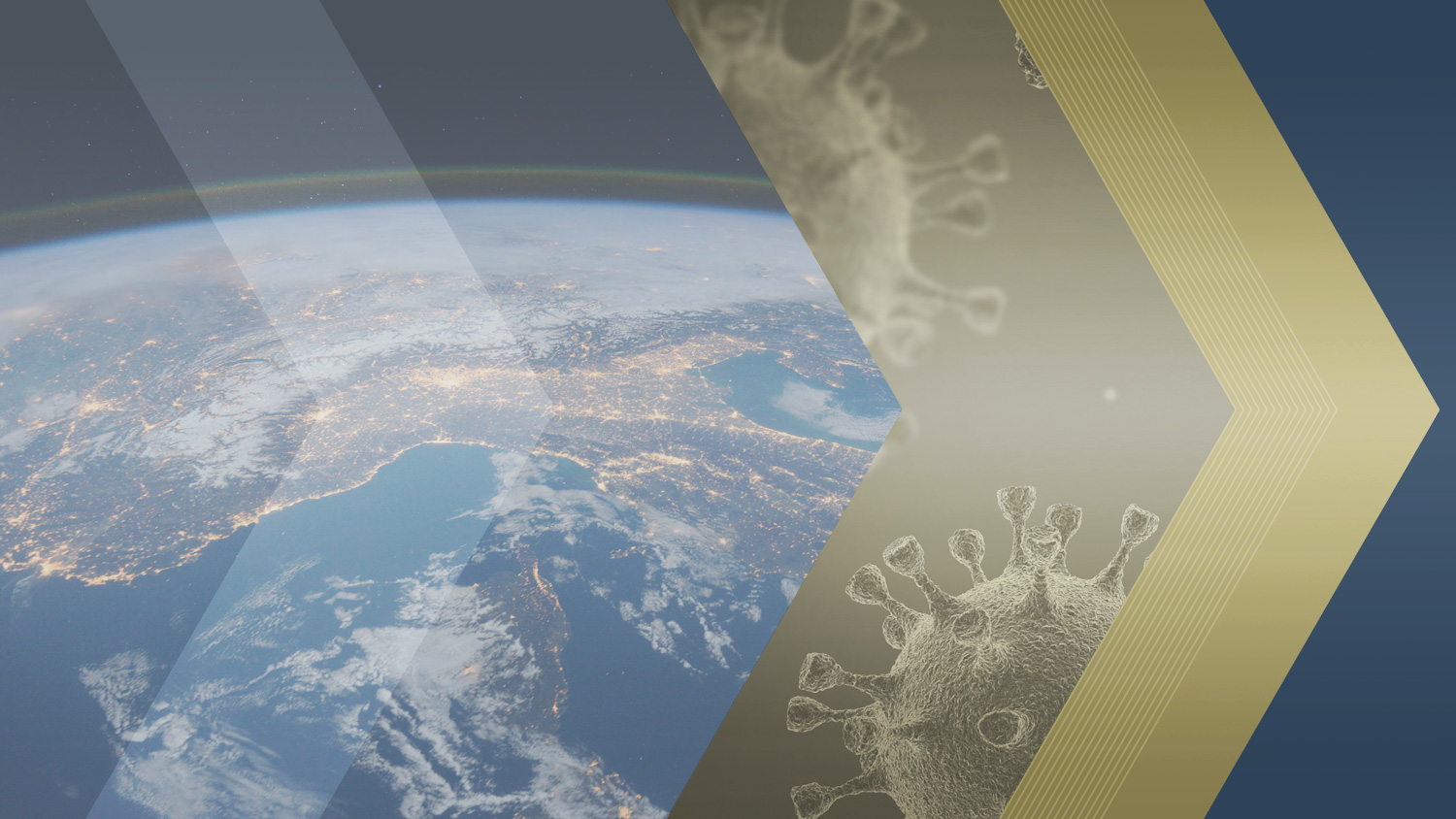
Welcome to Georgia Tech Research Projects
This site is designed to provide a centralized location for all projects inside of the Georgia Tech community related to the Covid-19 response. This site allows users to filter and sort through the database and glean pertinent information about projects of interest. If perhaps you are looking to collaborate with others doing research in a similar or mutually beneficial area of research, start here as this site is designed to promote cross-campus collaboration.
Visitors to the site can start by viewing all projects . You will be able to sort and filter to predefined categories for ease of navigation.
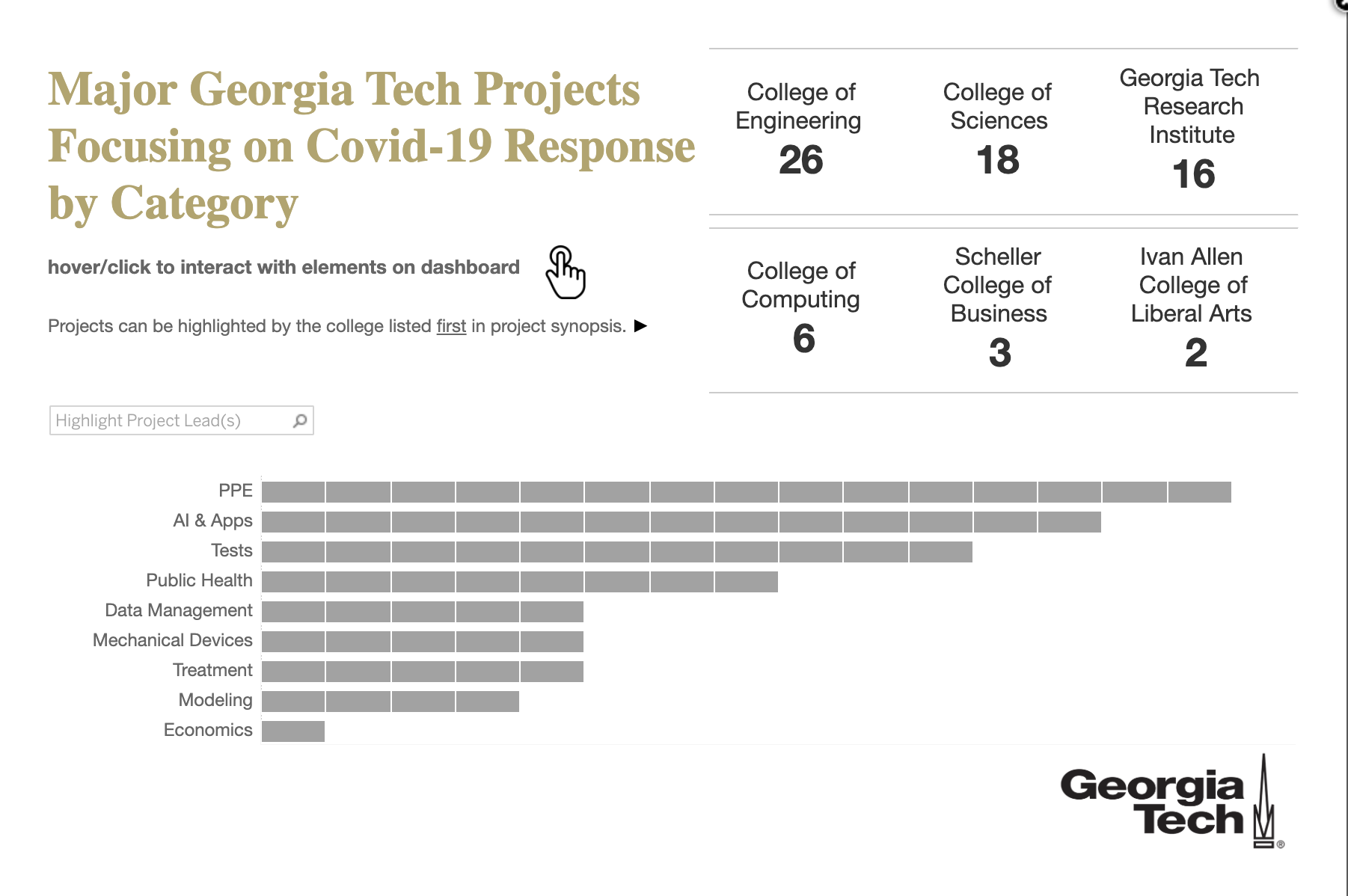
Interactive Dashboard
We now have an interactive dashboard that can display project data for our categories.
Recently Updated
Cdl - recovery.
CDL-Recovery is a pivot of the Creative Destruction Lab (CDL), an objective-setting mentoring program for early-stage science projects. CDL-Recovery focuses on mentoring and developing ventures and projects in two streams: public health and economic recovery. The goal is to identify and support ventures with prospects for massive scalability, developing products and services that will enhance public health resilience and promote economic recovery in a changing work environment over six to 24 months.
The team’s work on CDL-Recovery, which is a collaborative effort of CDL’s global network, is both an end in itself and the precursor to CDL-Atlanta, which is due to launch in Fall 2020 and will focus on consumer health and retail tech.
For more information about this effort, check out the press release CDL launches rapid response effort.
Our objective is to demonstrate disinfecting using UV-C light directed by a robot arm. By applying the light extremely close to the surface (about 5 cm), we hope to drastically decrease the time needed to kill pathogens.
Completed Projects
Covid-19 patient monitoring using the smartphone.
This project aims to support the development of a cross-platform smartphone application for the triage and monitoring of Covid-19 patients. The team plans to do so by leveraging sensors data collected with smartphones and the existing Health Readiness and Performance System (HRAPS) cloud for machine learning and data analytics. The developing technology will also apply to the longitudinal tracking of exposure to chemical and biological threats in military environments. For now, the technology will allow doctors and healthcare facilities to manage readmissions for Covid-19 patients better, intervene on patients before they become critical with potentially life-saving implications, and reduce the burden on emergency rooms and hospitals.
Covid-19 Response Assessment
- Project details will not be shared at this time. For any inquiries, please use the contact us section on this site.
COTS Parts Ventilator
This project aims to design an emergency ventilator that could be built entirely with widely available off-the-shelf parts from hardware and auto parts stores. The design valued efficiency and simplicity in multiple areas.
- No specialized tools, computer programming, or electronics/manufacturing skills are required.
- The design can be built by one or two people in approximately one day.
- The total cost is roughly $350 in parts.
In the basic configuration, the design supports a pressure-controlled constant mandatory ventilation mode (PC-CMV), with continuous independent control of positive inspiratory pressure (PIP), positive end-expiratory pressure (PEEP), and an inhale/exhale ratio selection of either 1:1 or 3:1.
Viral Nasal Swab-State-Wide Testing
Support the manufacturing industry in upscaling the production of plastic nasal swabs that go into Covid-19 swab kits. Researchers teamed with Kimberly Clark, connected the company to Puritan Medical Diagnostics, and provided other "learning curve" support. The goal has been to support the manufacturers in soliciting key manufacturing expertise. The team has provided several key expert connections, so the companies can upscale their production more rapidly. Researchers have learned that the core U.S. manufacturers have the capacity to supply millions of swabs per week, but they still need to repurpose these to Covid-19 kits and break out of existing supply contracts for other supplies. Thus, the critical limitations are at the distribution level though sufficient materials exist. The effort is being handled by these manufacturers, and the team is on standby for further input as needed.
Cornell Chronicle
- Architecture & Design
- Arts & Humanities
- Business, Economics & Entrepreneurship
- Computing & Information Sciences
- Energy, Environment & Sustainability
- Food & Agriculture
- Global Reach
- Health, Nutrition & Medicine
- Law, Government & Public Policy
- Life Sciences & Veterinary Medicine
- Physical Sciences & Engineering
- Social & Behavioral Sciences
- Coronavirus
- News & Events
- Public Engagement
- New York City
- Photos of the Week
- Big Red Sports
- Freedom of Expression
- Student Life
- University Statements
Around Cornell
- All Stories
- In the News
- Expert Quotes
- Cornellians
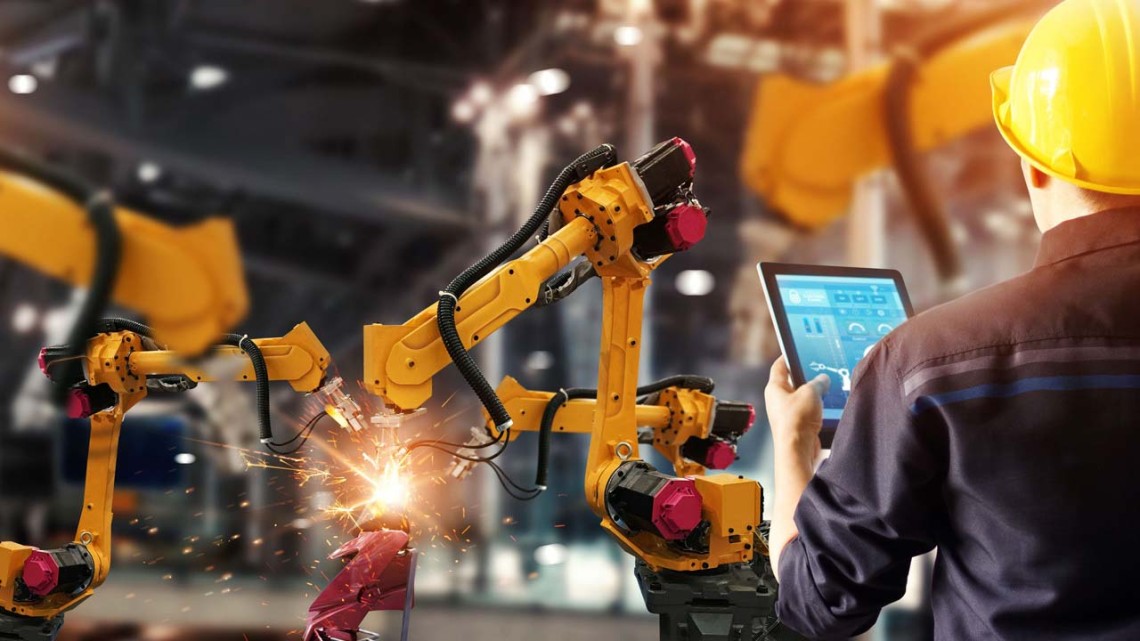
News directly from Cornell's colleges and centers
Research: Technology is changing how companies do business
By sarah mangus-sharpe.
A new study from the Cornell SC Johnson College of Business advances understanding of the U.S. production chain evolution amidst technological progress in information technology (IT), shedding light on the complex connections between business IT investments and organizational design. Advances in IT have sparked significant changes in how companies design their production processes. In the paper " Production Chain Organization in the Digital Age: Information Technology Use and Vertical Integration in U.S. Manufacturing ," which published April 30 in Management Science, Chris Forman , the Peter and Stephanie Nolan Professor in the Dyson School of Applied Economics and Management , and his co-author delved into what these changes mean for businesses and consumers.
Forman and Kristina McElheran, assistant professor of strategic management at University of Toronto, analyzed U.S. Census Bureau data of over 5,600 manufacturing plants to see how the production chains of businesses were affected by the internet revolution. Their use of census data allowed them to look inside the relationships among production units within and between companies and how transaction flows changed after companies invested in internet-enabled technology that facilitated coordination between them. The production units of many of the companies in their study concurrently sold to internal and external customers, a mix they refer to as plural selling. They found that the reduction in communication costs enabled by the internet shifted the mix toward more sales outside of the firm, or less vertical integration.
The research highlights the importance of staying ahead of the curve in technology. Companies that embrace digital technologies now are likely to be the ones that thrive in the future. And while there are still many unanswered questions about how these changes will play out, one thing is clear: The relationship between technology and business is only going to become more and more intertwined in the future.
Read the full story on the Cornell SC Johnson College of Business news site, BusinessFeed.
Media Contact
Media relations office.
Get Cornell news delivered right to your inbox.
You might also like

Gallery Heading
9 Undergraduate Research Projects That Wowed Us This Year
The telegraph. The polio vaccine. The bar code. Light beer. Throughout its history, NYU has been known for innovation, with faculty and alumni in every generation contributing to some of the most notable inventions and scientific breakthroughs of their time. But you don’t wind up in the history books—or peer-reviewed journals—by accident; academic research, like any specialized discipline, takes hard work and lots of practice.
And at NYU, for students who are interested, that training can start early—including during an undergraduate's first years on campus. Whether through assistantships in faculty labs, summer internships, senior capstones, or independent projects inspired by coursework, undergrad students have many opportunities to take what they’re learning in the classroom and apply it to create original scholarship throughout their time at NYU. Many present their work at research conferences, and some even co-author work with faculty and graduate students that leads to publication.
As 2023-2024 drew to a close, the NYU News team coordinated with the Office of the Provost to pull together a snapshot of the research efforts that students undertook during this school year. The nine featured here represent just a small fraction of the impressive work we encountered in fields ranging from biology, chemistry, and engineering to the social sciences, humanities, and the arts.
These projects were presented at NYU research conferences for undergrads, including Migration and Im/Mobility , Pathways for Discovery: Undergraduate Research and Writing Symposium , Social Impact: NYU’s Applied Undergraduate Research Conference , Arts-Based Undergraduate Research Conference , Gallatin Student Research Conference , Dreammaker’s Summit , Tandon’s Research Excellence Exhibit , and Global Engagement Symposium . Learn more about these undergrad research opportunities and others.
Jordan Janowski (CAS '24)
Sade Chaffatt (NYU Abu Dhabi '24)
Elsa Nyongesa (GPH, CAS ’24 )
Anthony Offiah (Gallatin ’26)
Kimberly Sinchi (Tandon ’24) and Sarah Moughal (Tandon ’25)
Rohan Bajaj (Stern '24)
Lizette Saucedo (Liberal Studies ’24)
Eva Fuentes (CAS '24)
Andrea Durham (Tandon ’26)
Jordan Janowski (CAS ’24) Major: Biochemistry Thesis title: “Engineering Chirality for Functionality in Crystalline DNA”
Jordan Janowski (CAS '24). Photo by Tracey Friedman
I work in the Structural DNA Nanotechnology Lab, which was founded by the late NYU professor Ned Seeman, who is known as the father of the field. My current projects are manipulating DNA sequences to self-assemble into high order structures.
Essentially, we’re using DNA as a building material, instead of just analyzing it for its biological functions. It constantly amazes me that this is possible.
I came in as a pre-med student, but when I started working in the lab I realized that I was really interested in continuing my research there. I co-wrote a paper with postdoc Dr. Simon Vecchioni who has been a mentor to me and helped me navigate applying to grad school. I’m headed to Scripps Research in the fall. This research experience has led me to explore some of the molecules that make up life and how they could be engineered into truly unnatural curiosities and technologies.
My PI, Prof. Yoel Ohayon , has been super supportive of my place on the NYU women’s basketball team, which I’m a member of. He’s been coming to my games since sophomore year, and he’ll text me with the score and “great game!”— it’s been so nice to have that support for my interests beyond the lab.
Anthony Offiah (Gallatin ’26) Concentration: Fashion design and business administration MLK Scholars research project title: “project: DREAMER”
Anthony Offiah (Gallatin '26). Photo by Tracey Friedman
In “project: DREAMER,” I explored how much a person’s sense of fashion is a result of their environment or societal pressures based on their identity. Certain groups are pressured or engineered to present a certain way, and I wanted to see how much of the opposing force—their character, their personality—affected their sense of style.
This was a summer research project through the MLK Scholars Program . I did ethnographic interviews with a few people, and asked them to co-design their ideal garments with me. They told me who they are, how they identify, and what they like in fashion, and we synthesized that into their dream garments. And then we had a photo shoot where they were empowered to make artistic choices.
Some people told me they had a hard time conveying their sense of style because they were apprehensive about being the center of attention or of being dissimilar to the people around them. So they chose to conform to protect themselves. And then others spoke about wanting to safeguard the artistic or vulnerable—or one person used the word “feminine”—side of them so they consciously didn’t dress how they ideally would.
We ended the interviews by stating an objective about how this co-designing process didn’t end with them just getting new clothes—it was about approaching fashion differently than how they started and unlearning how society might put them in a certain box without their approval.
My concentration in Gallatin is fashion design and business administration. In the industry some clothing is critiqued and some clothing is praised—and navigating that is challenging, because what you like might not be well received. So doing bespoke fashion for just one person is freeing in a sense because you don’t have to worry about all that extra stuff. It’s just the art. And I like being an artist first and thinking about the business second.
Lizette Saucedo (Global Liberal Studies ’24) Major: Politics, rights, and development Thesis title: “Acknowledging and Remembering Deceased Migrants Crossing the U.S.-Mexican Border”
Lizette Saucedo (Global Liberal Studies '24). Photo by Tracey Friedman
My thesis project is on commemorating migrants who are dying on their journey north to cross the U.S.–Mexican border. I look at it through different theoretical lenses, and one of the terms is necropolitics—how politics shapes the way the State governs life and especially death. And then of the main issues aside from the deaths is that a lot of people in the U.S. don’t know about them, due to the government trying to eschew responsibility for migrant suffering. In the final portion of the thesis, I argue for presenting what some researchers call “migrant artifacts”—the personal belongings left behind by people trying to cross over—to the public, so that people can become aware and have more of a human understanding of what’s going on.
This is my senior thesis for Liberal Studies, but the idea for it started in an International Human Rights course I took with professor Joyce Apsel . We read a book by Jason De León called The Land of the Open Graves , which I kept in the back of my mind. And then when I studied abroad in Germany during my junior year, I noticed all the different memorials and museums, and wondered why we didn’t have the equivalent in the U.S. My family comes from Mexico—my parents migrated—and ultimately all of these interests came together.
I came into NYU through the Liberal Studies program and I loved it. It’s transdisciplinary, which shaped how I view my studies. My major is politics, rights, and development and my minor is social work, but I’ve also studied museum studies, and I’ve always loved the arts. The experience of getting to work one-on-one on this thesis has really fortified my belief that I can combine all those things.
Sade Chaffatt (Abu Dhabi ’24) Major: Biology Thesis title: “The Polycomb repressive component, EED in mouse hepatocytes regulates liver homeostasis and survival following partial hepatectomy.”
Sade Chaffatt (NYU Abu Dhabi '24). Photo courtesy of NYUAD
Imagine your liver as a room. Within the liver there are epigenetic mechanisms that control gene expression. Imagine these epigenetic mechanisms as a dimmer switch, so that you could adjust the light in the room. If we remove a protein that is involved in regulating these mechanisms, there might be dysregulation—as though the light is too bright or too dim. One such protein, EED, plays a crucial role in regulating gene expression. And so my project focuses on investigating whether EED is required in mouse hepatocytes to regulate liver homeostasis and to regulate survival following surgical resection.
Stepping into the field of research is very intimidating when you’re an undergraduate student and know nothing. But my capstone mentor, Dr. Kirsten Sadler , encourages students to present their data at lab meetings and to speak with scientists. Even though this is nerve-wracking, it helps to promote your confidence in communicating science to others in the field.
If you’d asked 16-year-old me, I never would’ve imagined that I’d be doing research at this point. Representation matters a lot, and you often don't see women—especially not Black women—in research. Being at NYUAD has really allowed me to see more women in these spaces. Having had some experience in the medical field through internships, I can now say I’m more interested in research and hope to pursue a PhD in the future.
Kimberly Sinchi (Tandon ’24) Major: Computer Science Sarah Moughal (Tandon ’25) Major: Computer Science Project: Robotic Design Team's TITAN
Sarah Moughal (Tandon '25, left) and Kimberly Sinchi (Tandon '24). Photo by Tracey Friedman
Kimberly: The Robotic Design Team has been active at NYU for at least five years. We’re 60-plus undergrad and grad students majoring in electrical engineering, mechanical engineering, computer science, and integrated design. We’ve named our current project TITAN because of how huge it is. TITAN stands for “Tandon’s innovation in terraforming and autonomous navigation.”
Sarah: We compete in NASA’s lunatics competition every year, which means we build a robot from scratch to be able to compete in lunar excavation and construction. We make pretty much everything in house in the Tandon MakerSpace, and everyone gets a little experience with machining, even if you're not mechanical. A lot of it is about learning how to work with other people—communicating across majors and disciplines and learning how to explain our needs to someone who may not be as well versed in particular technologies as we are.
Kimberly: With NYU’s Vertically Integrated Project I’ve been able to take what I was interested in and actually have a real world impact with it. NASA takes notes on every Rover that enters this competition. What worked and what didn’t actually influences their designs for rovers they send to the moon and to Mars.
Eva Fuentes (CAS ’24) Major: Anthropology Thesis title: “Examining the relationship between pelvic shape and numbers of lumbar vertebrae in primates”
Eva Fuentes (CAS '24). Photo by Tracey Friedman
I came into NYU thinking I wanted to be an art history major with maybe an archeology minor. To do the archeology minor, you have to take the core classes in anthropology, and so I had to take an intro to human evolution course. I was like, this is the coolest thing I’ve learned—ever. So I emailed people in the department to see if I could get involved.
Since my sophomore year, I’ve been working in the Evolutionary Morphology Lab with Scott Williams, who is primarily interested in the vertebral column of primates in the fossil record because of how it can inform the evolution of posture and locomotion in humans.
For my senior thesis, I’m looking at the number of lumbar vertebrae—the vertebrae that are in the lower back specifically—and aspects of pelvic shape to see if it is possible to make inferences about the number of lumbar vertebrae a fossil may have had. The bones of the lower back are important because they tell us about posture and locomotion.
I committed to a PhD program at Washington University in St. Louis a few weeks ago to study biological anthropology. I never anticipated being super immersed in the academic world. I don’t come from an academic family. I had no idea what I was doing when I started, but Scott Williams, and everyone in the lab, is extremely welcoming and easy to talk to. It wasn't intimidating to come into this lab at all.
Elsa Nyongesa (GPH, CAS ’24 ) Major: Global Public Health and Biology Project: “Diversity in Breast Oncological Studies: Impacts on Black Women’s Health Outcomes”
Elsa Nyongesa (GPH, CAS '24). Photo by Tracey Friedman
I interned at Weill Cornell Medicine through their Travelers Summer Research Fellowship Program where I worked with my mentor, Dr. Lisa Newman, who is the head of the International Center for the Study of Breast Cancer Subtypes. I analyzed data on the frequency of different types of breast cancer across racial and ethnic groups in New York. At the same time, I was also working with Dr. Rachel Kowolsky to study minority underrepresentation in clinical research.
In an experiential learning course taught by Professor Joyce Moon Howard in the GPH department, I created a research question based on my internship experience. I thought about how I could combine my experiences from the program which led to my exploration of the correlation between minority underrepresentation in breast oncological studies, and how it affects the health outcomes of Black women with breast cancer.
In my major, we learn about the large scope of health disparities across different groups. This opportunity allowed me to learn more about these disparities in the context of breast cancer research. As a premedical student, this experience broadened my perspective on health. I learned more about the social, economic, and environmental factors influencing health outcomes. It also encouraged me to examine literature more critically to find gaps in knowledge and to think about potential solutions to health problems. Overall, this experience deepened my philosophy of service, emphasizing the importance of health equity and advocacy at the research and clinical level.
Rohan Bajaj (Stern ’24) Major: Finance and statistics Thesis title: “Measuring Socioeconomic Changes and Investor Attitude in Chicago’s Post-Covid Economic Recovery”
Rohan Bajaj (Stern '24). Photo by Tracey Friedman
My thesis is focused on understanding the effects of community-proposed infrastructure on both the socioeconomic demographics of cities and on fiscal health. I’m originally from Chicago, so it made a lot of sense to pay tribute back to the place that raised me. I’m compiling a list of characteristics of infrastructure that has been developed since 2021 as a part of the Chicago Recovery Plan and then assessing how neighborhoods have changed geographically and economically.
I’m looking at municipal bond yields in Chicago as a way of evaluating the fiscal health of the city. Turns out a lot of community-proposed infrastructure is focused in lower income areas within Chicago rather than higher income areas. So that makes the research question interesting, to see if there’s a correlation between the proposed and developed infrastructure projects, and if these neighborhoods are being gentrified alongside development.
I kind of stumbled into the impact investing industry accidentally from an internship I had during my time at NYU. I started working at a renewable energies brokerage in midtown, where my main job was collecting a lot of market research trends and delivering insights on how these different energy markets would come into play. I then worked with the New York State Insurance Fund, where I helped construct and execute their sustainable investment strategy from the ground up.
I also took a class called “Design with Climate Change” with Peter Anker in Gallatin during my junior year, and a lot of that class was focused on how to have climate resilient and publicly developed infrastructure, and understanding the effects it has on society. It made me start thinking about the vital role that physical surroundings play in steering communities.
In the short term I want to continue diving into impact-focused investing and help identify urban planners and city government to develop their communities responsibly and effectively.
Andrea Durham (Tandon, ’26) Major: Biomolecular science Research essay title: “The Rise and Fall of Aduhelm”
Andrea Durham (Tandon '26). Photo by Tracey Friedman
This is an essay I wrote last year in an advanced college essay writing class with Professor Lorraine Doran on the approval of a drug for Alzheimer’s disease called Aduhelm—a monoclonal antibody therapy developed by Biogen in 2021, which was described as being momentous and groundbreaking. But there were irregularities ranging from the design of its clinical trials to government involvement that led to the resignation of three scientists on an advisory panel, because not everybody in the scientific community agreed that it should be approved.
When I was six years old, my grandmother was diagnosed. Seeing the impact that it had over the years broke my heart and ignited a passion in me to pursue research.
When I started at NYU, I wasn’t really sure what I was going to do in the future, or what opportunities I would go after. This writing class really gave me an opportunity to reflect on the things that were important to me in my life. The September after I wrote this paper, I started volunteering in a lab at Mount Sinai for Alzheimer's disease research, and that’s what I’m doing now—working as a volunteer at the Center for Molecular Integrative Neuroresilience under Dr. Giulio Pasinetti. I have this opportunity to be at the forefront, and because of the work I did in my writing class I feel prepared going into these settings with an understanding of the importance of conducting ethical research and working with integrity.
- College of Engineering and Computing
- Location Location
- Contact Contact
- Colleges and Schools
- News and Events
- 2024 News Archive
Combining two elements for revolutionary battery technology
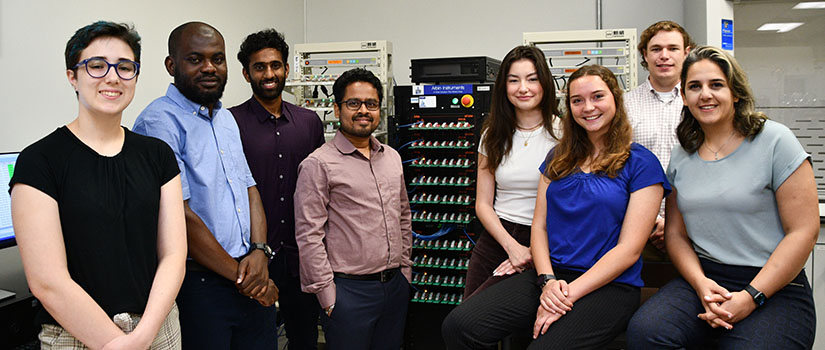
Pictured: Assistant Professor Golareh Jalilvand (right) and her research team.
Lithium-ion battery has become the most predominant and fastest-growing energy storage technology. However, existing lithium-ion battery electrode materials have relatively low theoretical capacity. This limits the achievable energy density to 260 watt-hour per kilogram (Wh/kg), which is far below the desired 500 Wh/kg for applications such as heavy-duty vehicles or grid batteries. Since a battery’s energy density is directly related to the capacity of the cathode (positive) and anode (negative) materials, alternative electrode chemistries are indispensable.
Sulfur has received significant attention as a replacement cathode material in lithium-ion batteries and is expected to supply an energy density of more than 500 Wh/kg when coupled with lithium metal anodes. Chemical Engineering Assistant Professor Golareh Jalilvand is one researcher working on this revolutionary energy technology.
Jalilvand is the principal investigator on a $1 million research project funded by NantG Power , a California-based company focused on high-performance lithium-ion battery cell technology. Patrick Soon-Shiong, owner and CEO of Nantworks , the parent company of NantG Power, and Fabio Albano and John Chmiola, are the industrial technical leads on the lithium-sulfur batteries project. While NantG Power works on multiple types of batteries, Jalilvand is leading their lithium-sulfur scientific research as one of the main technologies that the company is pursuing.
Jalilvand is currently in phase two of the project. The first phase focused on understanding the effect of sulfur cathode chemistry and electrode processing method on electrochemical performance, which also succeeded in improving achieved capacity and durability. While the first phase produced promising results with superior performance and several successes for moving to the next level, the testing used coin cells, which are not representative of all practical battery applications.
“Coin cells are ideal for lab scale and research level exploration. However, they do not provide the most accurate representation for practical battery forms, especially for lithium-sulfur batteries,” Jalilvand says. “The work on coin cells in phase one became the foundation of what we're currently doing. Without that knowledge base, our starting point in phase two would have been way off.”
According to Jalilvand, testing with practical form factors is necessary to determine if commercialization is possible. These form factors include cylindrical, prismatic and pouch cells. Jalilvand’s current work focuses on pouch cells, which theoretically has the highest energy density since it has the least amount of waste weight.
“Pouch cells usually have lighter and thinner battery casing than the other forms, which leaves most of the volume and weight of the battery for the energy-providing components,” Jalilvand says.
The current phase of the project has three primary tasks involving the development of new chemistries and structures for cathode and electrolyte. All tasks target transitioning the successes from coin cells to pouch cells.
“We are progressing in all tasks simultaneously and with an impressive pace thanks to the collaborative relationship between USC and NantG Power, as well as the great team of students and postdocs involved in the project,” Jalilvand says.
According to Jalilvand, given that the challenges of batteries grow with their size, she was not expecting the transition from coin to pouch cells to be as fast and successful in phase two. “This fast progress is facilitated by the knowledge foundation we built in phase one,” Jalilvand says.
Jalilvand admits that lithium-sulfur batteries have a lower power density than lithium-ion batteries. This is rooted in the charge and discharge mechanism of lithium-sulfur battery, which is based on a conversion reaction and requires sufficient time to properly operate. While this is less ideal for commuting electric vehicles, it makes lithium-sulfur batteries promising for many other applications that do not require fast charging.
“The best applications will be for heavy-duty trucks, buses and alike that need long discharge time, commonly known as milage, and can be kept overnight at charging stations. Or, for stationary applications such as grid-level energy storage and space applications,” Jalilvand says.
Before starting the project, Jalilvand’s research team had developed an electrode processing method that offered cell durability beyond 1,000 cycles, yet with insufficient achieved capacity. NantG Power invested in the promise and vision of this novel technology. As a result, in the first phase of research, the achieved capacity of lithium-sulfur batteries was doubled, while the loading of sulfur was increased four times than initially used. This motivated NantG Power and Jalilvand’s team to extend their collaboration and take their research into a more practical form factor of battery.
“We have achieved outstanding lithium-sulfur pouch cells with competent energy densities.” Jalilvand says. “I'm looking forward to seeing the long cycle life and durability of our pouch cells because that's the last check mark for us and our industrial partner. With that, it might be time to say we have a lithium-sulfur battery that is ready for commercialization.”
Challenge the conventional. Create the exceptional. No Limits.
Berkeley Space Center at NASA Ames to become innovation hub for new aviation, space technology
UC Berkeley will develop a 36-acre site to house companies, labs and students in heart of Silicon Valley
By Robert Sanders
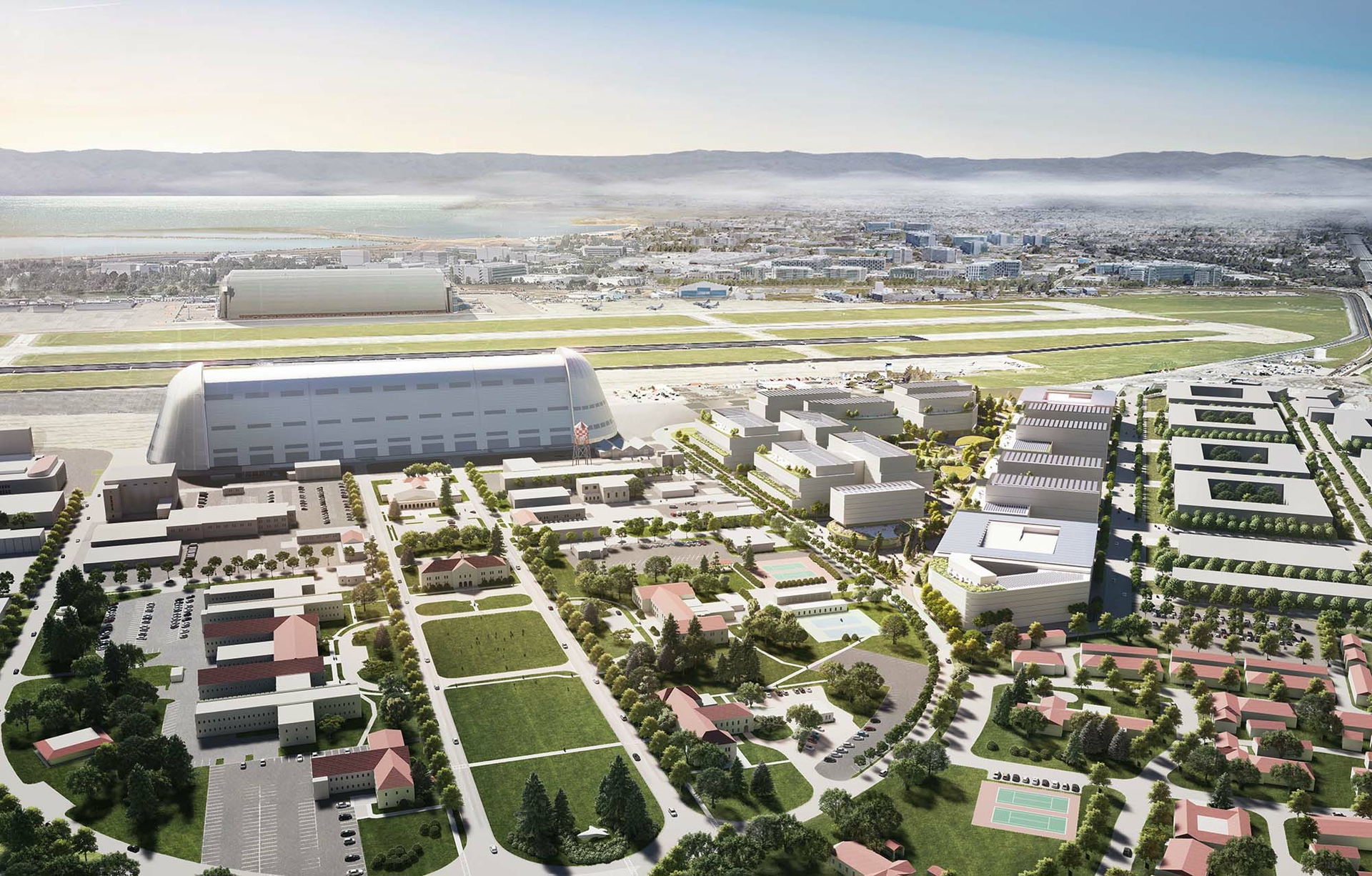
Field Operations and HOK
October 16, 2023
The University of California, Berkeley, is teaming up with NASA’s Ames Research Center and developer SKS Partners to create research space for companies interested in collaborating with UC Berkeley and NASA scientists and engineers to generate futuristic innovations in aviation, space exploration and how we live and work in space.
The Berkeley Space Center , announced today (Monday, Oct. 16), aims to accommodate up to 1.4 million square feet of research space on 36 acres of land at NASA Ames’ Moffett Field in Mountain View, leased from NASA.
The new buildings, some of which could be ready for move-in as early as 2027, will house not only state-of-the-art research and development laboratories for companies and UC Berkeley researchers, but also classrooms for UC Berkeley students. These students will benefit from immersion in the Silicon Valley start-up culture and proximity to the nation’s top aeronautical, space and AI scientists and engineers at Ames.
“We would like to create industry consortia to support research clusters focused around themes that are key to our objectives, in particular aviation of the future, resiliency in extreme environments, space bioprocess engineering, remote sensing and data science and computing,” said Alexandre Bayen , a UC Berkeley professor of electrical engineering and computer sciences and associate provost for Moffett Field program development.

Brandon Torres for NASA Ames
“We’re hoping to create an ecosystem where Berkeley talent can collaborate with the private sector and co-locate their research and development teams,” he added. “And since we will be close to NASA talent and technology in the heart of Silicon Valley, we hope to leverage that to form future partnerships.”
Ever since Naval Air Station Moffett Field was decommissioned in 1994 and NASA Ames acquired an additional 1,200 acres, NASA has been focused on developing those acres into a world-class research hub and start-up accelerator. Initiated in 2002, NASA Research Park now has some 25 companies on site, including Google’s Bay View campus.
“We believe that the research and the capabilities of a major university like Berkeley could be a significant addition to the work being done at Ames,” said NASA Ames Director Eugene Tu. “In a more specific way, we would like the potential of having proximity to more students at the undergraduate and graduate level. We would also like the possibility of developing potential partnerships with faculty in the future. The NASA mission is twofold: inspiring the next generation of explorers, and dissemination of our technologies and our research for public benefit. Collaboration between NASA and university researchers fits within that mission.”
UC Berkeley hopes eventually to establish housing at Moffett Field to make working at the innovation center easier for students — without a 47-mile commute each way. Bayen noted that Carnegie Mellon University already occupies a teaching building at Moffett Field. With the addition of UC Berkeley and the proximity of Stanford University, he expects the intensity of academic activities in the area, both instructional and research, to increase immensely.
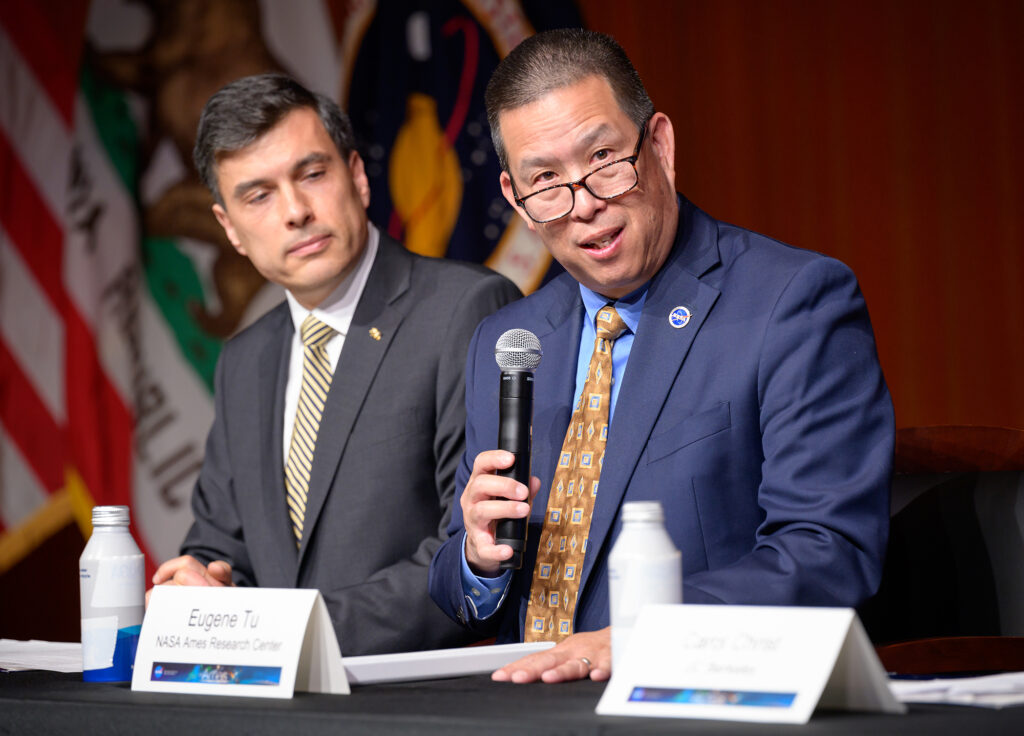
“We have major facilities here at Ames — the world’s largest wind tunnel, NASA’s only plasma wind tunnel to test entry systems and thermal protection systems, the agency’s supercomputers — and the university will likely build facilities here that that we might leverage as well. So, I look at that as a triad of students, faculty and facilities,” Tu added. “Then the fourth piece, which is equally important: If the project is approved to move forward, the university will likely bring in partners, will bring in industry, will bring in startups, will bring in incubators that could be relevant to NASA’s interest in advancing aeronautics, science and space exploration.”
“What they’re doing at NASA Ames is transformational, but in order to make it heroic, in order to make it even larger than what is now possible, they have to use the combined resources of the number one public university in the world, private industry and the most innovative place on the planet, which is Silicon Valley,” said Darek DeFreece, the project’s founder and executive director at UC Berkeley.
Automated aviation
Bayen emphasized that many academic institutions are now becoming global universities: New York University has demonstrated the ability to operate independent campuses on different continents — the Middle East and Asia — while Cornell has successfully opened a second campus in Manhattan, five hours from Ithaca. In the same vein, UC Berkeley is innovating by launching this research hub that, over the decades to come, could evolve into a campus as instructional and research and development activities grow.
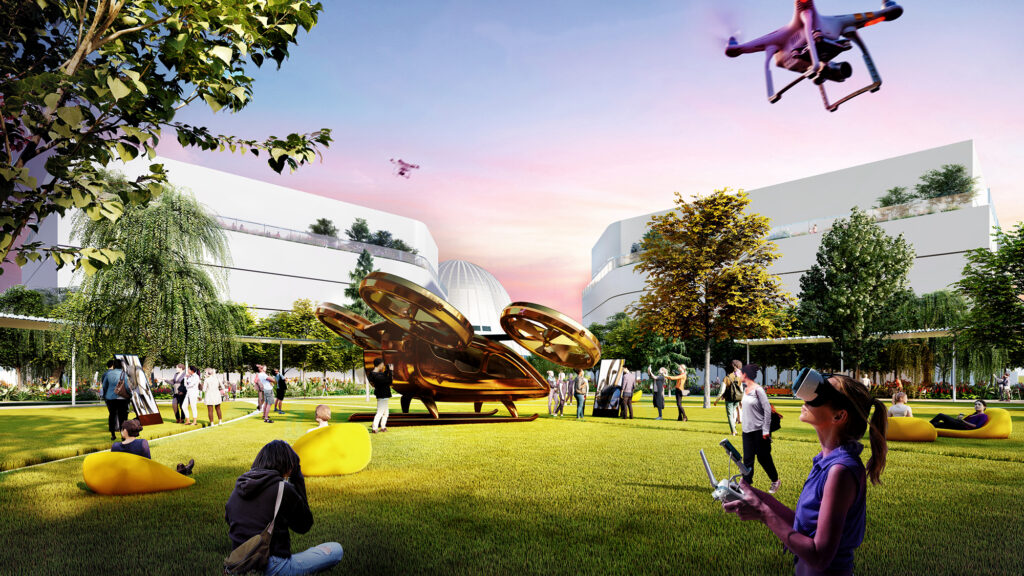
“This expansion of Berkeley’s physical footprint and academic reach represents a fantastic and unprecedented opportunity for our students, faculty and the public we serve,” said UC Berkeley Chancellor Carol Christ. “Enabling our world-class research enterprise to explore potential collaborations with NASA and the private sector will speed the translation of discoveries across a wide range of disciplines into the inventions, technologies and services that will advance the greater good. We are thrilled. This is a prime location and a prime time for this public university.”
Claire Tomlin, now professor and chair of electrical engineering and computer sciences at UC Berkeley, conducted her first research on automated collision avoidance systems for drones at Moffett Field, and foresees similar opportunities there for UC Berkeley students, especially those enrolled in the College of Engineering’s year-old aerospace engineering program.
“With our new aerospace engineering major, it is the right time to get started at Moffett Field. It offers an outdoor testbed for research on how to integrate drones or other unpiloted aerial vehicles, which are being used increasingly for aerial inspection or delivery of medical supplies, into our air traffic control system,” she said. “I anticipate great collaborations on topics such as new algorithms in control theory, new methods in AI, new electronics and new materials.”
Tomlin envisions research on networks of vertiports to support operations of electric autonomous helicopters or e-VTOLs (electric vertical takeoff and landing vehicles), much like UC Berkeley’s pioneering research in the 1990s on self-driving cars; collaborative work on how to grow plants in space or on other planets to produce food, building materials and pharmaceuticals, similar to the ongoing work in UC Berkeley’s Center for the Utilization of Biological Engineering in Space (CUBES); and collaborations on artificial intelligence with top AI experts in the Berkeley Artificial Intelligence Research lab (BAIR).
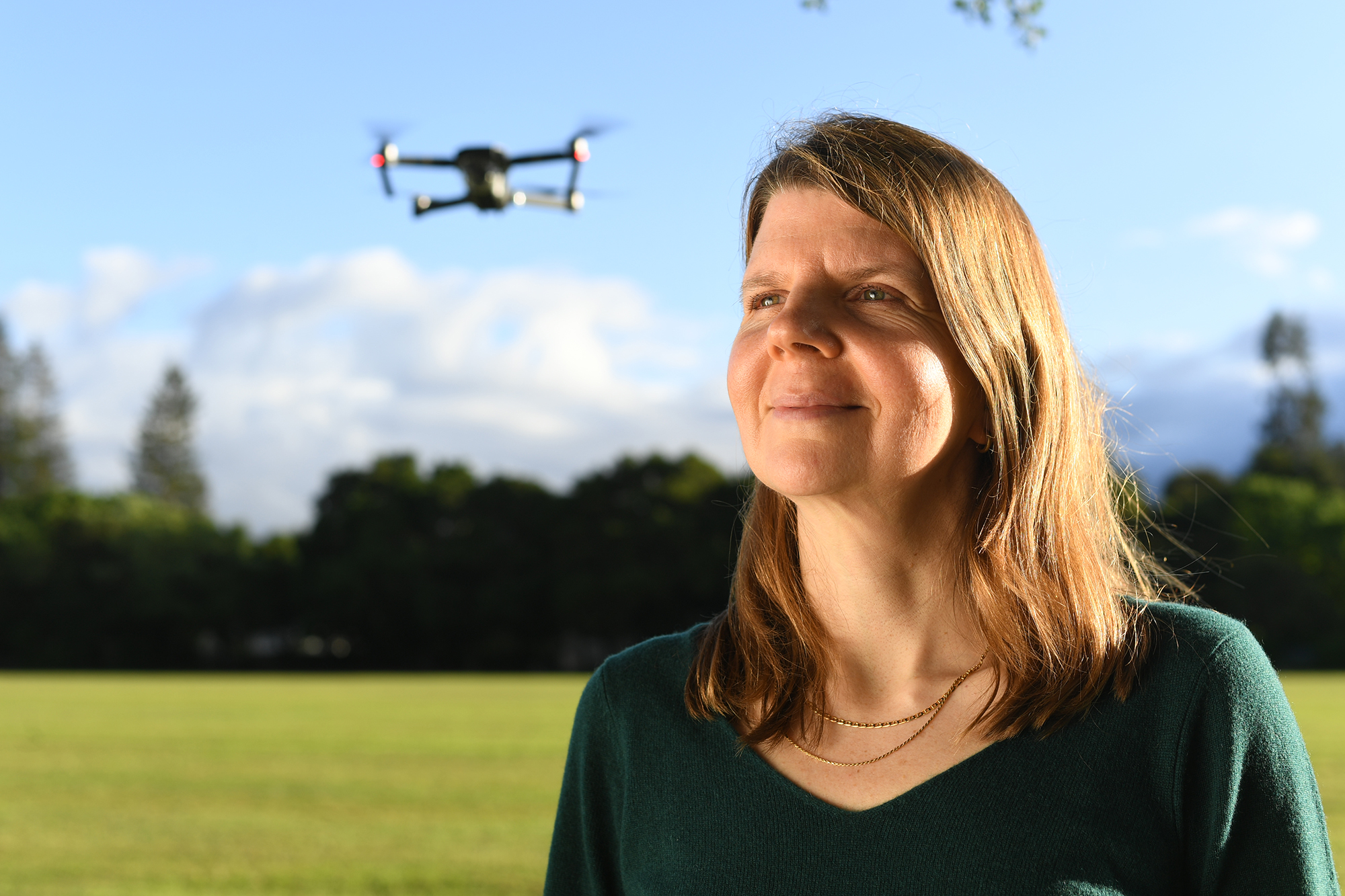
Noah Berger for UC Berkeley
“This is the decade of electric automated aviation, and the Berkeley Space Center should be a pioneer of it, not just by research, but also by experimentation and deployment,” Tomlin said. “We’re interested in, for example, how one would go about designing networks of vertiports that are economically viable, that are compatible with the urban landscape, that are prone to public acceptance and have an economic reality.”
“Advanced air mobility and revolutionizing the use of the airspace and how we use drones and unpiloted vehicles for future air taxis or to fight wildfires or to deliver cargo are other areas of potential collaboration,” Tu added.
Hannah Nabavi is one UC Berkeley student eager to see this proposed collaboration with NASA Ames and industry around Silicon Valley, even though she will have graduated by the time it comes to fruition. A senior majoring in engineering physics, she is the leader of a campus club called SpaceForm that is currently tapping NASA Ames scientists for research tips on projects such as how materials are affected by the harsh environment on the moon.
“I think one of the primary advantages to UC Berkeley of having this connection is it allows students to obtain a perspective on what’s happening in the real world. What are the real-world problems? What are the goals? How are things getting done?” said Nabavi, who plans to attend graduate school on a path to a career in the commercial space industry. “It also helps students figure out what they want to focus on by providing an early understanding of the research and industrial areas in aerospace.”
But beyond the practical benefits, she said, “I think that seeing all of these scientists and engineers tackling issues and questions at the forefront of aerospace can serve as a huge inspiration to students.”
AI and machine learning
In addition, data science and AI/machine learning are rapidly disrupting the aviation and space industry landscape as it evolves toward automation and human-machine interaction and as ever bigger datasets are being produced. The workforce needs retraining in these rapidly evolving fields, and UC Berkeley’s College of Computing, Data Science, and Society (CDSS) is well positioned to provide executive and professional education to meet these needs.
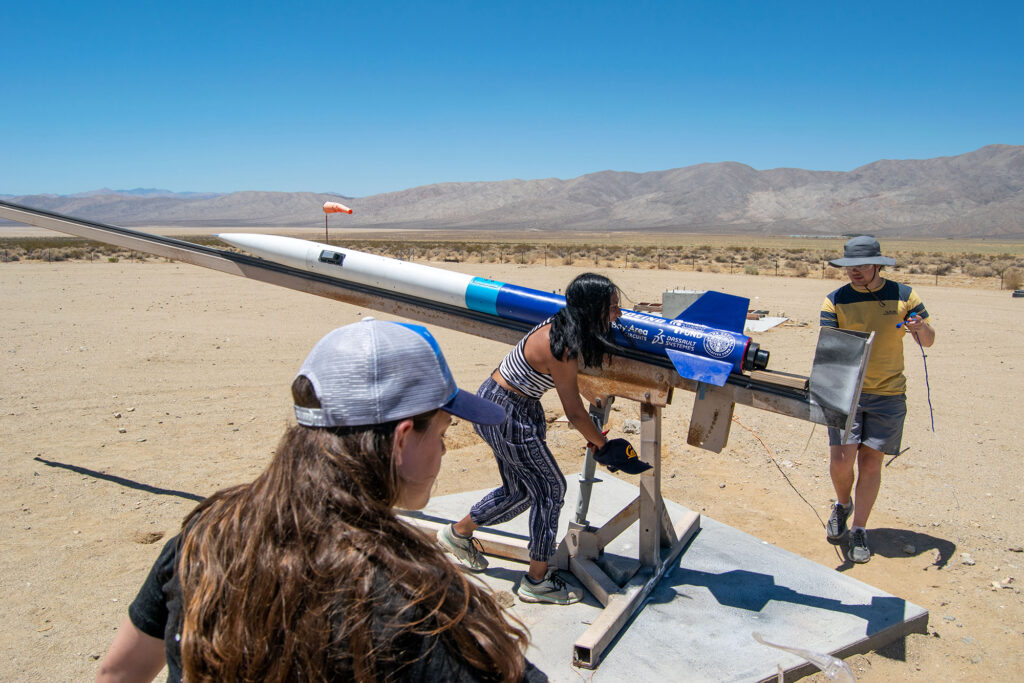
Photo courtesy of Space Technologies and Rocketry/Berkeley Engineering
“Berkeley Space Center offers the possibility for CDSS students to work on these new challenges, particularly in the fields of aeronautics and astronautics, planetary science and quantum science and technology,” said Sandrine Dudoit, associate dean at CDSS, professor of statistics and of public health and a member of the Moffett Field Faculty Steering Committee.
DeFreece noted that there are NASA collaborations already happening on the UC Berkeley campus. Many leverage the mission management and instrument-building skills at the Space Sciences Laboratory, which is responsible for the day-to-day operation of several NASA satellites and is building instruments for spacecraft that NASA will land on the moon or launch to monitor Earth and the sun.
UC Berkeley researchers are already investigating how to print 3D objects in space , how to create materials to sustain astronauts on Mars , how to test for life-based molecules on other planets and moons, and whether squishy robots could operate on other planets. UC Berkeley spin-offs are developing ways to monitor health in space and provide low-cost insertion of satellites into orbit .
“The Berkeley Space Center could be a place where half of the day students are collaborating with center neighbors, and the other half of the day they might be taking classes and seeing their mentors who are supervising class projects on the satellite that is hovering over their heads at that very moment,” Bayen said. “Experiences like these just don’t exist anywhere else at the present time.”
UC Berkeley’s Haas School of Business and Berkeley Law are also working on issues surrounding the commercial exploitation of space, including asteroids and other planets, and the laws that should govern business in space.
“Space law and policy are also areas where I think there’s some tremendous opportunities to collaborate with the university,” Tu said. “What are we going to do when we find resources on the moon, and other countries do as well, and companies want to make money from that?”
A focus on sustainability
In return for its investment and partnership, UC Berkeley will receive a portion of the revenues that the real estate development is projected to generate. While market-based returns are always subject to change, the joint venture conservatively estimates that the research hub will receive revenues more than sufficient to ensure that Berkeley Space Center is self-sustaining, as well as provide new financial support to the core campus, its departments and colleges, and faculty and students.

UC Berkeley also expects significant additional revenue from other, project-related sources, including new research grants, industry participation and partnerships, and the incubation and commercialization of emerging companies born from translational research and technologies created at the site.
SKS Partners , a San Francisco-based investor and developer of commercial real estate properties in the western U.S., will lead the venture. The planning team for the Berkeley Space Center will pursue LEED certification for its buildings — a mark of sustainability — by using solar power, blackwater and stormwater treatment and reuse, and emphasizing non-polluting transportation.
While construction is tentatively scheduled to begin in 2026, subject to environmental approvals, UC Berkeley is already creating connections between Silicon Valley companies on the NASA Ames property, including executive education programs.
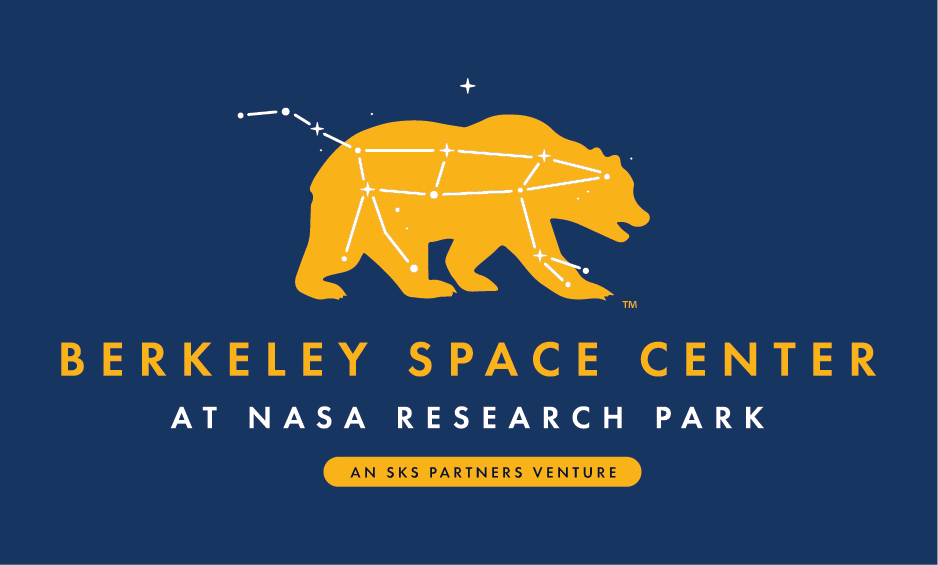
“In the next couple of years, we could conceivably have a semester rotation program, where UC Berkeley students spend one semester at Berkeley Space Center, take three classes taught there, do their research there, are temporarily housed there for a semester, just like they would do a semester abroad in Paris,” Bayen said. “Ultimately, we hope to build experiences that currently do not exist for students, staff and faculty and create an innovation ecosystem where breakthroughs that require public-private partnerships are enabled.”
The development team includes as co-master planners HOK, an architecture, engineering and planning firm, and Field Operations, an interdisciplinary urban design and landscape architecture firm.
RELATED INFORMATION
- Berkeley Space Center
- SKS website for Berkeley Space Center
- Perspective: The role of public–private partnerships in fostering outer space innovations (Oct. 16, 2023)
- NASA’s Ames Research Center
- SKS Partners

10 Trending MTech Final Year Projects: With Implementation Guides
Table of Contents
Introduction
Overview of mtech final year projects.
MTech final year projects serve as a bridge between academic learning and real-world applications. They offer students an opportunity to delve into practical implementations of theoretical concepts.
Significance of Real-Life Use Cases
Incorporating real-life use cases into MTech projects adds relevance and practicality. It enhances students’ understanding and provides valuable insights into industry needs and trends.
Project 1: Facial Recognition System
Real-life use case: security access control, implementation guide, – data collection and preprocessing.
- Collect a diverse dataset of facial images, ensuring variability in lighting conditions, facial expressions, and angles.
- Preprocess the collected data to remove noise, standardize image sizes, and enhance facial features.
– Model Selection and Training
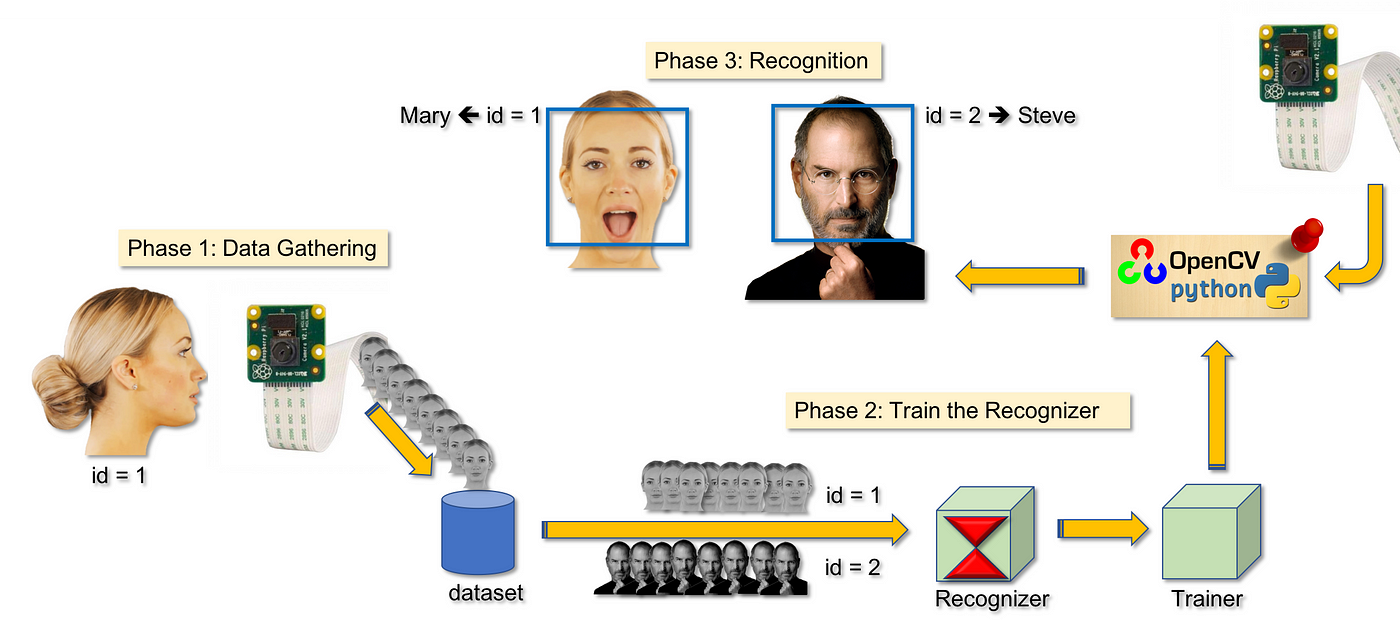
- Choose appropriate facial recognition algorithms, such as Eigenfaces, Fisherfaces, or Convolutional Neural Networks (CNNs), based on project requirements and computational resources.
- Train the selected model using the preprocessed dataset, optimizing parameters and hyperparameters for improved accuracy.
– Deployment and Integration
- Deploy the trained facial recognition model into access control systems, ensuring compatibility and scalability.
- Integrate the facial recognition system with existing security infrastructure, such as door locks, turnstiles, or attendance systems, for seamless access management.
Project 2: Predictive Maintenance for Industrial Equipment
Real-life use case: manufacturing industry, implementation guide: mtech final year projects, – sensor data collection.
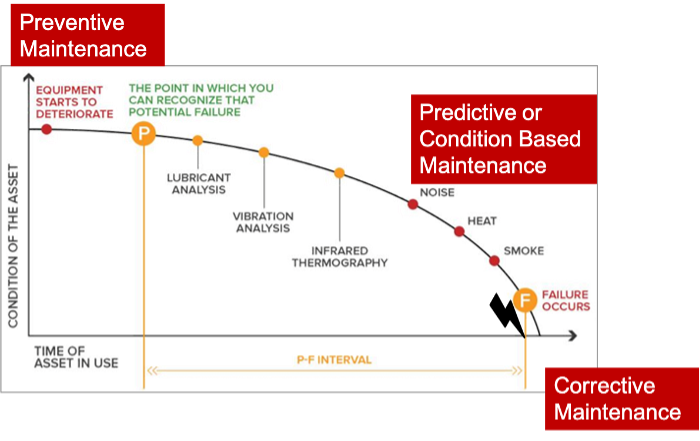
- Install sensors on critical industrial equipment to monitor parameters such as temperature, vibration, pressure, and fluid levels.
- Collect and store sensor data in real-time or at regular intervals for analysis and prediction.
– Predictive Model Development
- Develop predictive maintenance models using machine learning algorithms such as regression, classification, or time series analysis.
- Train the models using historical sensor data, identifying patterns and correlations indicative of potential equipment failures.
– Integration with Existing Systems
- Integrate the predictive maintenance system with existing industrial control and monitoring systems, such as Supervisory Control and Data Acquisition (SCADA) or Manufacturing Execution Systems (MES).
- Implement alert mechanisms and notifications to notify maintenance personnel of impending equipment failures or maintenance requirements, enabling proactive intervention.
Project 3: Sentiment Analysis for Social Media: MTech Final Year Projects
Real-life use case: brand reputation management, – data scraping and cleaning.

- Gather data from social media platforms using APIs or web scraping tools.
- Clean the collected data to remove noise, irrelevant information, and duplicates.
– Text Preprocessing
- Preprocess text data by tokenizing, removing stop words, and stemming or lemmatizing to standardize text representations.
– Model Training and Evaluation
- Choose appropriate machine learning or deep learning algorithms for sentiment analysis, such as Naive Bayes, Support Vector Machines (SVM), or Recurrent Neural Networks (RNNs).
- Train the model using labeled data and evaluate its performance using metrics like accuracy, precision, recall, and F1-score.
Project 4: Autonomous Drone Navigation: MTech Final Year Projects
Real-life use case: agricultural monitoring, – sensor integration.
- Integrate sensors such as cameras, multispectral imaging, and LiDAR to collect data on crop health, soil moisture levels, and environmental conditions.
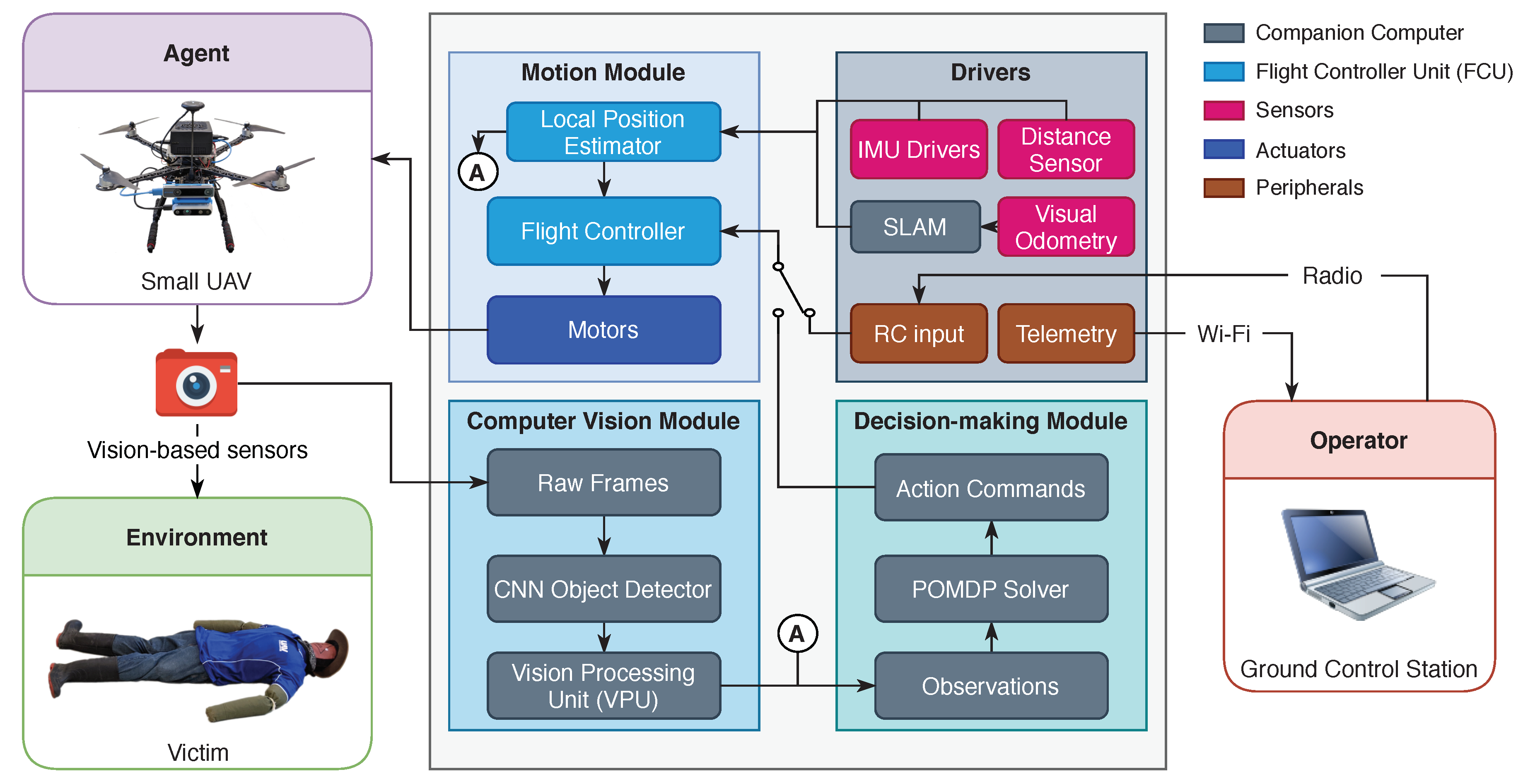
– Path Planning Algorithm
- Develop path planning algorithms to optimize drone routes for efficient coverage of agricultural fields while avoiding obstacles and maintaining safety.
– Testing and Optimization
- Conduct field tests to validate drone navigation performance under real-world conditions.
- Optimize navigation algorithms based on feedback and performance metrics to enhance efficiency and accuracy.
Project 5: Fraud Detection in Financial Transactions: MTech Final Year Projects
Real-life use case: banking sector.
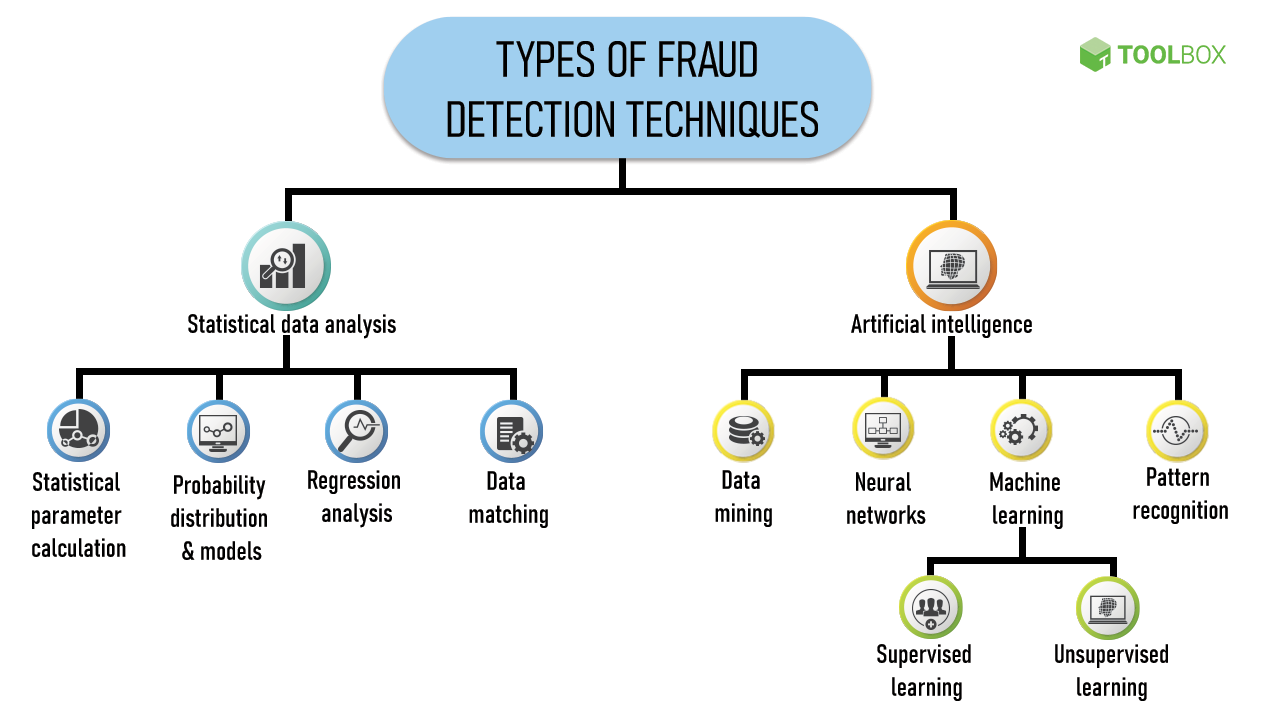
– Data Preparation
- Collect and preprocess transaction data, including features such as transaction amount, location, time, and user details.
- Handle missing values, outliers, and imbalanced classes to ensure data quality.
– Feature Engineering
- Extract relevant features from transaction data, such as transaction frequency, velocity, and deviations from typical user behavior.
- Transform categorical features using techniques like one-hot encoding or embedding.
– Model Building and Deployment
- Train machine learning models like logistic regression, decision trees, or ensemble methods on labeled transaction data.
- Deploy the trained models into banking systems for real-time fraud detection and monitoring. This was one of the most in-demand MTech Final Year Projects.
Project 6: Health Monitoring System Using IoT: MTech Final Year Projects
Real-life use case: remote patient monitoring, – sensor selection and deployment.
- Select appropriate IoT sensors to monitor vital signs such as heart rate, blood pressure, temperature, and oxygen saturation.
- Deploy sensors on patients or wearable devices, ensuring comfort, accuracy, and reliability.
– Data Transmission and Storage
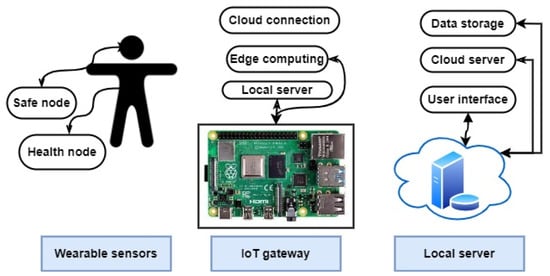
- Establish secure communication protocols for transmitting sensor data from IoT devices to a central server or cloud platform.
- Set up data storage infrastructure to store and manage patient health data securely and compliantly, adhering to relevant regulations.
– Alerting Mechanism
- Develop an alerting mechanism to notify healthcare providers of abnormal vital signs or critical health events in real-time.
- Implement customizable thresholds and escalation procedures to ensure timely response and intervention. This was one of the most in-demand MTech Final Year Projects.
Project 7: Natural Language Processing for Customer Support
Real-life use case: e-commerce platforms, – text data collection.
- Collect text data from various sources such as customer emails, chat transcripts, and social media interactions.
- Ensure data cleanliness and integrity by removing duplicates, irrelevant information, and noise.
– Model Training

- Train NLP models using machine learning algorithms such as recurrent neural networks (RNNs), convolutional neural networks (CNNs), or transformer architectures like BERT.
- Fine-tune models on domain-specific data and optimize performance metrics such as accuracy, precision, and recall.
– Integration with Support Systems
- Integrate NLP models with existing customer support systems, enabling automatic classification and routing of customer queries.
- Implement chatbots or virtual assistants to provide real-time responses and assistance to customers, improving support efficiency and scalability. This was one of the most in-demand MTech Final Year Projects.
Project 8: Traffic Management System Using Computer Vision
Real-life use case: smart cities, – video data acquisition.
- Collect video data from traffic cameras installed at key intersections and roadways.
- Ensure high-quality video capture and streaming for accurate analysis and monitoring.

– Object Detection Algorithm
- Develop computer vision algorithms for object detection, vehicle tracking, and traffic flow analysis.
- Implement deep learning architectures like YOLO (You Only Look Once) or Faster R-CNN for real-time object detection and classification.
– System Integration and Testing
- Integrate the traffic management system with existing transportation infrastructure and control systems.
- Conduct thorough testing and validation to ensure system reliability, accuracy, and scalability under various traffic conditions and scenarios.
Project 9: Energy Consumption Forecasting: MTech Final Year Projects
Real-life use case: power grid optimization.
- Collect historical data on energy consumption , weather patterns, demographic factors, and economic indicators.
- Preprocess the collected data by handling missing values, outliers, and scaling features for compatibility with forecasting models.
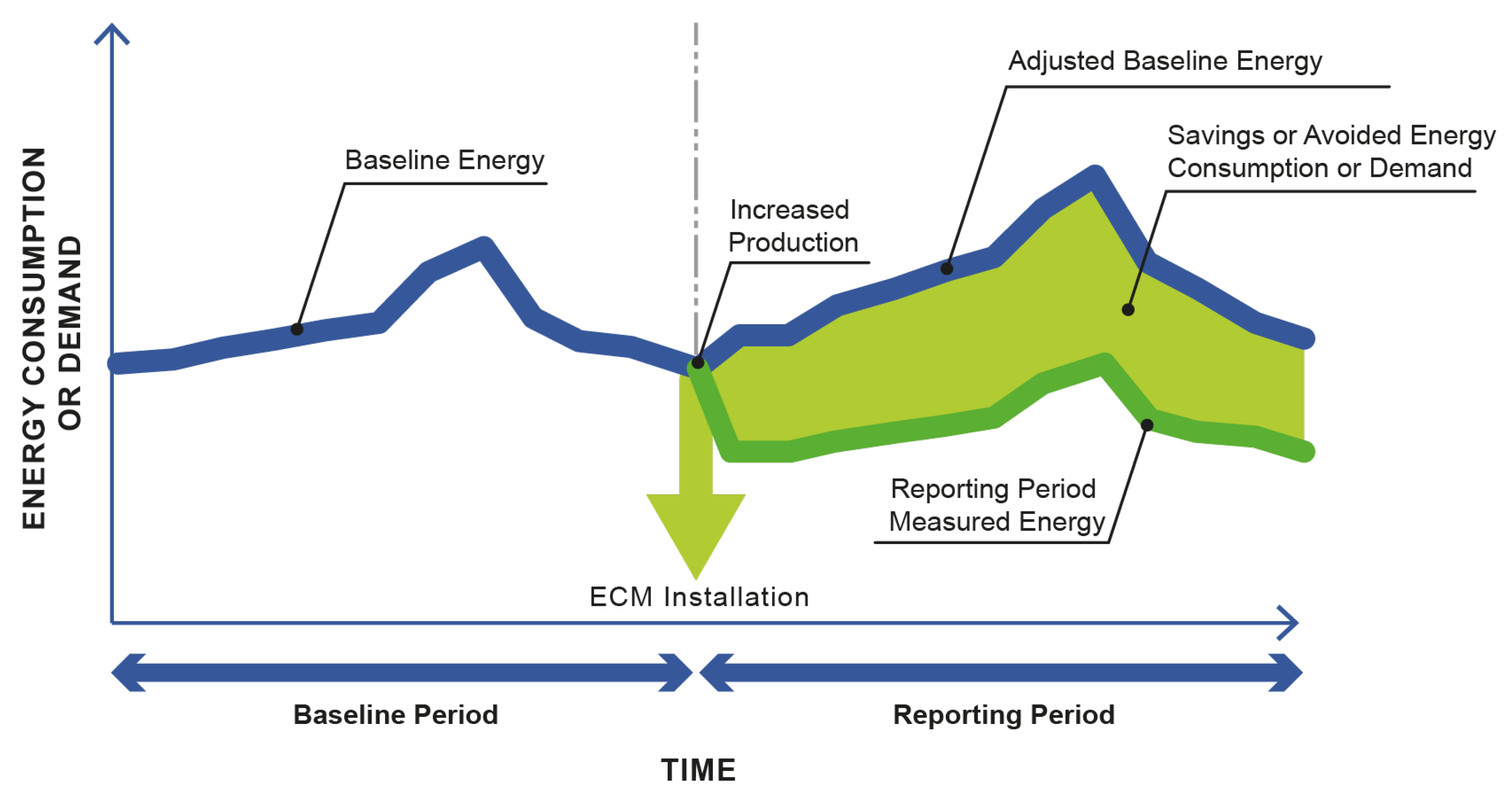
– Time Series Analysis
- Perform time series analysis to identify patterns, trends, and seasonality in energy consumption data.
- Select appropriate forecasting models such as ARIMA (AutoRegressive Integrated Moving Average), LSTM (Long Short-Term Memory), or Prophet for accurate predictions.
– Model Deployment and Monitoring
- Deploy the trained forecasting model into power grid management systems for real-time prediction and decision-making.
- Implement monitoring mechanisms to track model performance, recalibrate parameters, and adapt to changing energy demand patterns.
Project 10: Emotion Recognition in Human-Computer Interaction
Real-life use case: educational software, – facial expression data collection.
- Collect facial expression data using webcams, sensors, or image datasets in various educational contexts such as online classrooms or e-learning platforms.
- Annotate and label the collected data with corresponding emotions for model training.
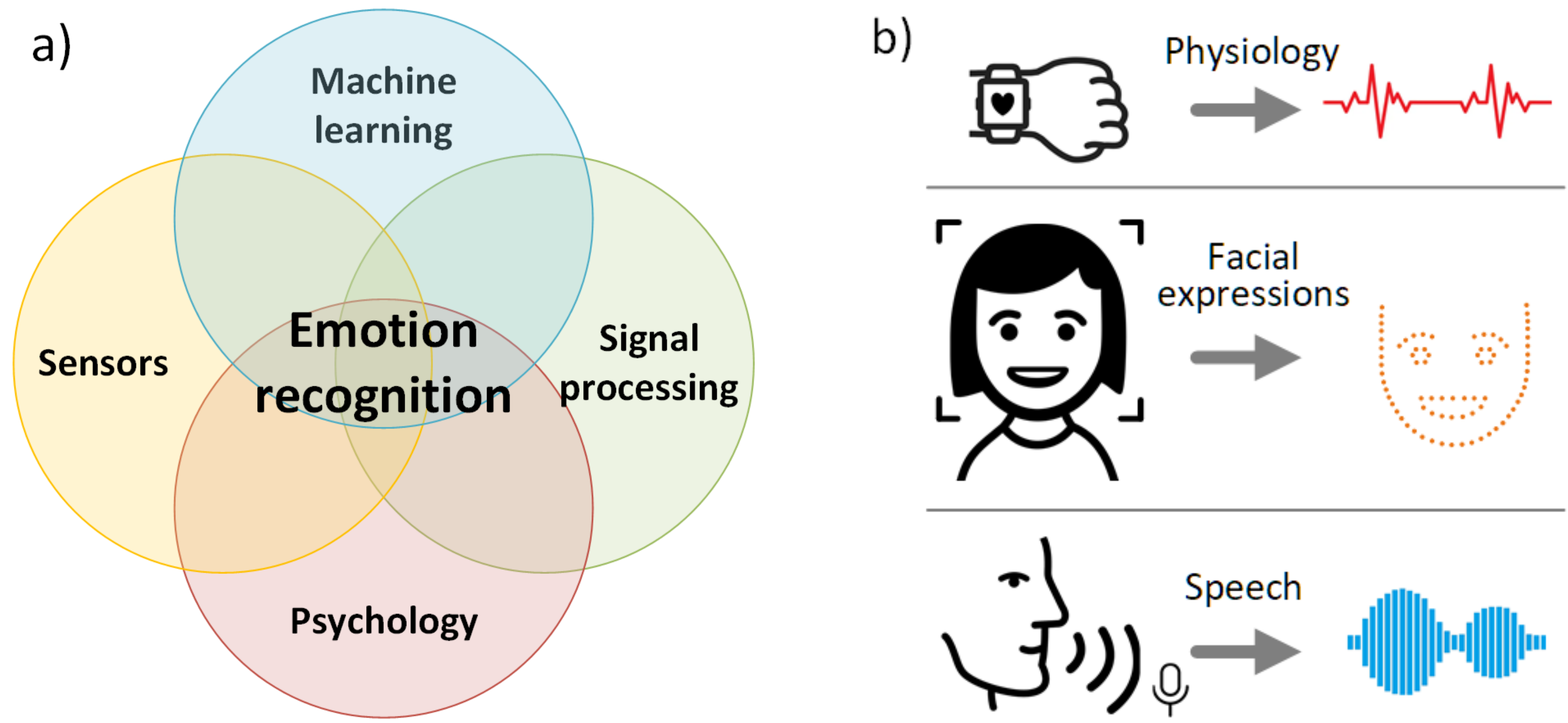
- Train deep learning models such as convolutional neural networks (CNNs) or recurrent neural networks (RNNs) on the annotated facial expression data.
- Fine-tune the models to recognize and classify emotions accurately, considering nuances and cultural differences.
– Integration with Educational Platforms
- Integrate the emotion recognition model with existing educational software platforms, enabling real-time analysis of student facial expressions and emotional responses.
- Develop interactive features and feedback mechanisms based on recognized emotions to adapt learning content and improve student engagement.
In this article, we explored ten trending MTech final year projects spanning various domains, from power grid optimization to educational software development.
As technology continues to evolve, the importance of innovative projects and practical applications of machine learning and IoT technologies cannot be overstated. By embracing these projects and exploring new avenues of research and development, MTech students can shape the future of technology and society.
Aarushi Singh
Engineering unplugged: embracing why you’re not an engineer, inclusive engineering: designing for everyone, you may also like, ielts essay writing made easy for engineers, mtech construction management project topics, pg vs hostel in kota: pros and cons, engineering in india vs abroad: a point-by-point comparison, machine design project topics list 2024, data analytics projects free downloads, tackling climate change: engineering solutions for a sustainable..., balancing exam preparation with other commitments: time management..., safeguarding vital systems: tackling cybersecurity challenges in critical..., enhancing practical skills through hands-on m.tech/b.tech engineering projects, leave a reply cancel reply.
This site uses Akismet to reduce spam. Learn how your comment data is processed .
- Mentorship Sessions
- M.Tech Projects R&D
- Ph.D Projects R&D
- B.Tech Projects R&D
- Plagiarism Report
- Bootcamp Hot
IMPORTANT LINKS
- News & Updates
- Project Downloads
- Career / Internship
- Privacy Policy
- Terms & Conditions
- MTech Projects Hot
- PhD Projects New
- BTech Projects
- AMIE Projects
- DBMS Projects Hot
- ECE & EEE Projects
- Research Paper
- Thesis Report
Fabrum Planet Solutions Pvt. Ltd.
- [email protected]
- +91 8882479344
- Delhi | Mumbai | Kolkata | Chennai
© 2024 All Rights Reserved Engineer’s Planet
Digital Media Partner #magdigit
- Terms & Conditions
This website uses cookies to improve your experience. We'll assume you're ok with this, but you can opt-out if you wish. OK Read More
Suggestions or feedback?
MIT News | Massachusetts Institute of Technology
- Machine learning
- Social justice
- Black holes
- Classes and programs
Departments
- Aeronautics and Astronautics
- Brain and Cognitive Sciences
- Architecture
- Political Science
- Mechanical Engineering
Centers, Labs, & Programs
- Abdul Latif Jameel Poverty Action Lab (J-PAL)
- Picower Institute for Learning and Memory
- Lincoln Laboratory
- School of Architecture + Planning
- School of Engineering
- School of Humanities, Arts, and Social Sciences
- Sloan School of Management
- School of Science
- MIT Schwarzman College of Computing
Study explains why the brain can robustly recognize images, even without color
Press contact :, media download.
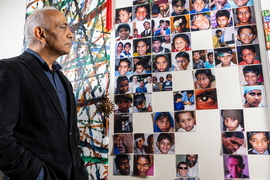
*Terms of Use:
Images for download on the MIT News office website are made available to non-commercial entities, press and the general public under a Creative Commons Attribution Non-Commercial No Derivatives license . You may not alter the images provided, other than to crop them to size. A credit line must be used when reproducing images; if one is not provided below, credit the images to "MIT."
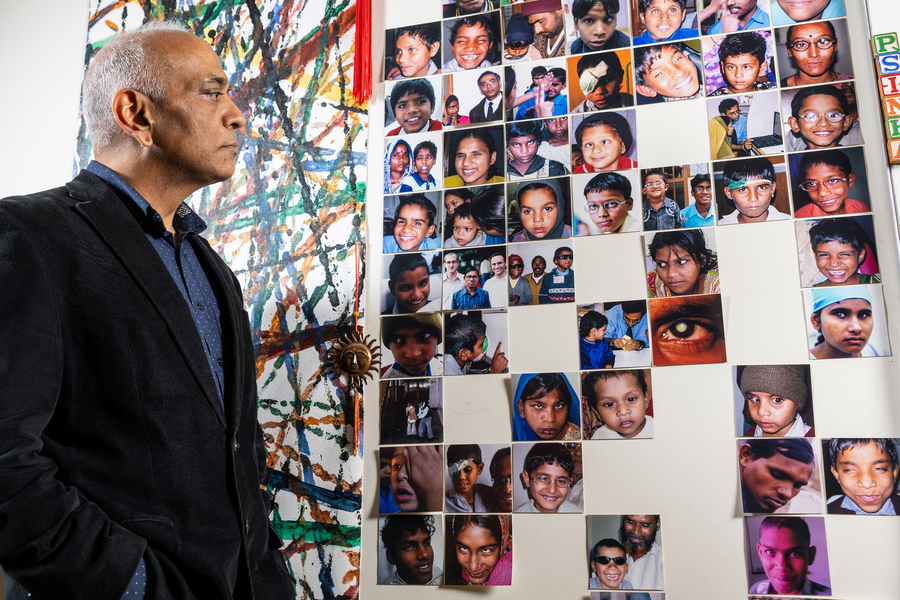
Previous image Next image
Even though the human visual system has sophisticated machinery for processing color, the brain has no problem recognizing objects in black-and-white images. A new study from MIT offers a possible explanation for how the brain comes to be so adept at identifying both color and color-degraded images.
Using experimental data and computational modeling, the researchers found evidence suggesting the roots of this ability may lie in development. Early in life, when newborns receive strongly limited color information, the brain is forced to learn to distinguish objects based on their luminance, or intensity of light they emit, rather than their color. Later in life, when the retina and cortex are better equipped to process colors, the brain incorporates color information as well but also maintains its previously acquired ability to recognize images without critical reliance on color cues.
The findings are consistent with previous work showing that initially degraded visual and auditory input can actually be beneficial to the early development of perceptual systems.
“This general idea, that there is something important about the initial limitations that we have in our perceptual system, transcends color vision and visual acuity. Some of the work that our lab has done in the context of audition also suggests that there’s something important about placing limits on the richness of information that the neonatal system is initially exposed to,” says Pawan Sinha, a professor of brain and cognitive sciences at MIT and the senior author of the study.
The findings also help to explain why children who are born blind but have their vision restored later in life, through the removal of congenital cataracts, have much more difficulty identifying objects presented in black and white. Those children, who receive rich color input as soon as their sight is restored, may develop an overreliance on color that makes them much less resilient to changes or removal of color information.
MIT postdocs Marin Vogelsang and Lukas Vogelsang, and Project Prakash research scientist Priti Gupta, are the lead authors of the study, which appears today in Science . Sidney Diamond, a retired neurologist who is now an MIT research affiliate, and additional members of the Project Prakash team are also authors of the paper.
Seeing in black and white
The researchers’ exploration of how early experience with color affects later object recognition grew out of a simple observation from a study of children who had their sight restored after being born with congenital cataracts. In 2005, Sinha launched Project Prakash (the Sanskrit word for “light”), an effort in India to identify and treat children with reversible forms of vision loss.
Many of those children suffer from blindness due to dense bilateral cataracts. This condition often goes untreated in India, which has the world’s largest population of blind children, estimated between 200,000 and 700,000.
Children who receive treatment through Project Prakash may also participate in studies of their visual development, many of which have helped scientists learn more about how the brain's organization changes following restoration of sight, how the brain estimates brightness, and other phenomena related to vision.
In this study, Sinha and his colleagues gave children a simple test of object recognition, presenting both color and black-and-white images. For children born with normal sight, converting color images to grayscale had no effect at all on their ability to recognize the depicted object. However, when children who underwent cataract removal were presented with black-and-white images, their performance dropped significantly.
This led the researchers to hypothesize that the nature of visual inputs children are exposed to early in life may play a crucial role in shaping resilience to color changes and the ability to identify objects presented in black-and-white images. In normally sighted newborns, retinal cone cells are not well-developed at birth, resulting in babies having poor visual acuity and poor color vision. Over the first years of life, their vision improves markedly as the cone system develops.
Because the immature visual system receives significantly reduced color information, the researchers hypothesized that during this time, the baby brain is forced to gain proficiency at recognizing images with reduced color cues. Additionally, they proposed, children who are born with cataracts and have them removed later may learn to rely too much on color cues when identifying objects, because, as they experimentally demonstrated in the paper, with mature retinas, they commence their post-operative journeys with good color vision.
To rigorously test that hypothesis, the researchers used a standard convolutional neural network, AlexNet, as a computational model of vision. They trained the network to recognize objects, giving it different types of input during training. As part of one training regimen, they initially showed the model grayscale images only, then introduced color images later on. This roughly mimics the developmental progression of chromatic enrichment as babies’ eyesight matures over the first years of life.
Another training regimen comprised only color images. This approximates the experience of the Project Prakash children, because they can process full color information as soon as their cataracts are removed.
The researchers found that the developmentally inspired model could accurately recognize objects in either type of image and was also resilient to other color manipulations. However, the Prakash-proxy model trained only on color images did not show good generalization to grayscale or hue-manipulated images.
“What happens is that this Prakash-like model is very good with colored images, but it’s very poor with anything else. When not starting out with initially color-degraded training, these models just don’t generalize, perhaps because of their over-reliance on specific color cues,” Lukas Vogelsang says.
The robust generalization of the developmentally inspired model is not merely a consequence of it having been trained on both color and grayscale images; the temporal ordering of these images makes a big difference. Another object-recognition model that was trained on color images first, followed by grayscale images, did not do as well at identifying black-and-white objects.
“It’s not just the steps of the developmental choreography that are important, but also the order in which they are played out,” Sinha says.
The advantages of limited sensory input
By analyzing the internal organization of the models, the researchers found that those that begin with grayscale inputs learn to rely on luminance to identify objects. Once they begin receiving color input, they don’t change their approach very much, since they’ve already learned a strategy that works well. Models that began with color images did shift their approach once grayscale images were introduced, but could not shift enough to make them as accurate as the models that were given grayscale images first.
A similar phenomenon may occur in the human brain, which has more plasticity early in life, and can easily learn to identify objects based on their luminance alone. Early in life, the paucity of color information may in fact be beneficial to the developing brain, as it learns to identify objects based on sparse information.
“As a newborn, the normally sighted child is deprived, in a certain sense, of color vision. And that turns out to be an advantage,” Diamond says.
Researchers in Sinha’s lab have observed that limitations in early sensory input can also benefit other aspects of vision, as well as the auditory system. In 2022, they used computational models to show that early exposure to only low-frequency sounds, similar to those that babies hear in the womb, improves performance on auditory tasks that require analyzing sounds over a longer period of time, such as recognizing emotions. They now plan to explore whether this phenomenon extends to other aspects of development, such as language acquisition.
The research was funded by the National Eye Institute of NIH and the Intelligence Advanced Research Projects Activity.
Share this news article on:
Related links.
- Project Prakash
- Department of Brain and Cognitive Sciences
Related Topics
- Brain and cognitive sciences
Related Articles
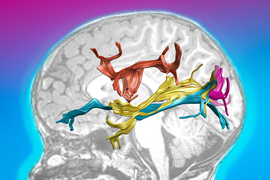
Scientists discover anatomical changes in the brains of the newly sighted
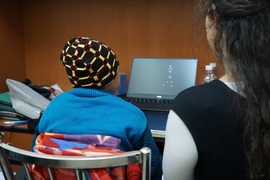
After a lifetime of blindness, newly sighted can immediately identify human locomotion
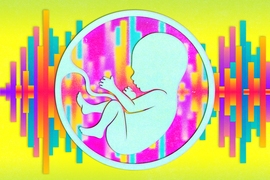
Early sound exposure in the womb shapes the auditory system
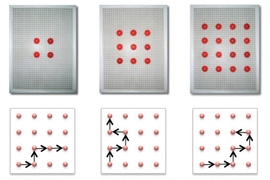
Vision is key to spatial skills
Previous item Next item
More MIT News

Understanding why autism symptoms sometimes improve amid fever
Read full story →
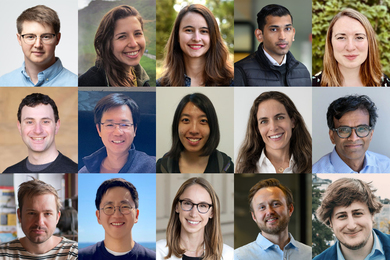
School of Engineering welcomes new faculty

Turning up the heat on next-generation semiconductors
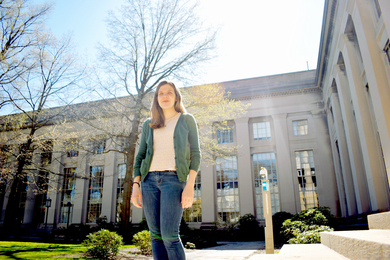
Sarah Millholland receives 2024 Vera Rubin Early Career Award

A community collaboration for progress
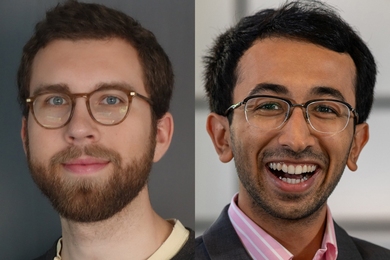
MIT scholars will take commercial break with entrepreneurial scholarship
- More news on MIT News homepage →
Massachusetts Institute of Technology 77 Massachusetts Avenue, Cambridge, MA, USA
- Map (opens in new window)
- Events (opens in new window)
- People (opens in new window)
- Careers (opens in new window)
- Accessibility
- Social Media Hub
- MIT on Facebook
- MIT on YouTube
- MIT on Instagram

News & Events
View the contact page for more contact and location information
- Top Stories
Trinity twelve secure funding for new healthcare, climate and tech research
Posted on: 27 May 2024
The successful dozen will lead or co-lead a total of 11 STEM-related research projects via Science Foundation Ireland’s Frontiers for the Future programme, which is funded in collaboration with the Sustainability Energy Authority of Ireland (SEAI).
/prod01/channel_3/media/tcd/news-images/IRC-allies-Campanile-756X550.png)
The awards – each valued at approximately €1.28 million – were announced by Patrick O’Donovan, Minister for Further and Higher Education, Research, Innovation and Science.
They are of 4-5 years’ duration and will support postdoctoral positions, PhD students and research assistant and other positions.
Prof. Sinéad Ryan, Dean of Research at Trinity , said: “I welcome this news; these awards are an investment in world-class research and in our next generation of researchers – such important resources for Ireland’s future. My thanks to all our colleagues for their work on securing this funding for Trinity’s research.”
Trinity projects
Fellow Emeritus, Prof. Martin Caffrey (School of Biochemistry and Immunology, Trinity Biomedical Sciences Institute – TBSI, and School of Medicine), will establish molecular blueprints of enzymes and proteins that will, in time, help develop new, urgently needed antibiotics targeting pathogens against which a growing number of antimicrobials are ineffective. The project will train the next generation of highly skilled, innovative scientists and generate new knowledge and intellectual property for commercial exploitation.
Prof. Kingston Mills (School of Biochemistry and Immunology, TBSI), will thoroughly study the immune responses to Bordetella pertussis in nasal tissue to inform the design of a more effective vaccine against pertussis (whooping cough), based on intranasal delivery of the vaccine formulated with molecules that generate sterilising immunity and immunological memory in the respiratory tract.
Prof. David Finlay (School of Biochemistry and Immunology, TBSI, and School of Pharmacy and Pharmaceutical Sciences, will study how cholesterol-like factors stop Natural Killer cells from killing infected or cancerous cells. He plans to study how their “OFF” switch works and evaluate its role in controlling our immune system. Discovering and understanding “OFF” switches will lead to new immunotherapies for patients with immunological diseases.
Prof. Igor Shvets (School of Physics, and CRANN), working with Prof. Karsten Fleischer, Dublin City University, will seek to develop manufacturing technologies and materials minimising energy use during production. Unfortunately, in many fields abundant materials with sufficient performance have already been pushed to their physical limits, but this team’s methodology will enable known, sustainable materials to perform beyond them.
Prof. Andrew Bowie (School of Biochemistry and Immunology, TBSI), aims to deliver research that will help us better understand exactly how cells respond to viruses. Human PYHIN proteins play a key role in both directly targeting invading viruses and in controlling the release of cytokine and interferons, which are alarm signals that alert surrounding cells to the presence of a virus. In this project the team will examine in-depth how exactly PYHINs contribute to human anti-viral immunity.
Prof. Jane Farrar (School of Genetics and Microbiology, and Trinity College Institute of Neuroscience – TCIN), aims to generate novel gene therapies and to test and compare their efficacy in multiple model systems of dry-related macular degeneration (AMD). The most efficacious will be further studied and combined in dual-therapies.
Prof. Marco Ruffini (School of Computer Science) and Prof. Dan Kilper (School of Engineering, and CONNECT), seek to deliver innovations in today’s optical networks, which lack the flexibility required to support the development of new digital systems such as Smart Cities and Virtual/Augmented Reality. This project will create a digital twin of the optical network as a safe testing environment to 1) help develop and test new solutions, and 2) facilitate fast changes to networks without risking any disruption.
Prof. Mani Ramaswami (School of Genetics and Microbiology, School of Natural Sciences, and TCIN), will focus on a specific protein (Ataxin-2), which regulates many biological processes important for health, of which only one may be relevant in disease. His team will 1) identify specific regions of the Ataxin-2 protein to target with drugs for potentially fewer side effects, and 2) find new associated proteins with similar roles and uses in health and disease.
Prof. Daniel Kelly (School of Engineering), working with Prof. Pieter Brama, University College Dublin, aims to use emerging 3D (bio)printing technologies to help recreate the conditions that instruct normal tissue development, enabling the engineering of musculoskeletal tissues. The ability to bio-print such functional tissues could transform orthopaedic medicine, providing grafts to regenerate damaged joints and preventing osteoarthritis, a debilitating disease affecting millions worldwide.
Prof. Rhodri Cusack (School of Psychology, and TCIN), will apply deep neural networks (DNNs) – the technology underlying breakthroughs in artificial intelligence – to correct motion noise in infant fMRI data. This project will initiate a global collaboration to evaluate four strategies of increasing potential benefit but also greater complexity. It will enable transformative infant fMRI applications and bring Ireland to the forefront of the rapidly growing intersection of DNNs and MRI.
Prof. Naomi Harte (School of Engineering), will extend our overly simplistic views of communication and develop a framework to consider all the elements of speech (e.g. changes in intonation, expression etc.) that we can tune in to during a conversation. This framework will teach machines to understand speech too, and ultimately deliver more robust and effective speech technology of the future.
Speaking about the awards, Minister O’Donovan said: “These awards support the development of world-class research in areas of science, technology, engineering and mathematics. The projects and higher education institutions are focusing on will help deliver solutions to some of the major challenges facing society, including in healthcare, the environment and technology.”
Dr Ruth Freeman, Director, Science for Society at Science Foundation Ireland, said: “The SFI Frontiers for the Future awards provide opportunities for independent investigators to conduct highly innovative, original research on important questions. I would like to thank SEAI for collaborating on this programme with SFI, supporting vital research in the area of sustainability.”
Director of Research and Policy Insights at Sustainability Energy Authority of Ireland (SEAI), Margie McCarthy, said: “SEAI is delighted to be a co-funding partner in the Frontiers for the Future Programme. These awards are excellent examples of national innovation and creativity. By supporting independent researchers, we can help grow Ireland’s national capacity to conduct excellent scientific research.
“We look forward to the new insights and knowledge that the co-funded awards will bring to offshore wind energy support structures and anaerobic digestion ecosystems, and how their results will advance Ireland’s clean energy transition.”
- Awards and Funding
Media Contact:
Thomas Deane | Media Relations | [email protected] | +353 1 896 4685
Department of Civil, Environmental, & Construction Engineering
- Whitacre College of Engineering
- Civil, Environmental, and Construction Engineering
Civil Engineering
Structures:.
Civil engineering faculty are engaged in cutting edge research spanning a broad spectrum of activities that impact structures and infrastructure, addressing pressing global challenges. Interdisciplinary research is being conducted in the areas of wind hazard and infrastructure performance, wind science and engineering, earthquake science and engineering, uncertainty quantification, and concrete and steel structures, especially in the context of natural hazards engineering. Engineering principles are used in novel ways to create synergistic solutions that could have far-reaching impact on infrastructure and society.
Research conducted in the structures group includes cutting edge research areas as well as traditional focus areas. Examples include: natural hazards engineering that tackles problems such as performance-based design of high-rise-buildings and long-span-bridges for extreme winds; multi-hazard sustainability (earthquake engineering, climate change, and probabilistic sea-level rise hazard analysis); methodologies and algorithms for uncertainty quantification and scientific machine learning; wind hazards and their impact on buildings and structures; performance improvement of reinforced and prestressed concrete structures through analytical and experimental investigation; and investigation of cross-frame stiffness and stability in steel bridges.
Research Projects:
Multi-hazard sustainability (hazsus) research group.

Dr. Ting Lin directs the Multi-HAZard SUStainability (HazSus) Research Group with parallel tracks in earthquake engineering and climate change, enabled by performance-based engineering and advanced technologies such as artificial intelligence, high performance computing, and virtual reality. Her research specifically focuses on probabilistic physics-based seismic hazard/risk analysis interfacing earthquake science/engineering and probabilistic sea-level rise hazard analysis (PSLRHA) incorporating polar ice melting uncertainty. Lin is the Committee Chair of the COSMOS/EERI/SSA Bruce Bolt Medal and the Former Committee Chair of the ASCE SEI Advances in Information Technology. She has served on delegation/working group/committees under COP15, NEHRP, SCEC, NIST, UJNR, & NASEM, and as a lead guest editor/session chair and reviewer for journals, conferences, & funding agencies. Her work has been implemented in hazard mapping, modeling software, and building codes & guidelines.
Wind Hazard and Infrastructure Performance (WHIP) Center
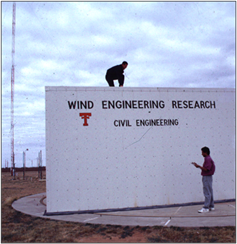
Dr. Kishor Mehta, P.W. Horn Distinguished Professor (ret.) is member of the National Academy of Engineering, and Distinguished Member of ASCE. He was Center Director for the NSF IUCRC Wind Hazard and Infrastructure Performance (WHIP) Center, the position he held for the past five years and has stepped down recently. Over the last fifty-four years his research focus has been on wind hazards and their impact on buildings and structures. His accomplishments include in-situ damage documentation, wind pressures on building in the field, technical criteria for in-residence shelter, and development of national wind load standard ASCE 7, EF-Scale for tornado intensity, and multidisciplinary doctoral curriculum for wind science and engineering.
Investigation of cross-frame stiffness and stability in steel bridges
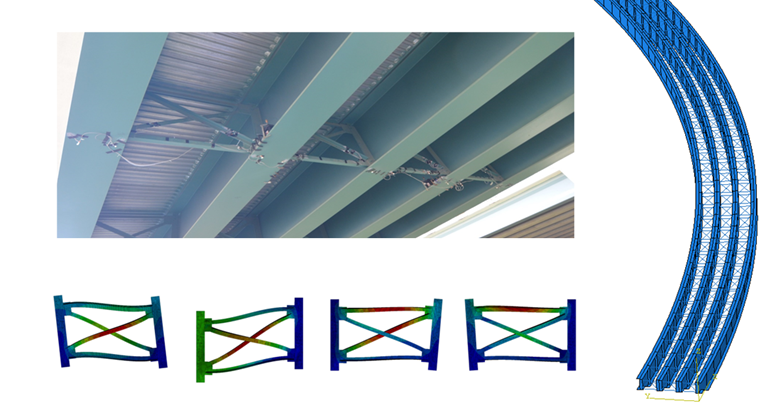
The behavior of cross-frames varies depending on bridge conditions and loading types. Additionally, the approach used to model cross-frames can significantly impact performance predictions for girder stability during construction and for cross-frame fatigue under in-service traffic loading.
Dr. Sunghyun Park's research includes laboratory tests, field experiments, and finite element analysis.
Uncertainty Quantification and Management in Computational Science and Engineering

Dr. Zhiheng Wang serves as a member of the ASCE Engineering Mechanics Institute (EMI) Probabilistic Methods Committee (PMC). His group develops novel methodologies and algorithms for uncertainty quantification and scientific machine learning, with applications to complex systems in science and engineering, such as structures, materials, hazards (wind, earthquake, fire), and aerospace, etc., aiming to enhance the sustainability, resilience, and efficiency of engineering design, decision-making, and optimization processes.
Tornado Effects on Civil Infrastructure and Hazard Mitigation

Dr. Delong Zuo has been pursuing research related to tornadoes, their devastating effects on civil infrastructure, and the mitigation of these effects. In recent years, his research has received support from the National Science Foundation (NSF), the NSF-supported Industry-University Cooperative Research Center for Wind Hazard and Infrastructure Performance, and the Central Research Institute of Electric Power Industry of Japan that support this research. Using the funds provided by these entities, a research team led by Dr. Zuo has conducted both laboratory testing and numerical simulations based on computational fluid mechanics to characterize tornado-like vortices and the loading on buildings by these vortices. The outcomes of the characterization have also been used as a basis to probabilistically simulate tornado loading on buildings and investigate the structural response of the buildings to the loading. This enables the evaluation of risks that tornadoes cause to buildings and potential development of strategies and countermeasures for reducing the risks.
Faculty List:

At Texas Tech University, the Geotechnical Engineering Program is dedicated to advancing the understanding and application of granular materials in natural and built environments. We recognize the importance of soils and rocks as engineering materials and focus on addressing the challenges related to their behavior and mitigation of natural and man-made hazards.
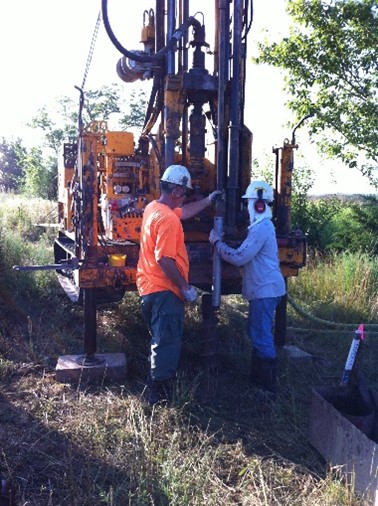
Our faculty and students engage in conducting fundamental and applied research using analytical, numerical, and experimental methods. Research topics include the analysis, design and construction of foundations, slopes, and earth retaining structures, soil-structure interactions, site and material characterization, ground improvement, natural hazard assessment and mitigation, environmental geotechnics, and energy geotechnics. Through our collaborative efforts, we aim to develop innovative and resilient solutions for infrastructure and energy needs in society.
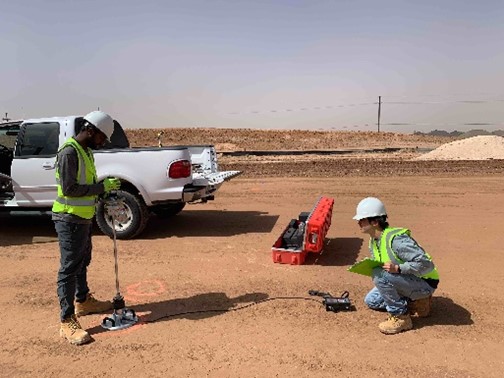
Coming Soon
Transportation:
Grant: Technical Assistance to TxDOT Amarillo, Lubbock, and Fort Worth District
Award: Pyke Johnson Award, Transportation Research Board, for the paper: Chen, Z., H. Xu*, J. Zhao*, and H. Liu (2023). “Curbside Parking monitoring with Roadside LiDAR.” Transportation Research Record. 2677(10), 825-837.
Description:
Dr. Liu's recent research has been primarily focused on using advanced sensing technologies to enhance the efficiency of existing highway systems in terms of reducing congestion and improving safety. A major focus is developing enabling data modeling and analytic tools, particularly, artificial intelligence and machine learning methods for accurate processing of infrastructure-based high-resolution data with enhanced computational efficiency for real-time applications such as red light running protection and pedestrian crossing protection systems.
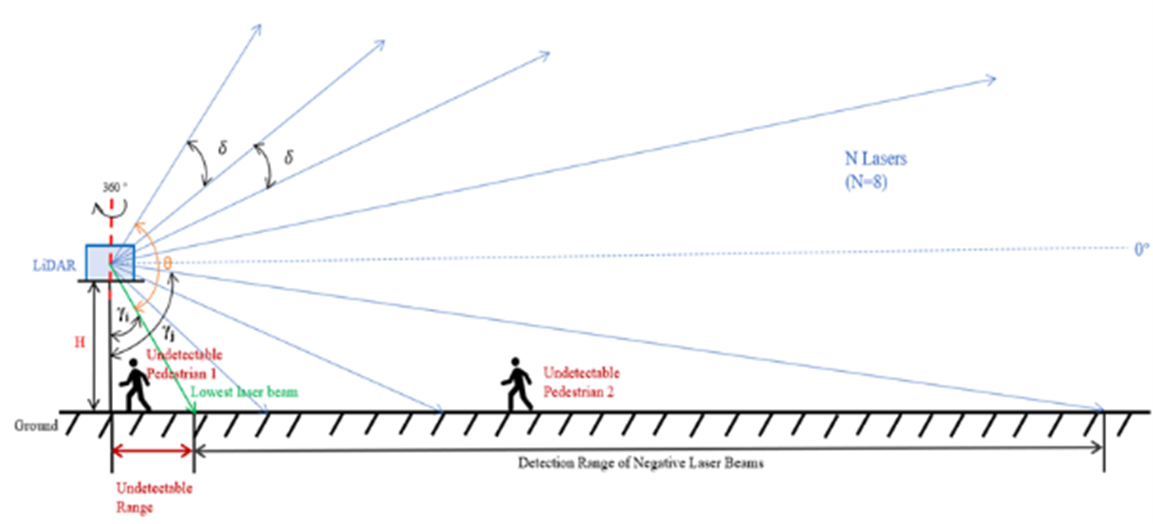
Pedestrian fatalities nearly doubled in the past decade and these fatalities represent about 19% of all traffic deaths in 2022. Traditional historical data-based highway safety studies have long been valuable in understanding past trends and patterns in accidents. However, as we navigate an ever-evolving transportation landscape, there's a growing recognition that solely relying on historical data has limitations in addressing emerging challenges and ensuring robust road safety measures for the future. Hence, the shift towards proactive studies becomes imperative. Proactive studies on highway safety stand as a cornerstone in the ongoing mission to mitigate risks, reduce accidents, and save lives on our roadways. Proactive studies are essential because they provide invaluable insights into the complex dynamics of traffic, human behavior, vehicle technology, and infrastructure, enabling policymakers, engineers, and safety experts to develop targeted strategies for improvement. Dr. Liu's research aims to identify near-crashes/near-misses from high-resolution vehicular and pedestrian trajectories obtained from LiDAR sensors, and use the results to develop predictive hotspot maps and preventive strategies for transportation planning, operation, and management.
Dr. Polaczyk:
Investigation of graphene-modified asphalt efficacy to pavement performance.
The pavement industry is in constant search of new asphalt binder modifiers. Modifying the asphalt binder allows for a wider temperature range, which provides better performance and longer pavement service life. In recent years nanomaterials gained increased attention from the pavement industry. Graphene is a nanomaterial that can be used as an asphalt binder modifier. Graphene has a single layer of carbon atoms organized in a hexagonal pattern, which grants unique properties. This study aims to evaluate the efficacies of graphene-modified asphalt on pavement performance through the laboratory test on asphalt binder and asphalt mixtures prepared with unmodified and graphene-modified binders. It is expected that graphene could effectively increase the rutting resistance of asphalt mixture; however, the cracking resistance is strongly correlated to the quality of the graphene (particle size and purity).
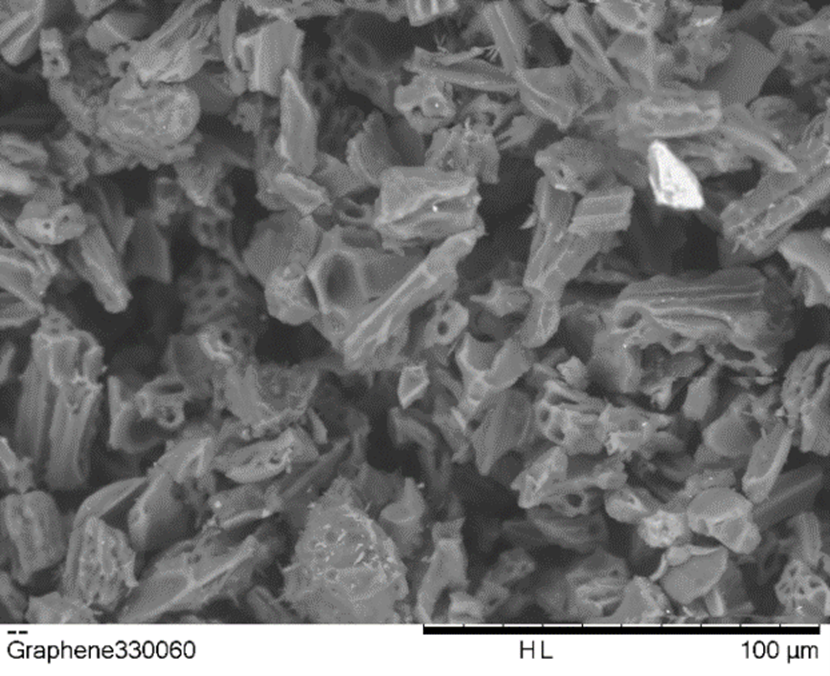
The SEM images of graphene
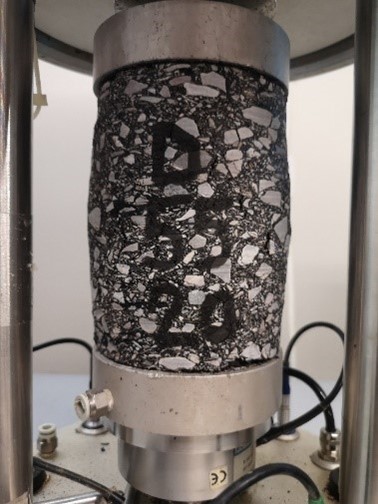
Determination of cracking and rutting resistance.

IMAGES
VIDEO
COMMENTS
Projects. Our teams leverage research developments across domains to build tools and technology that impact billions of people. Sharing our learnings and tools to fuel progress in the field is core to our approach. Google is driving innovation in brain mapping, enabling breakthroughs in neuroscience. VideoPoet is a language model capable of ...
Mineral, a project that was completed in 2020, brings together plant breeders and growers across Argentina, Canada, the United States and South Africa to test new models for sustainable farming using AI and machine learning. At Mineral's core is an electric-powered rover that collects granular data about soil health and crop development.
Finding and choosing a strong research topic is the critical first step when it comes to crafting a high-quality dissertation, thesis or research project. If you've landed on this post, chances are you're looking for a computer science-related research topic, but aren't sure where to start.Here, we'll explore a variety of CompSci & IT-related research ideas and topic thought-starters ...
The year's popular research stories include a promising new approach to cancer immunotherapy, the confirmation of a 50-year-old theorem, and a major fusion breakthrough. In 2021, MIT researchers made advances toward fusion energy, confirmed Stephen Hawking's black hole theorem, developed a Covid-detecting face mask, and created a ...
Relationships and Media. 7. War. 8. Information and Communication Tech. 9. Computer Science and Robotics. Researching technology can involve looking at how it solves problems, creates new problems, and how interaction with technology has changed humankind.
Robotic palm mimics human touch. MIT CSAIL researchers enhance robotic precision with sophisticated tactile sensors in the palm and agile fingers, setting the stage for improvements in human-robot interaction and prosthetic technology. May 20, 2024. Read full story.
Advancing the state of the art. Our teams advance the state of the art through research, systems engineering, and collaboration across Google. We publish hundreds of research papers each year across a wide range of domains, sharing our latest developments in order to collaboratively progress computing and science. Learn more about our philosophy.
Tech tools to make research more open and inclusive. Laboratory heads are deploying apps and software in innovative ways to build broad and diverse research groups. By. Kendall Powell ...
12. Our researchers work on hundreds of projects advancing the state of the art in quantum computing, AI, cloud, and semiconductors.
As an R1, top research university, Georgia Tech is shaping the future of basic and applied research by pursuing inventive solutions to the world's most pressing problems. Our exceptional community of academic faculty, researchers, staff, and students innovate at the intersection of disciplines to further new frontiers in science and ...
Artificial intelligence technology research topics. We started 2023 with M3GAN's box office success, and now we're fascinated (or horrified) with ChatGPT, voice cloning, and deepfakes. While people have discussed artificial intelligence for ages, recent advances have really pushed this topic to the front of our minds.
Research. At MIT, pushing the boundaries of knowledge and possibility is our joyful obsession, and we celebrate fundamental discoveries and practical applications alike. As educators, we also value research as a potent form of learning by doing. Research flourishes in our 30 departments across five schools and one college, as well as in dozens ...
Research. Caltech is small but prizes excellence and ambition. The Institute's extraordinary faculty, students, postdoctoral scholars, and staff are expanding our understanding of the universe, shifting paradigms, launching new fields, and inventing the technologies of the future. They are producing transformative breakthroughs in fields ...
Technology topics for research papers below are very easy to investigate, so you will surely find a bunch of academic resources. Exploring adaptive learning systems in online education. Role of technology in modern archaeology. Impact of immersive technology on journalism. The rise of telehealth services.
Together, the experiments are "the most advanced demonstrations so far" of the technology needed for a quantum internet, says physicist Tracy Northup at the University of Innsbruck in Austria ...
Research is one of the primary ways our program redefines the human experience of computing. The MS-HCI Program at Georgia Tech is at the forefront of technological innovation through the work of dedicated faculty and students, and partnerships with companies and organizations around the world. We study, invent, and integrate computational ...
Research is taking place all across Michigan Tech. Below, you will find a sample listing of some of our publicly funded research projects. Use our search box or advanced filtering options to search our research projects by keyword, by department, or even by investigator.
At Georgia Tech, computing is taken seriously. Founded in 1990, the College of Computing represented just the second computing college at top U.S. universities, and its commitment to that continues to this day. Our five schools and some 140 faculty allow us to explore a wide range of research areas - from the foundations of computing, like ...
Welcome to Georgia Tech Research Projects. This site is designed to provide a centralized location for all projects inside of the Georgia Tech community related to the Covid-19 response. This site allows users to filter and sort through the database and glean pertinent information about projects of interest. If perhaps you are looking to ...
The research highlights the importance of staying ahead of the curve in technology. Companies that embrace digital technologies now are likely to be the ones that thrive in the future. And while there are still many unanswered questions about how these changes will play out, one thing is clear: The relationship between technology and business ...
Campus and Community. Research Research School of Global Public Health Tandon School of Engineering College of Arts and Science Arts and Science Liberal Studies Gallatin School of Individualized Study Leonard N. Stern School of Business NYU Abu Dhabi. The telegraph. The polio vaccine. The bar code. Light beer.
Jalilvand is the principal investigator on a $1 million research project funded by NantG Power, a California-based company focused on high-performance lithium-ion battery cell technology. Patrick Soon-Shiong, owner and CEO of Nantworks , the parent company of NantG Power, and Fabio Albano and John Chmiola, are the industrial technical leads on ...
Alex Bayen, a UC Berkeley professor of electrical engineering and computer sciences who helped lead the project to create the Berkeley Space Center at NASA's Ames Research Center in Mountain View, California, spoke about the potential benefits during a press conference at NASA Ames on Oct. 16, 2023. Brandon Torres for NASA Ames
Real-Life Use Case: Brand Reputation Management. Implementation Guide: MTech Final Year Projects. - Data Scraping and Cleaning. - Text Preprocessing. - Model Training and Evaluation. Project 4: Autonomous Drone Navigation: MTech Final Year Projects. Real-Life Use Case: Agricultural Monitoring.
MIT postdocs Marin Vogelsang and Lukas Vogelsang, and Project Prakash research scientist Priti Gupta, are the lead authors of the study, which appears today in Science. Sidney Diamond, a retired neurologist who is now an MIT research affiliate, and additional members of the Project Prakash team are also authors of the paper. Seeing in black and ...
The successful dozen will lead or co-lead a total of 11 STEM-related research projects via Science Foundation Ireland's Frontiers for the Future programme, which is funded in collaboration with the Sustainability Energy Authority of Ireland (SEAI). The awards - each valued at approximately €1.
Research Projects: Multi-Hazard Sustainability (HazSus) Research Group ... /SSA Bruce Bolt Medal and the Former Committee Chair of the ASCE SEI Advances in Information Technology. She has served on delegation/working group/committees under COP15, NEHRP, SCEC, NIST, UJNR, & NASEM, and as a lead guest editor/session chair and reviewer for ...
The nature of this engagement goes beyond investment projects, aiming to strengthen the institutional links between research organizations, manufacturers, and sovereign funds of the two nations. After February 24, 2022, Western sanctions and companies fleeing Russia will force Moscow to seek deeper cooperation with China in high-tech sectors.
National Institute for Advanced Transportation Technology. University of Idaho 115 Engineering Physics Building Moscow, ID 83844-0901 Phone: (208) 885-0576
DARPA's AdvaNced airCraft Infrastructure-Less Launch And RecoverY program, known as ANCILLARY, shows six design concepts for a low-weight, large-payload, long-endurance VTOL uncrewed X-plane. The innovative configurations and critical technology designs come from a wide array of performers, from small start-up to legacy aerospace companies ...